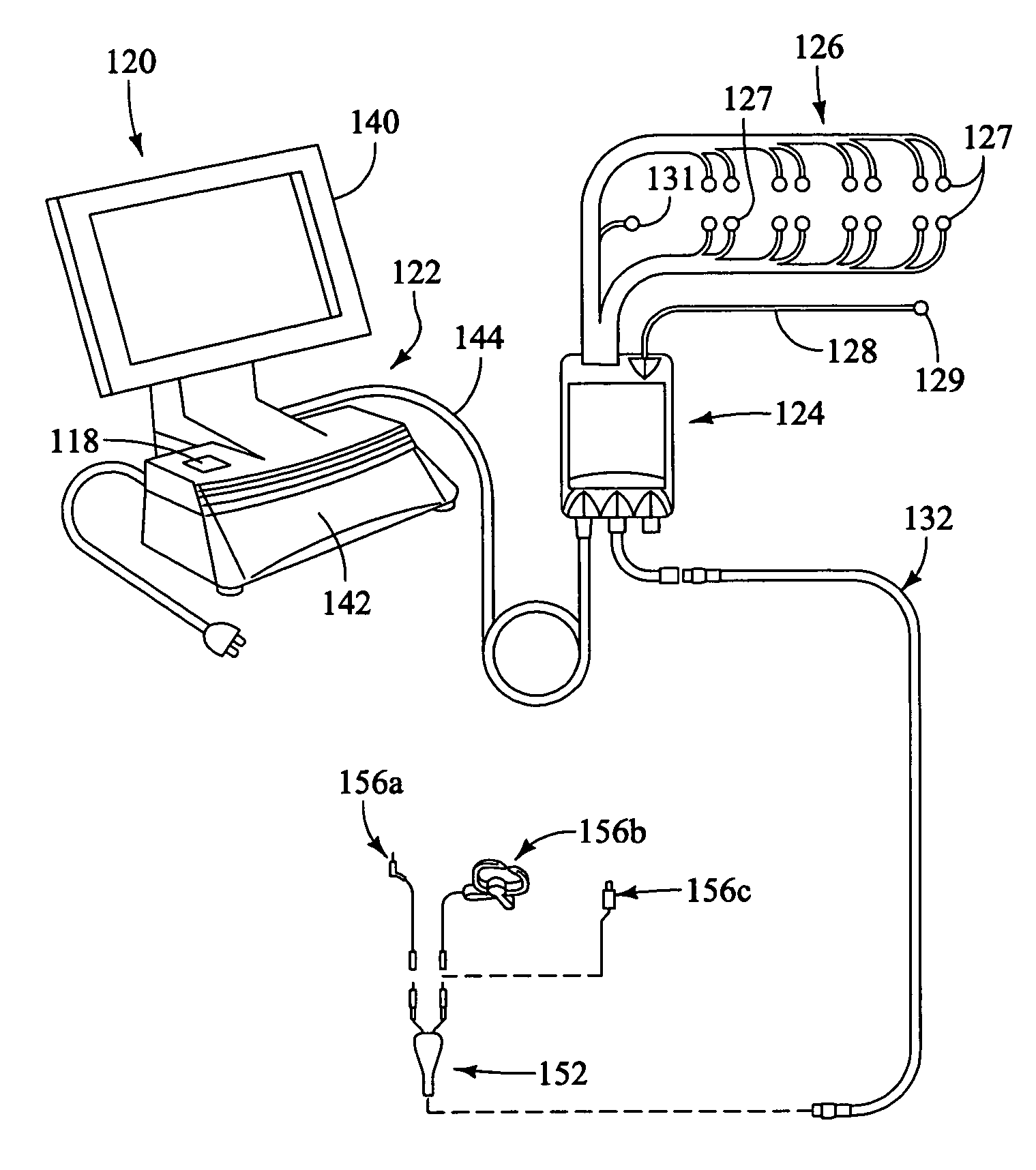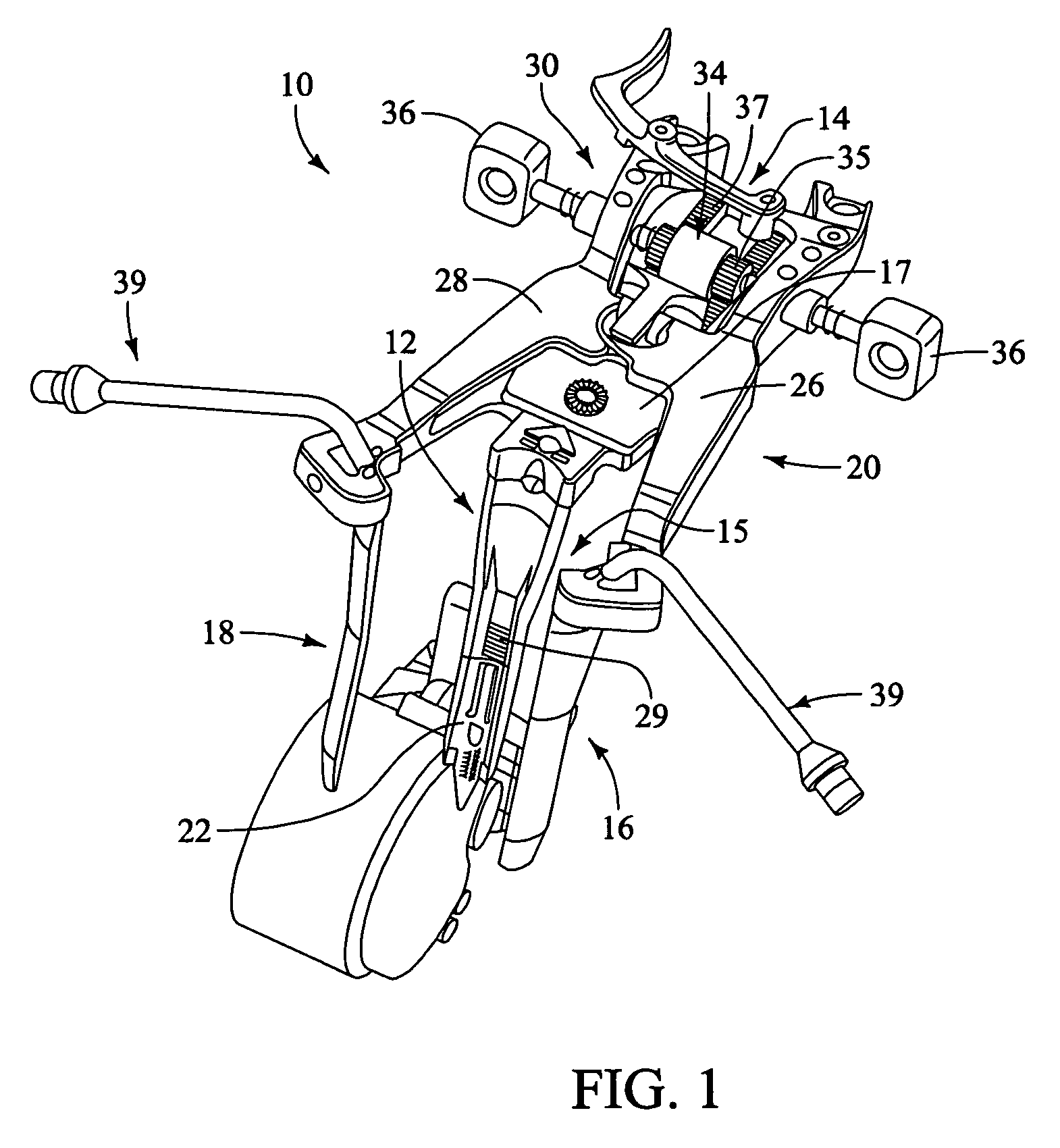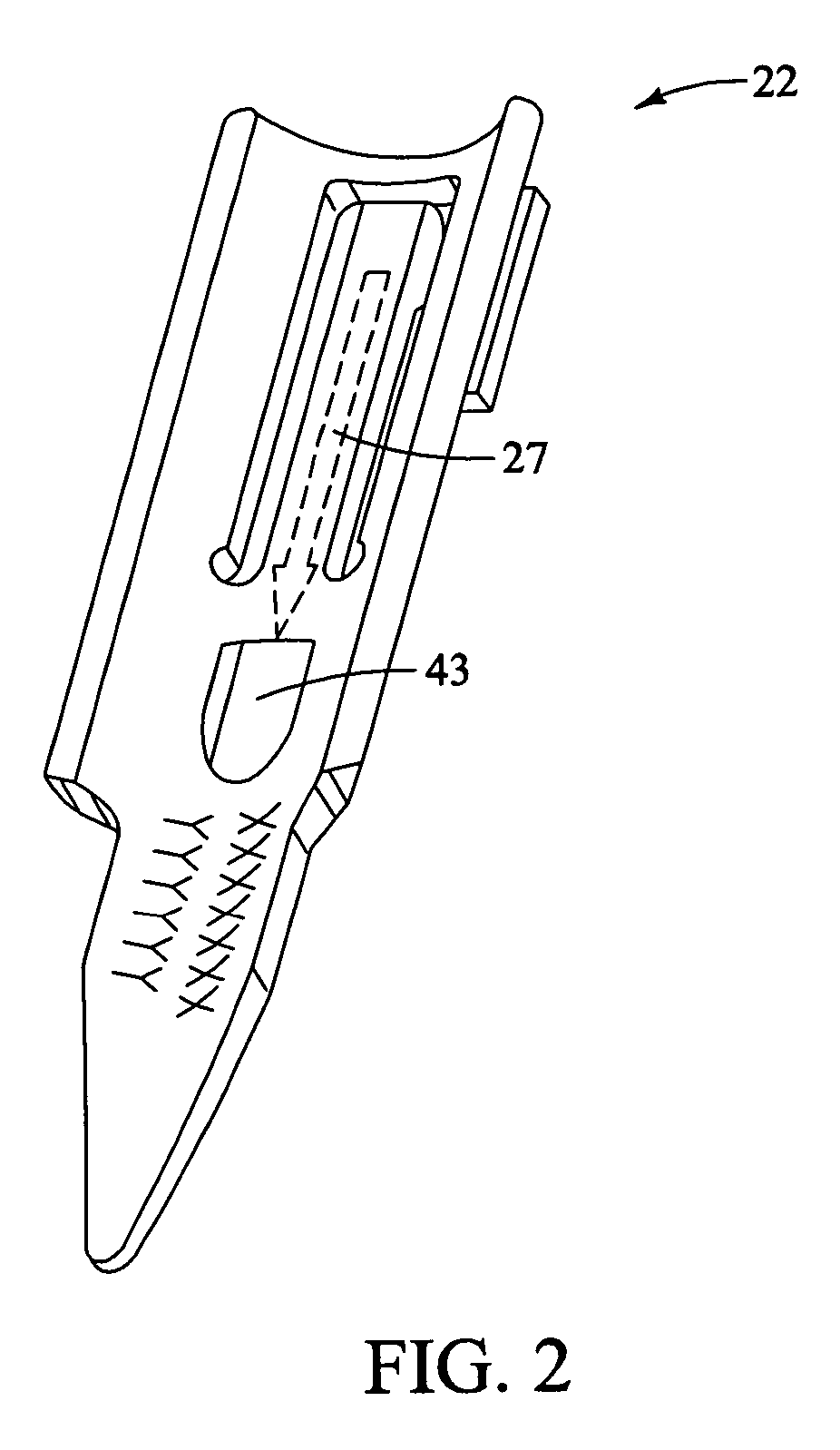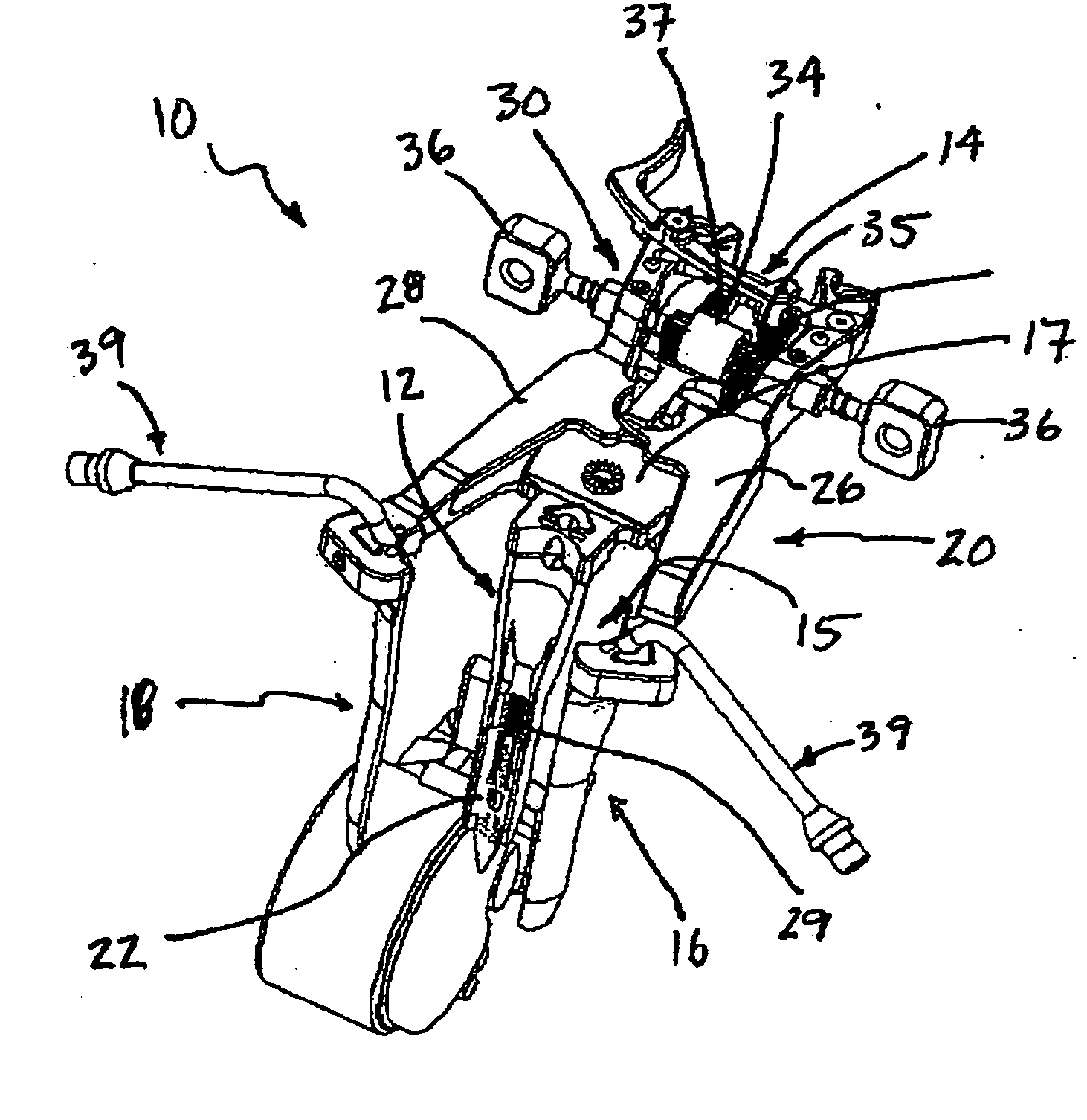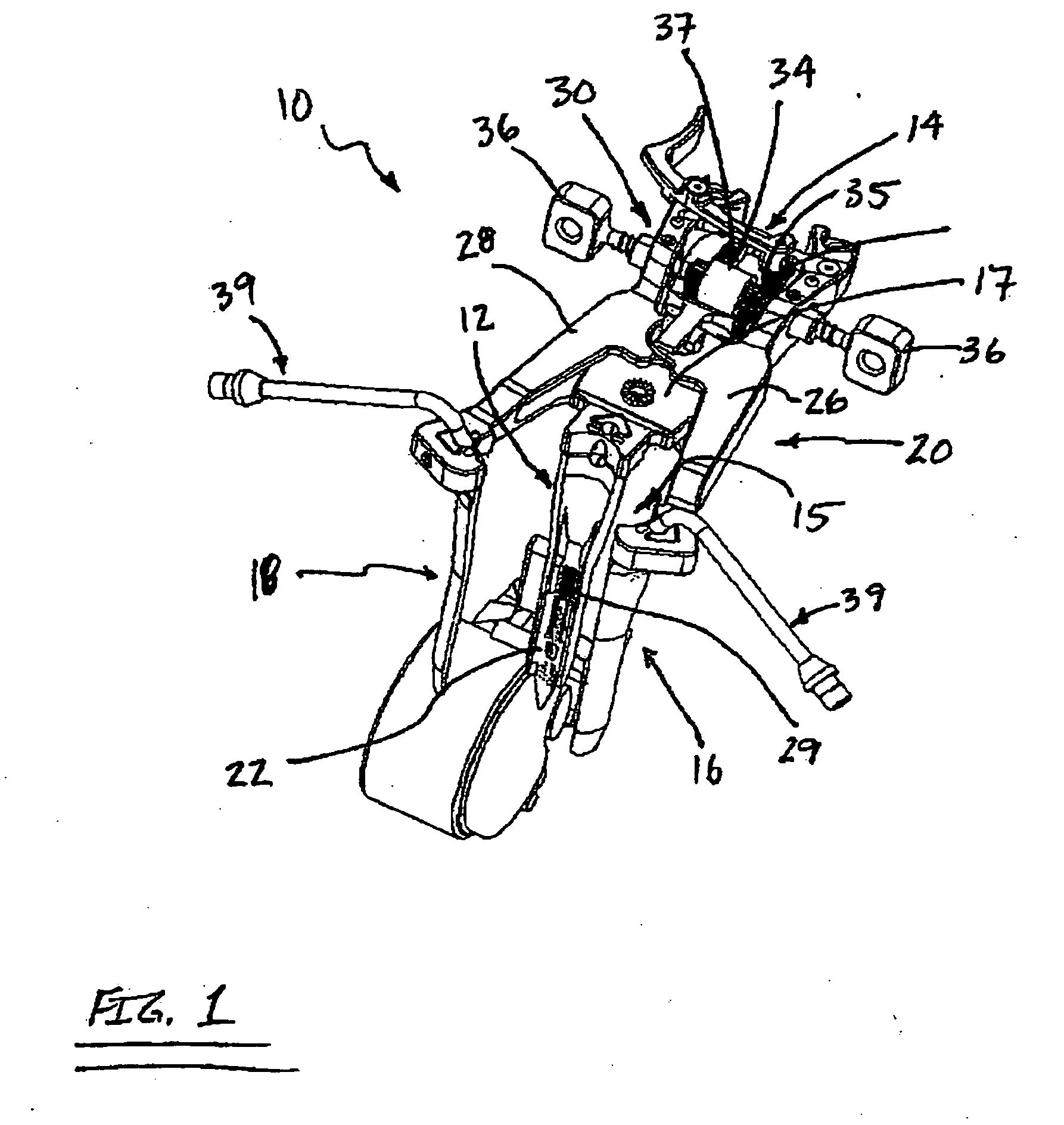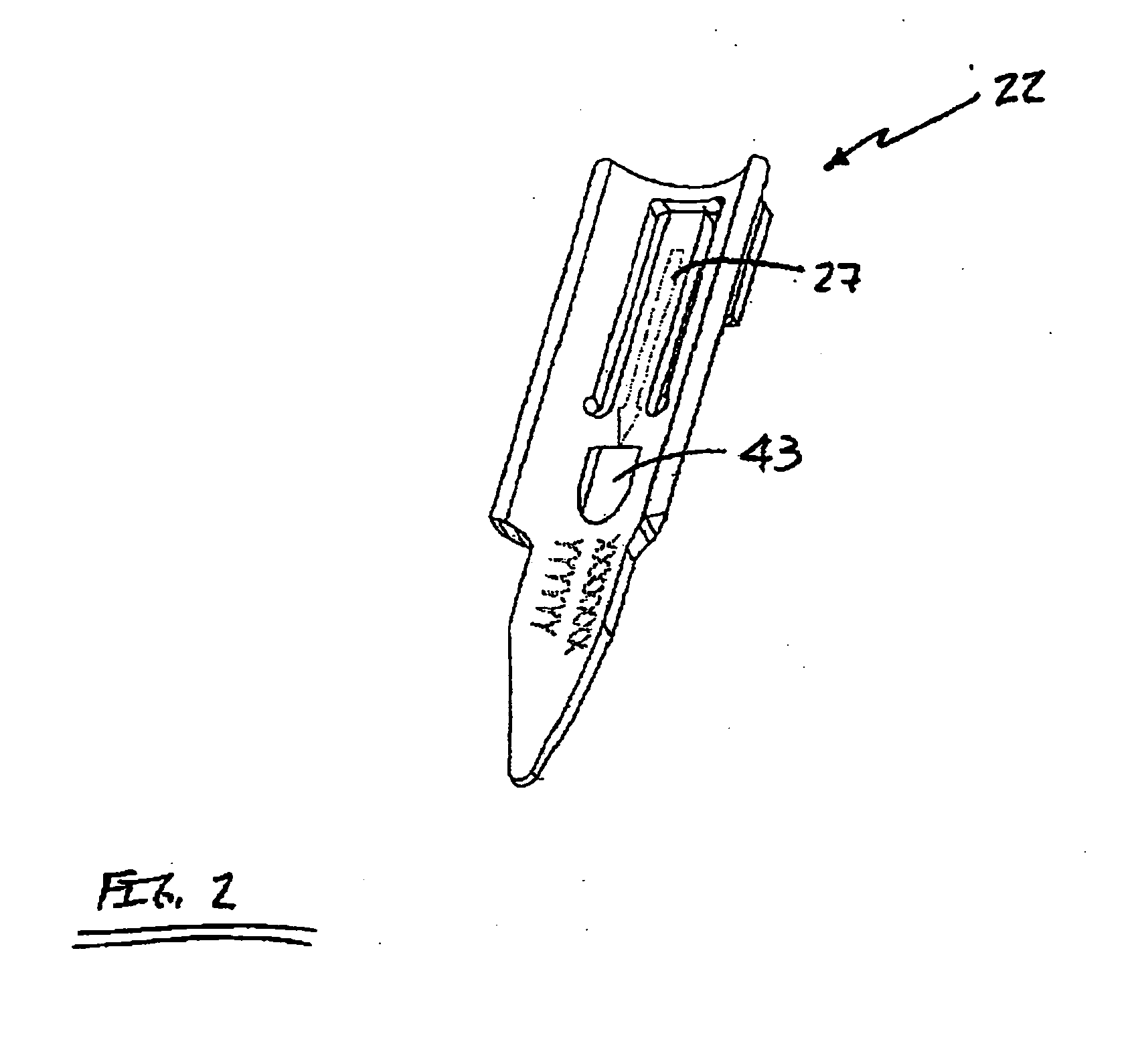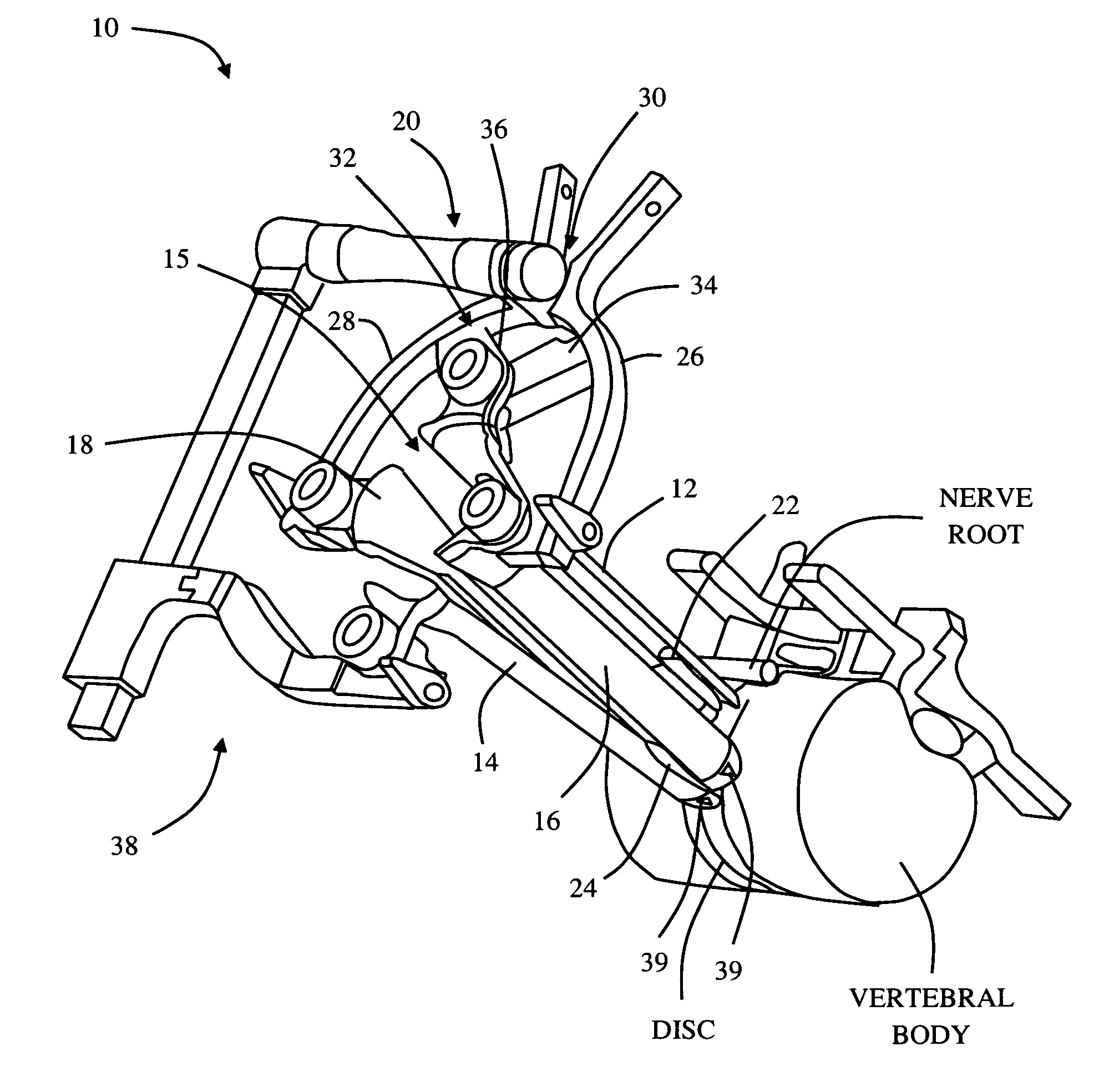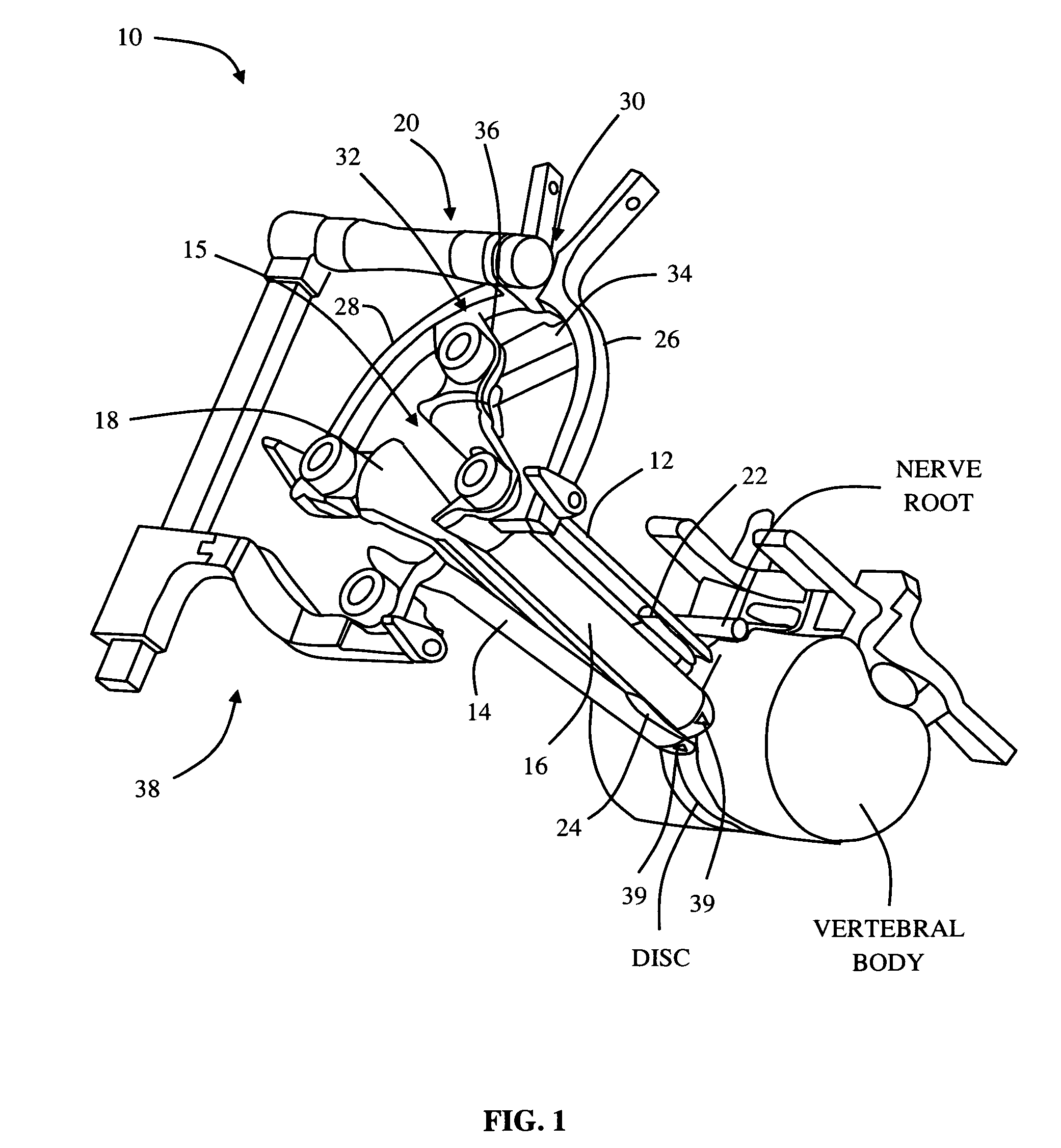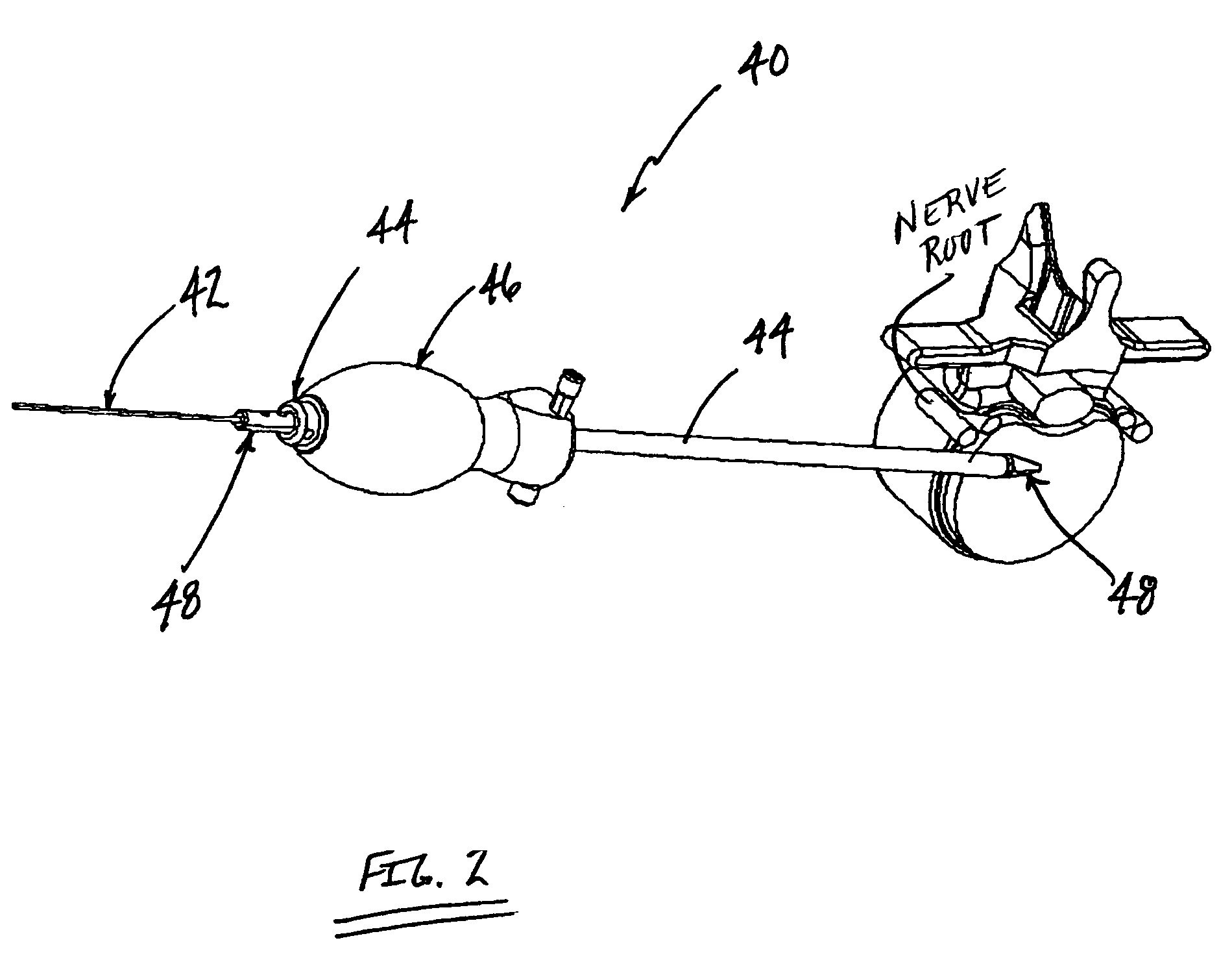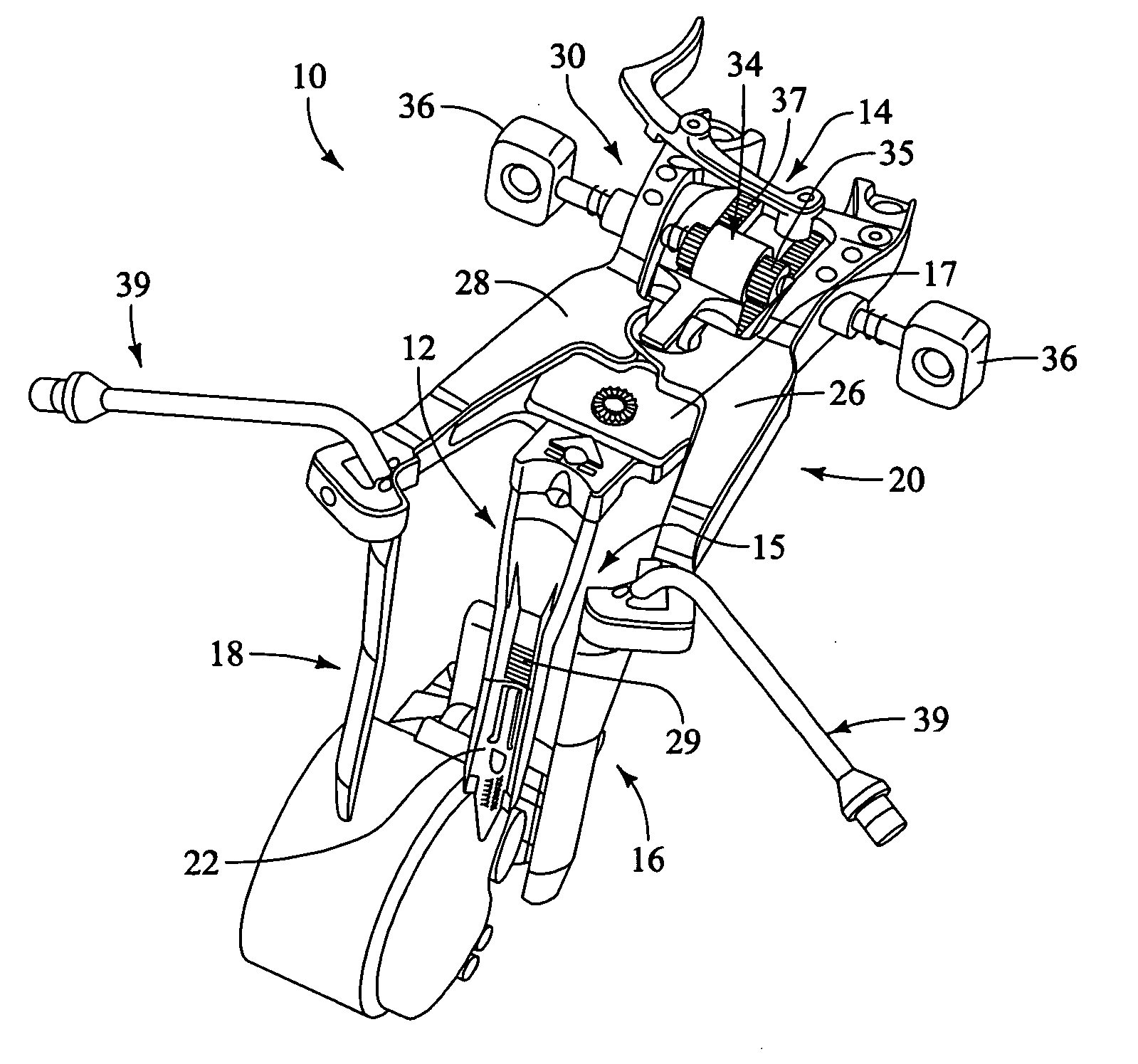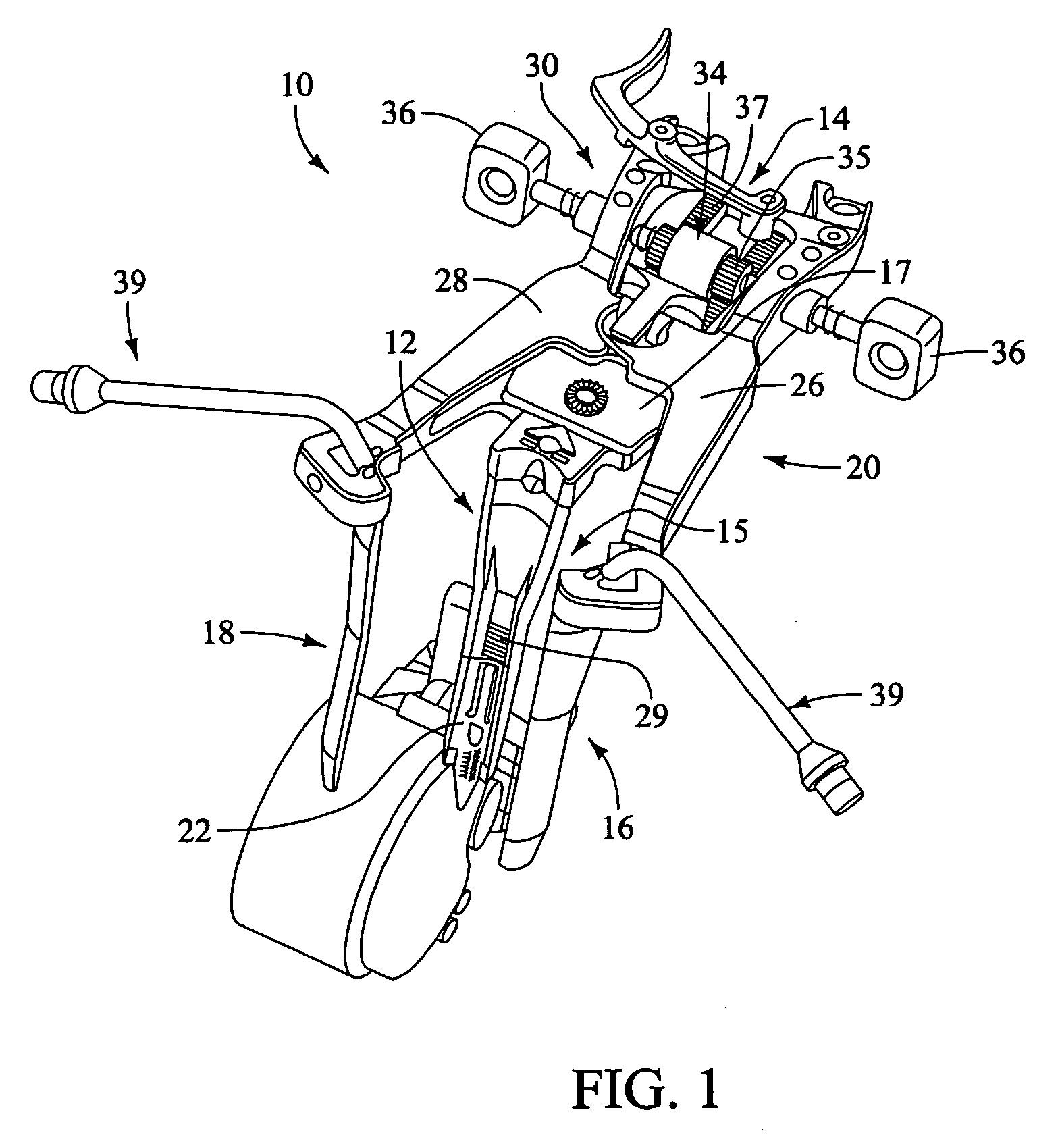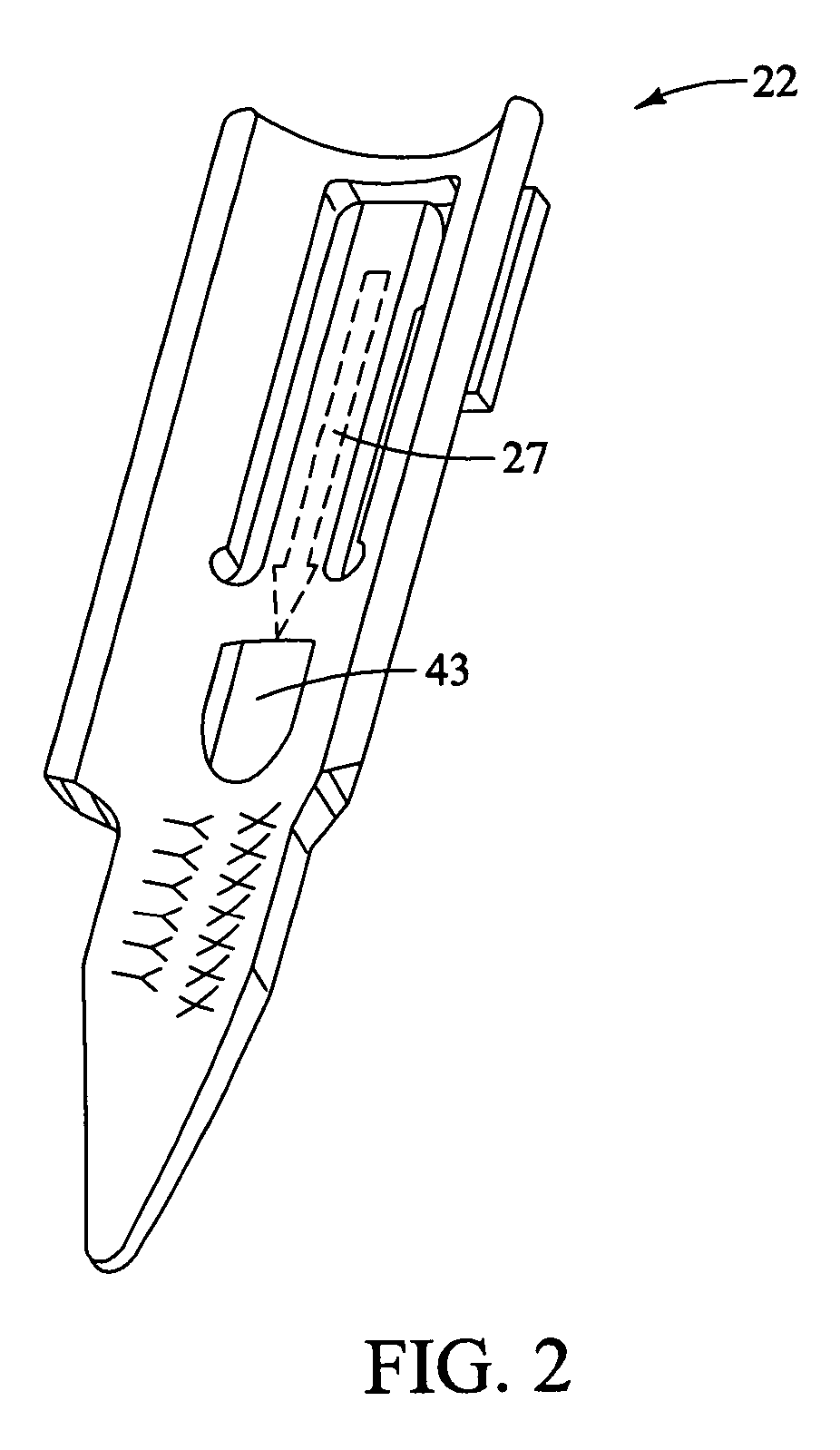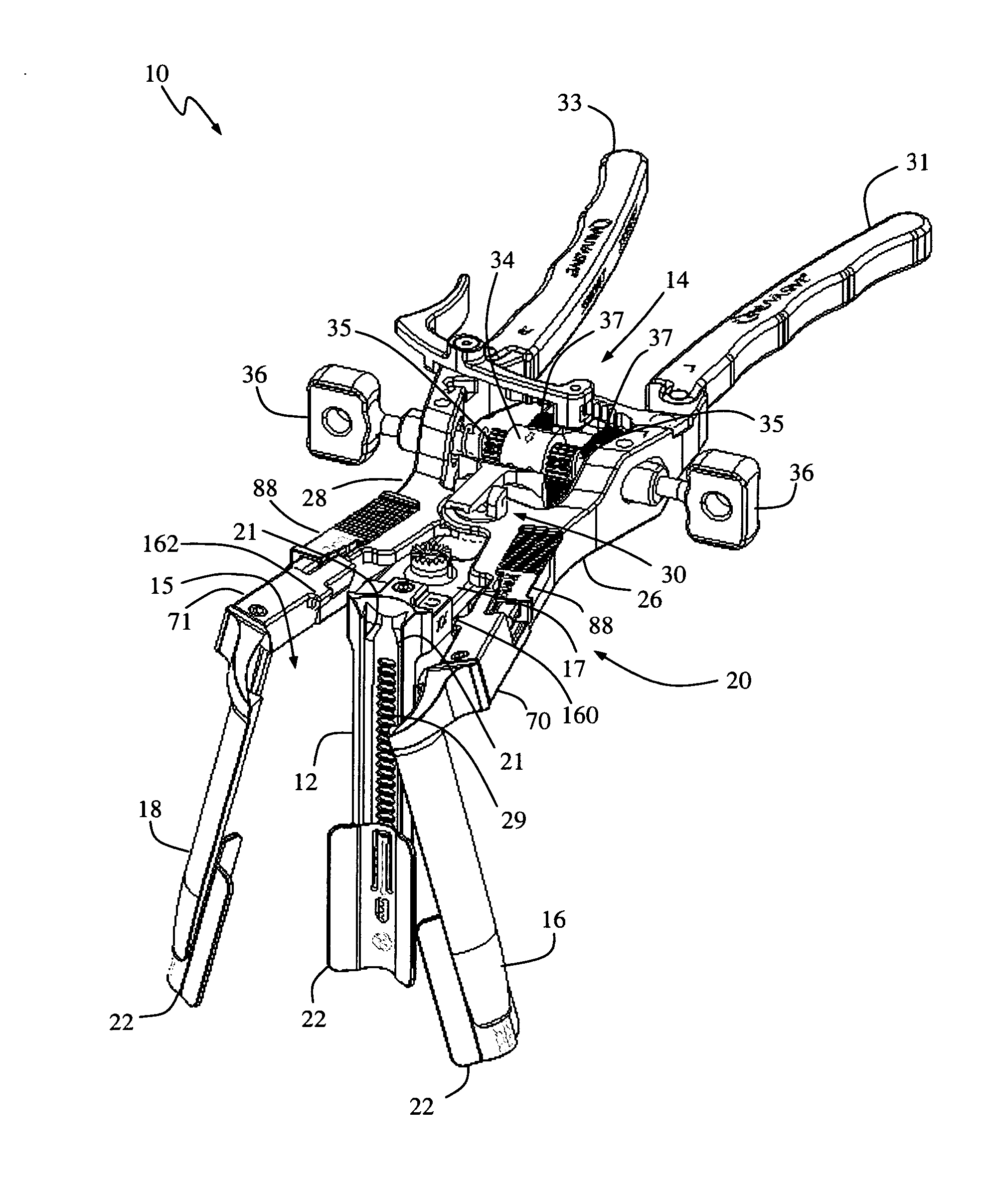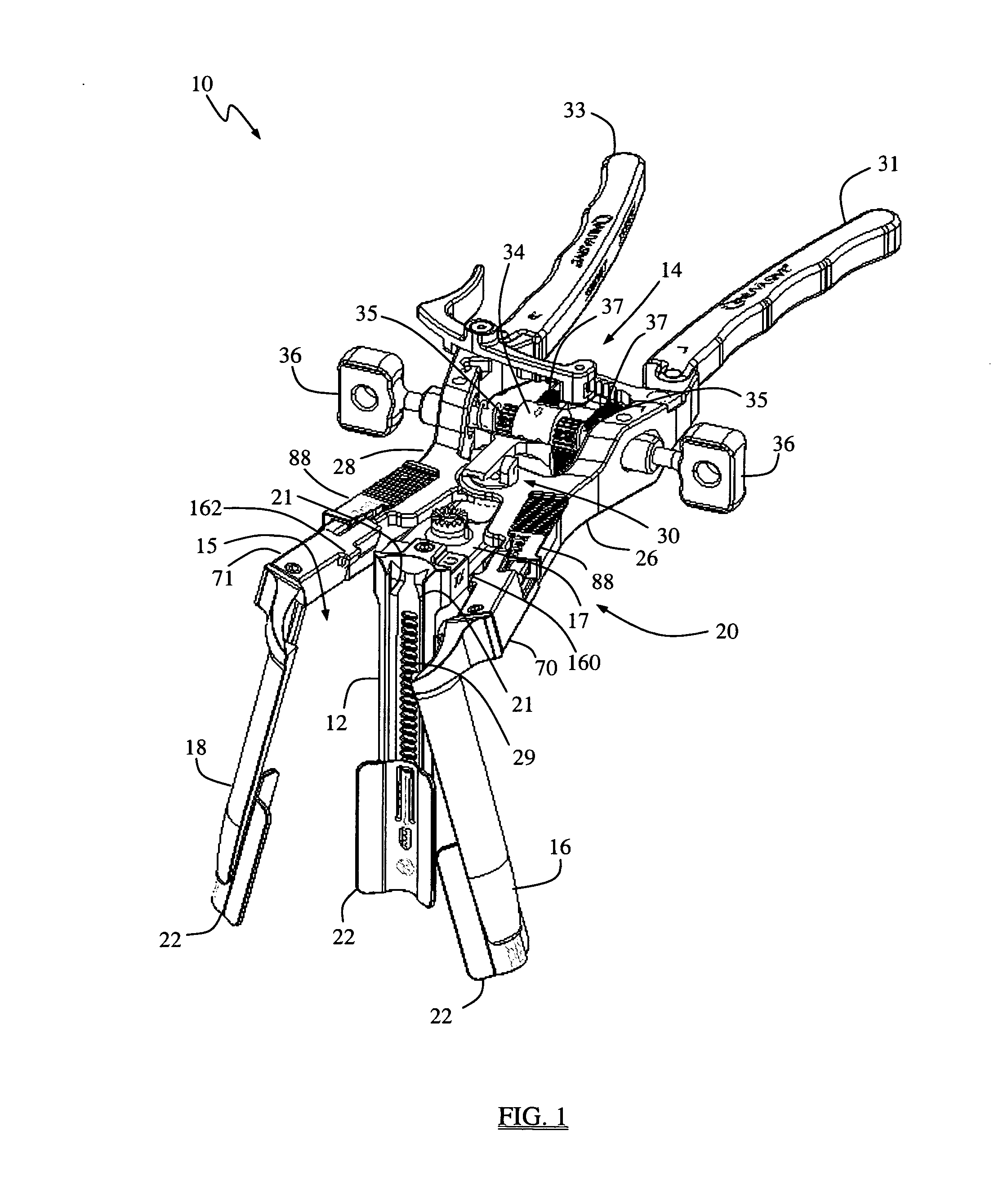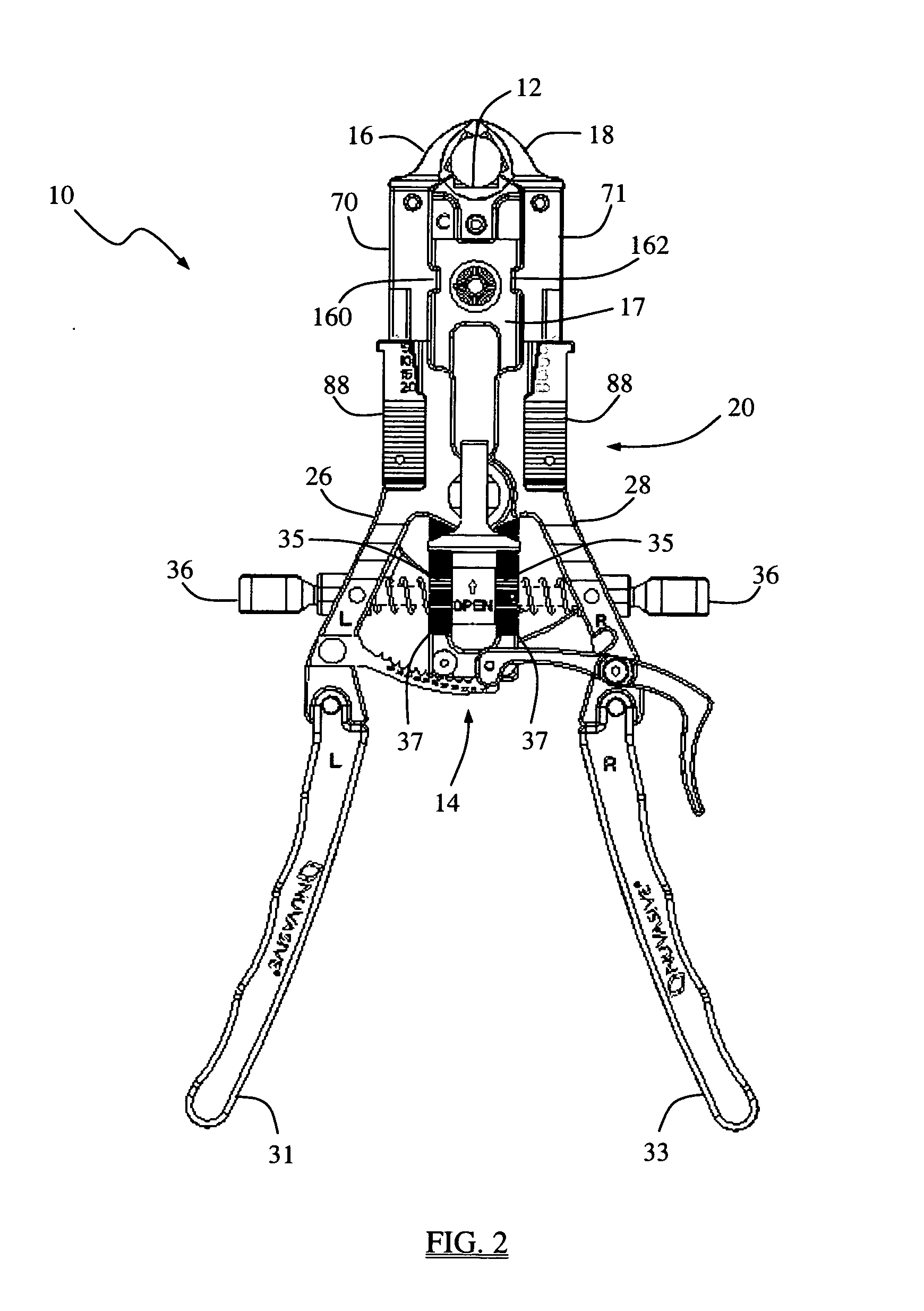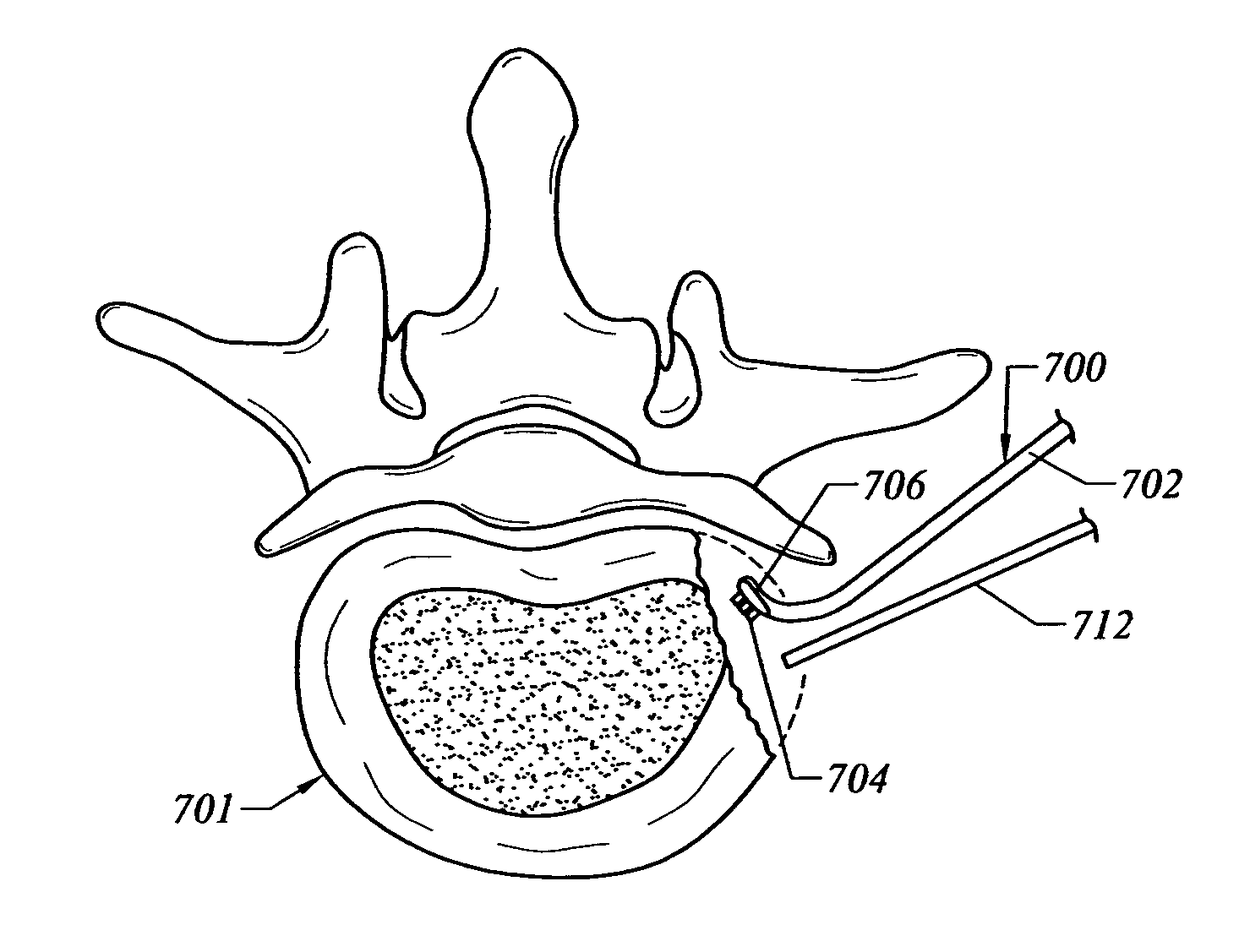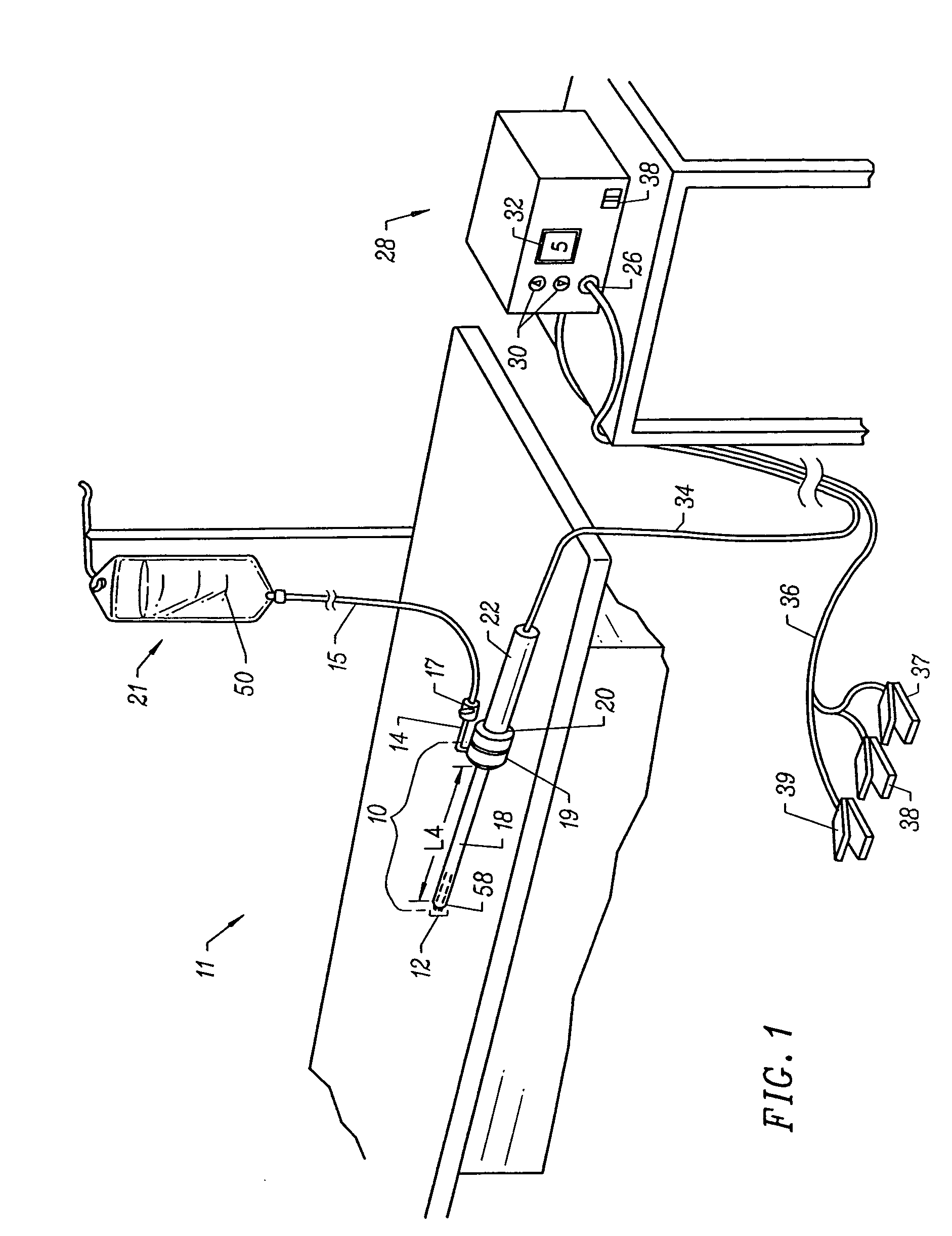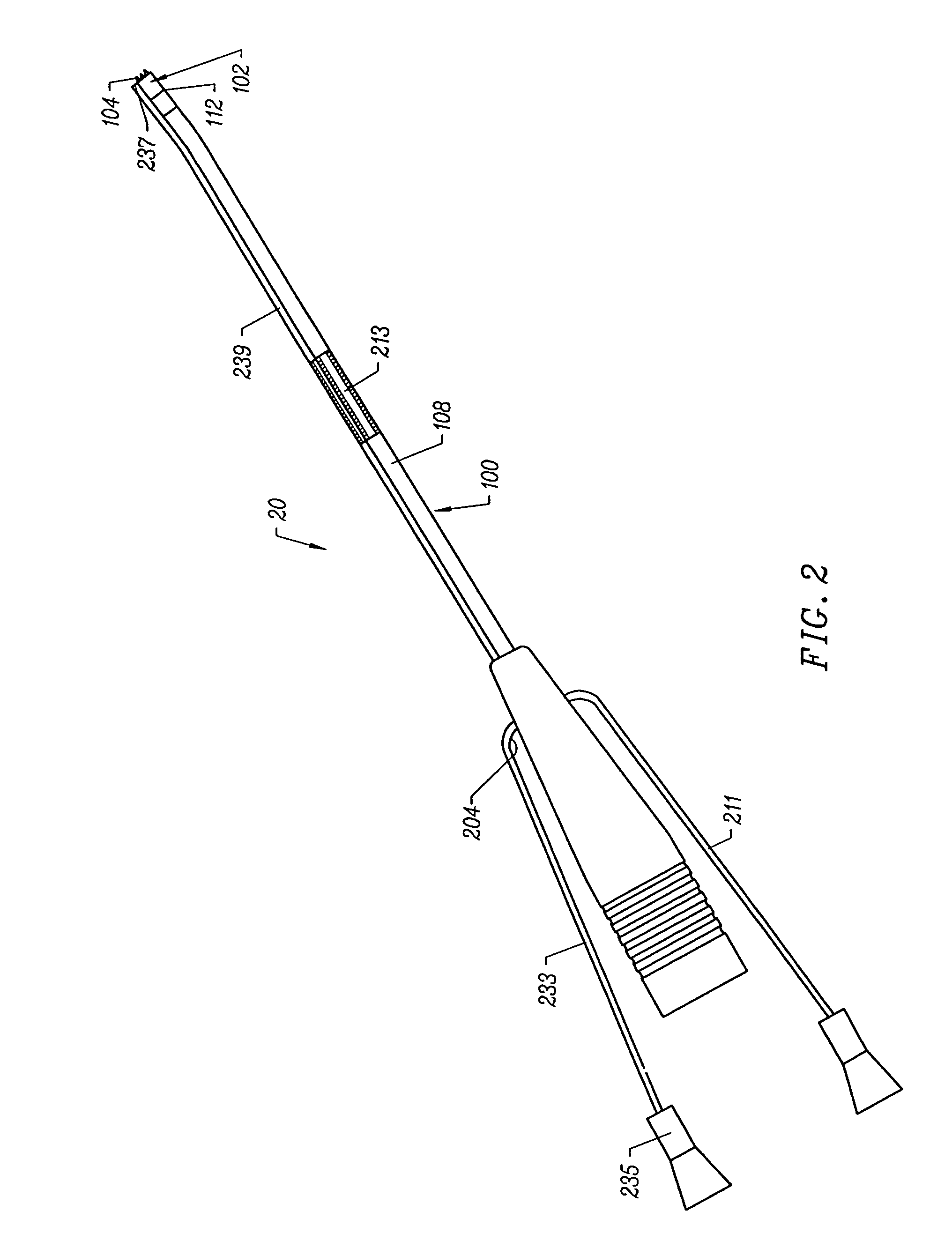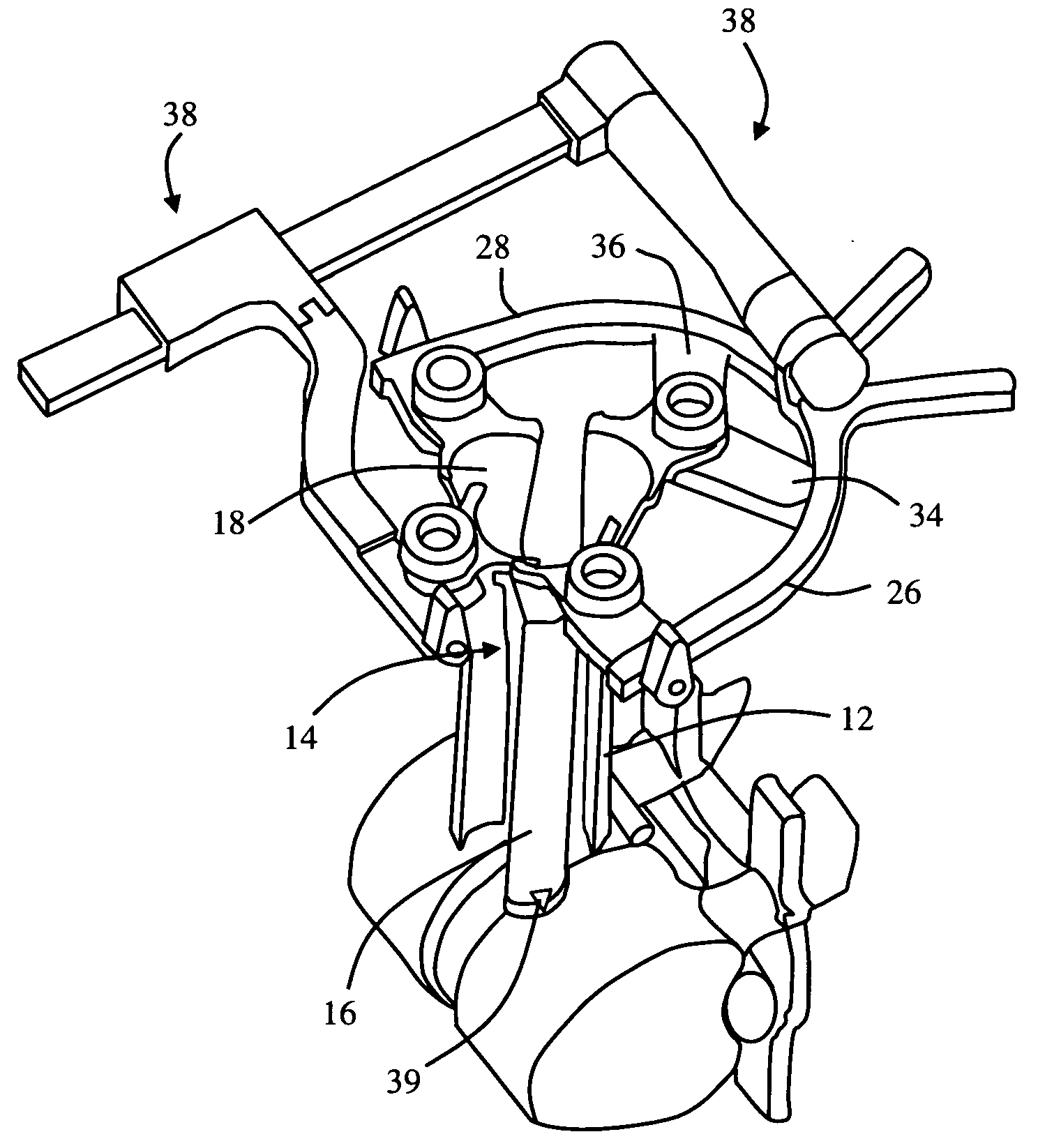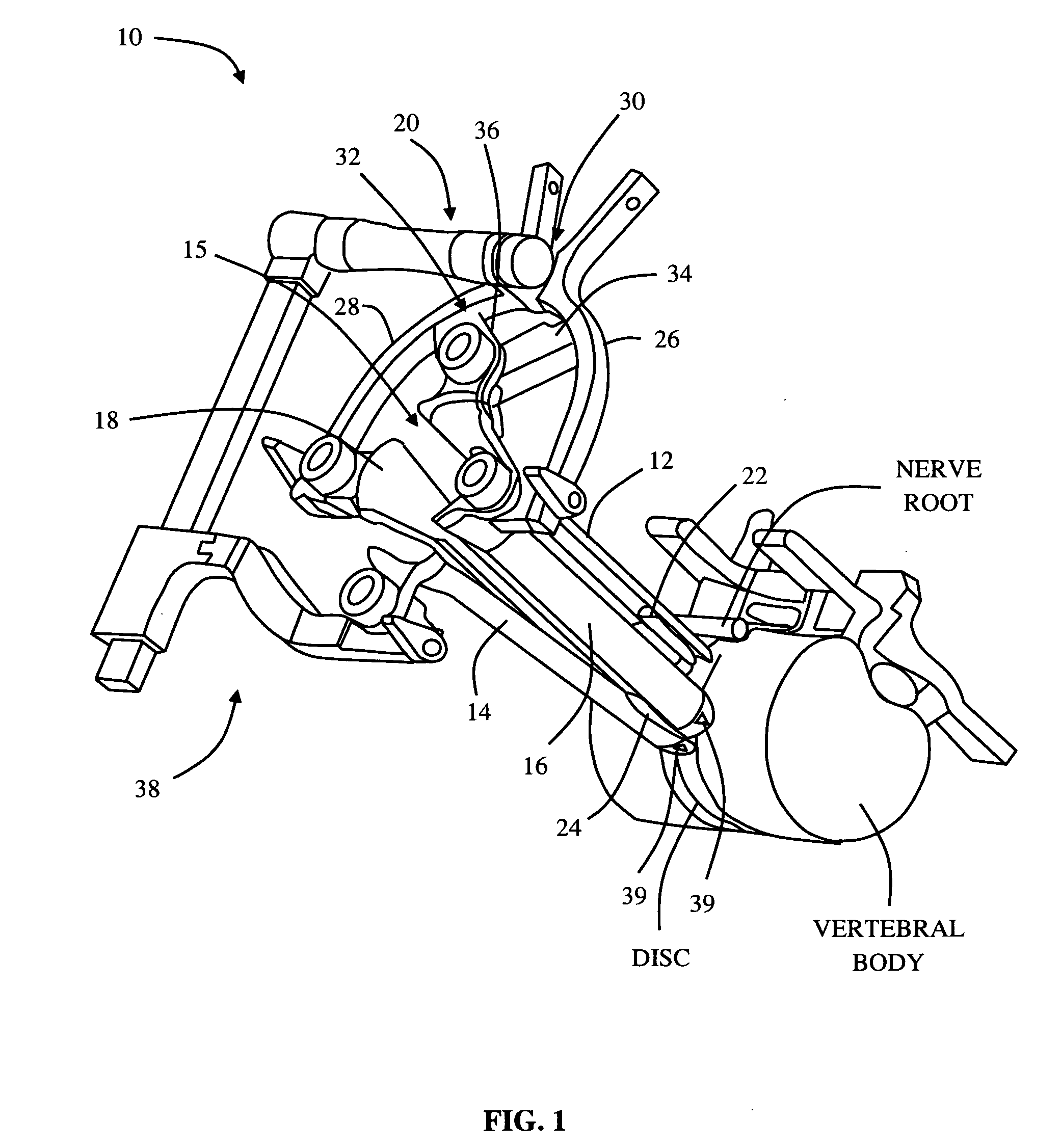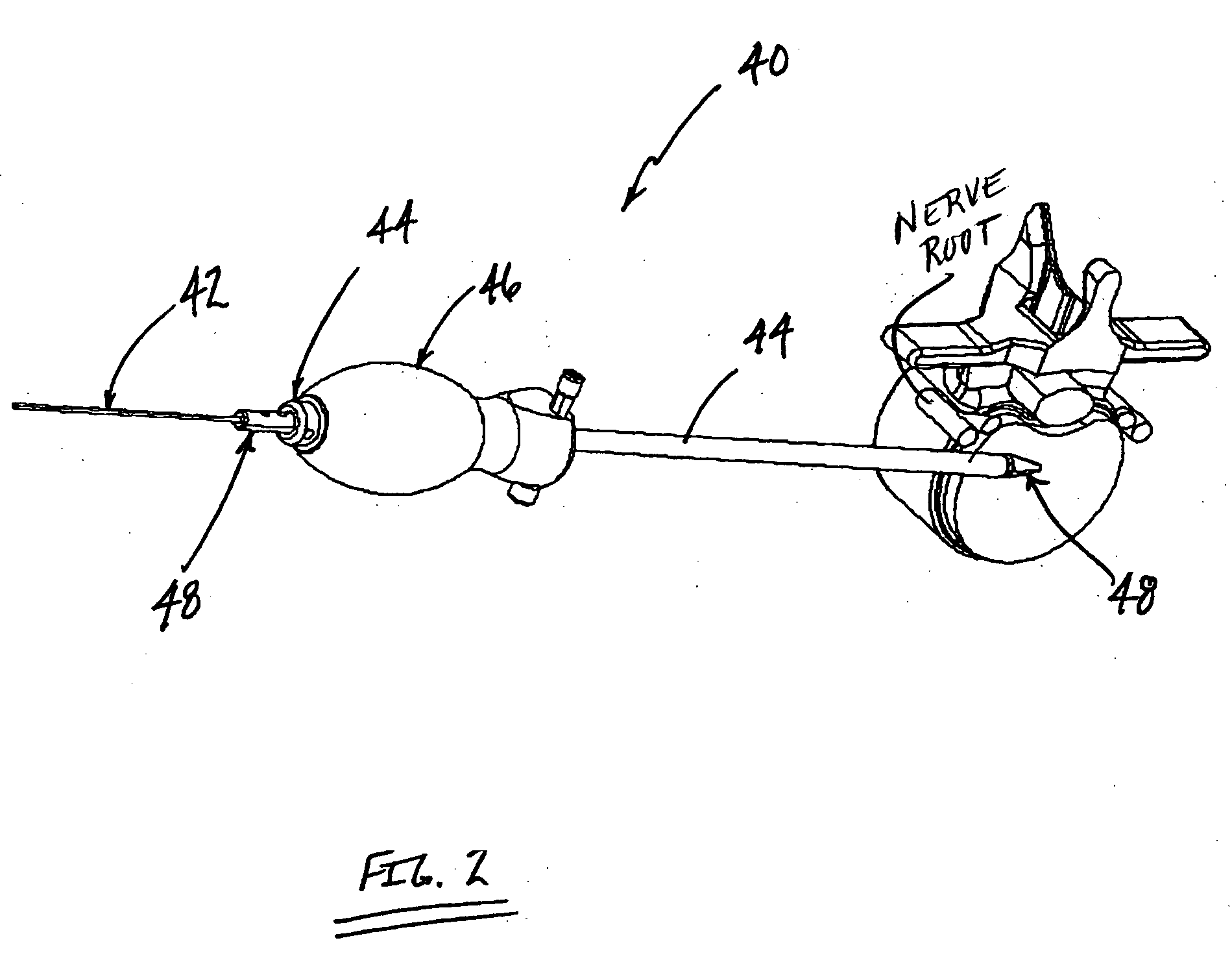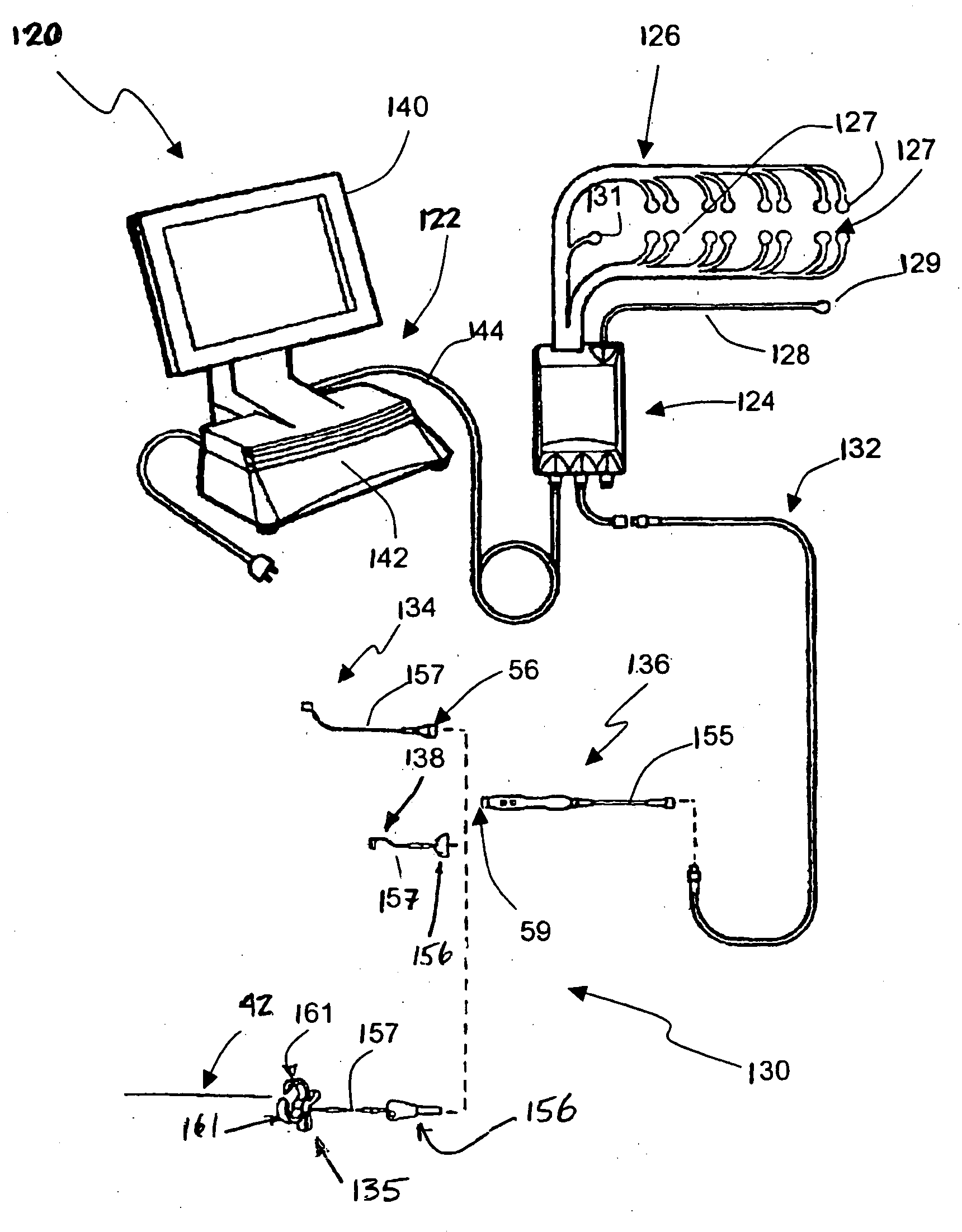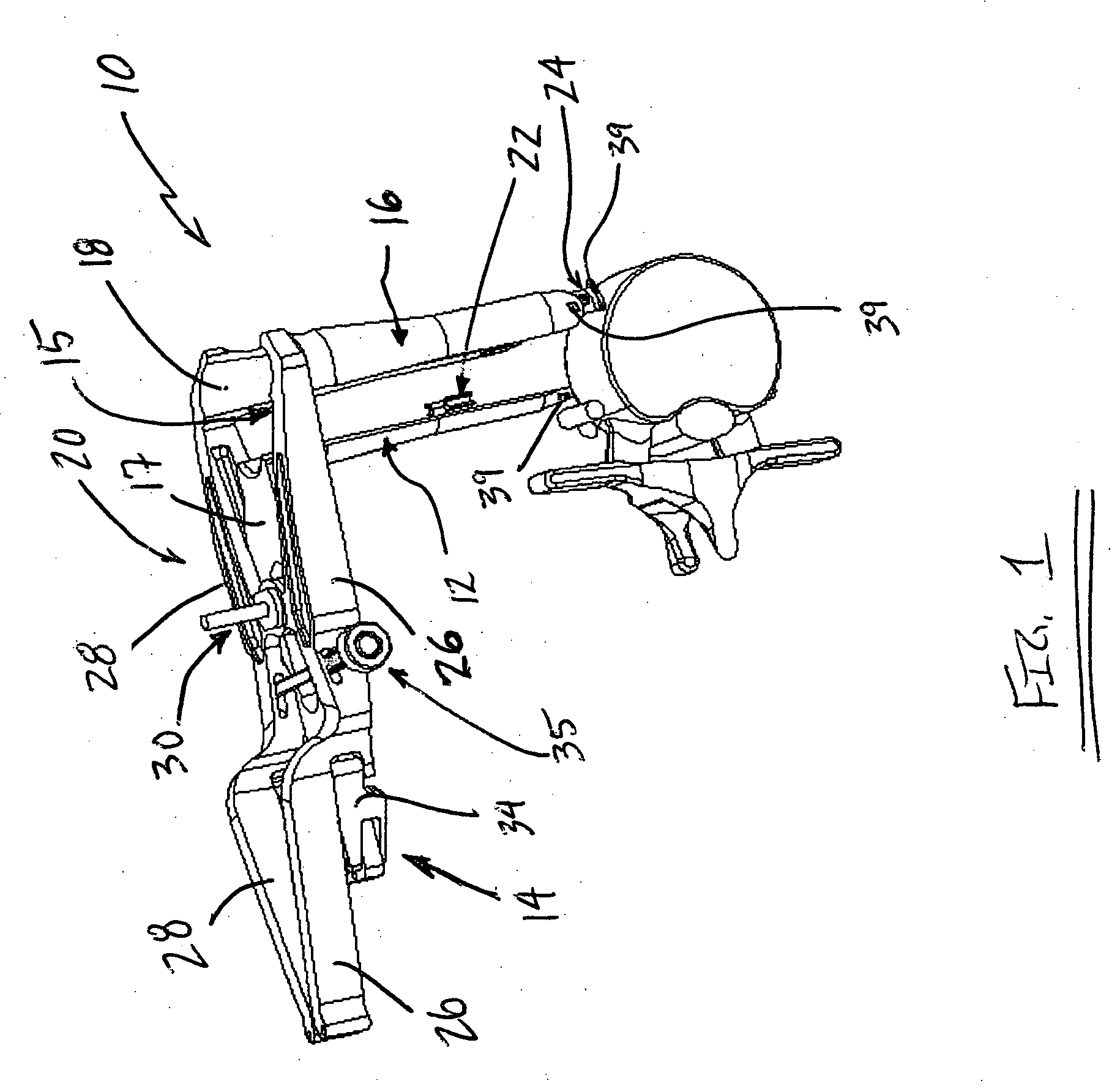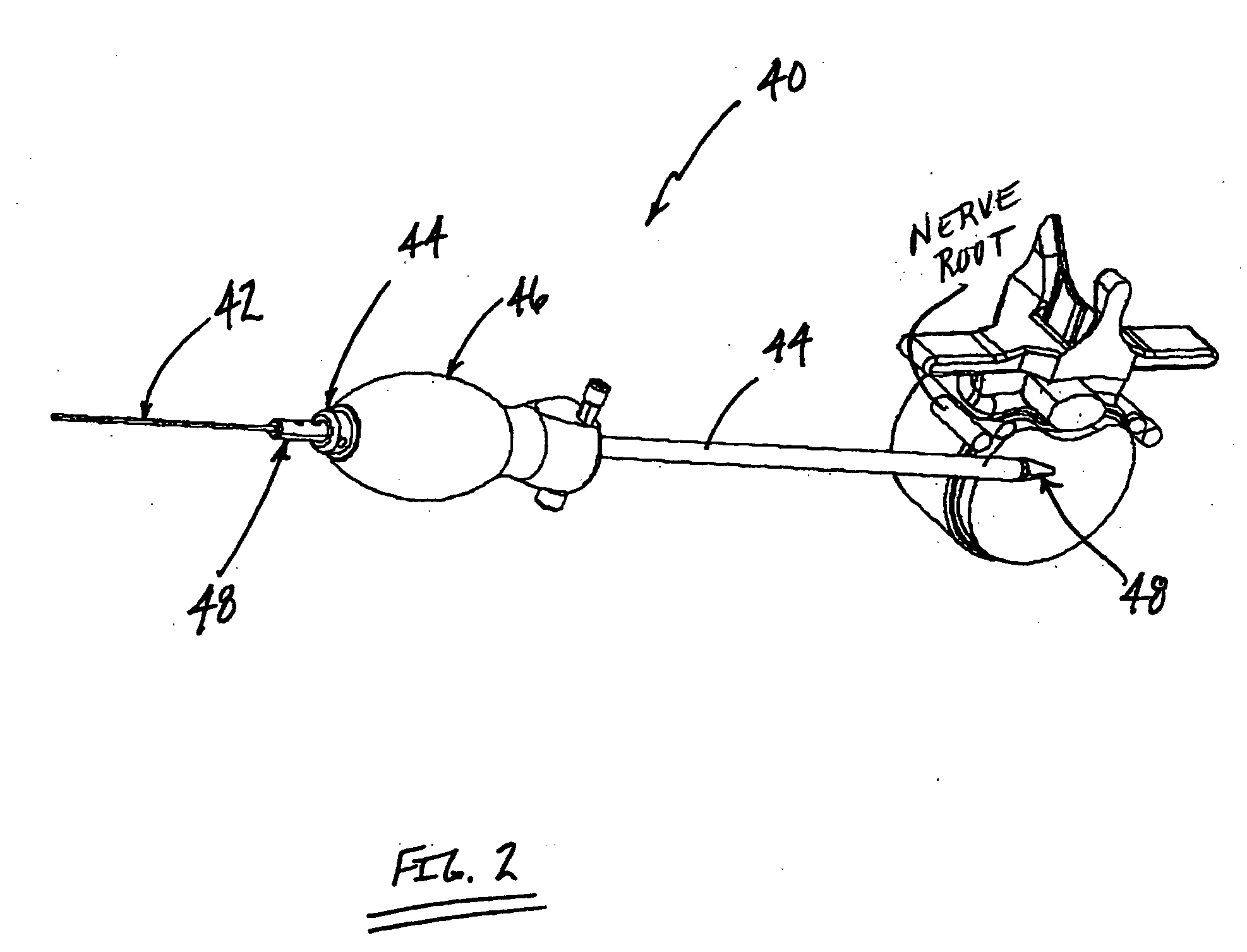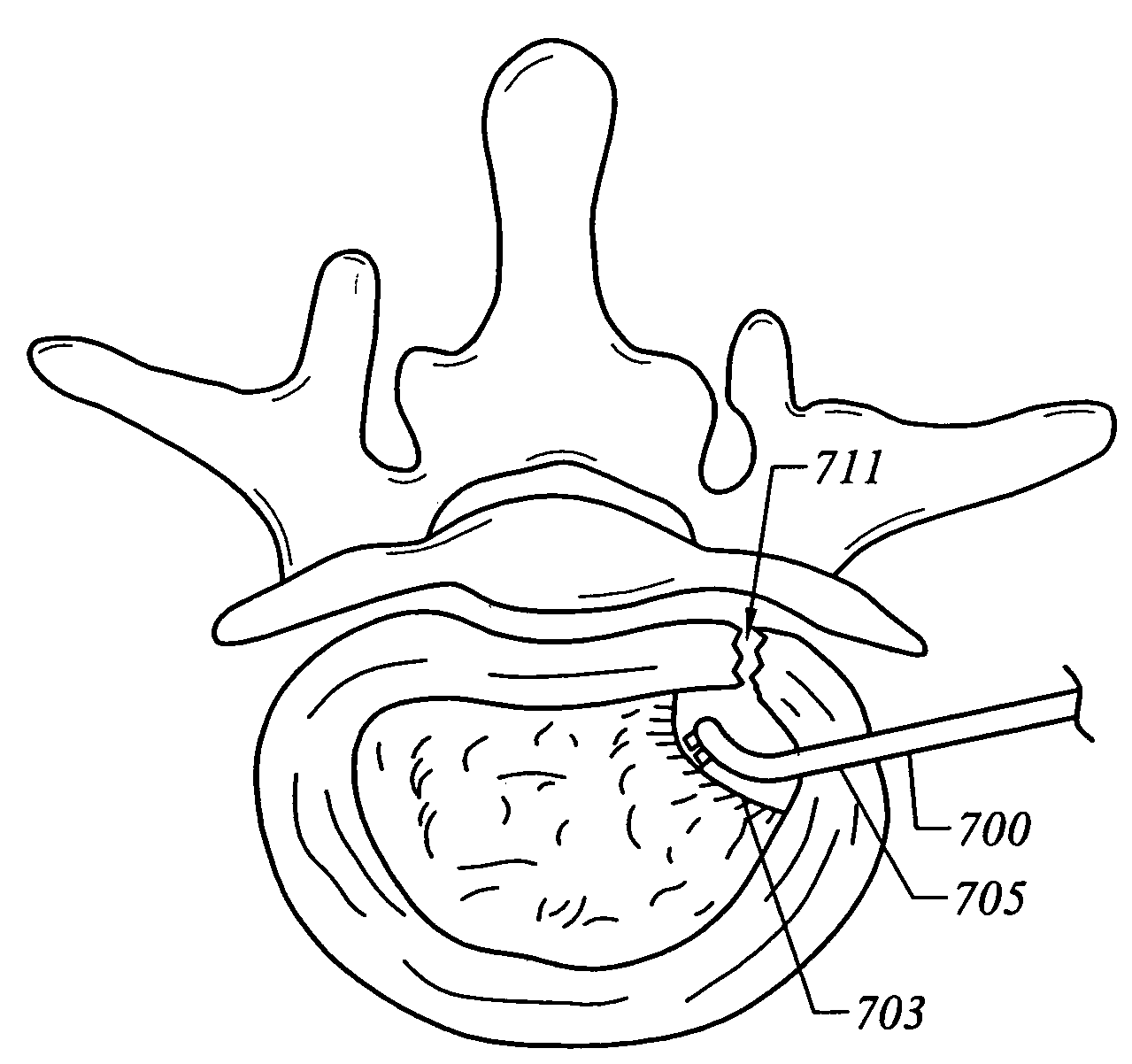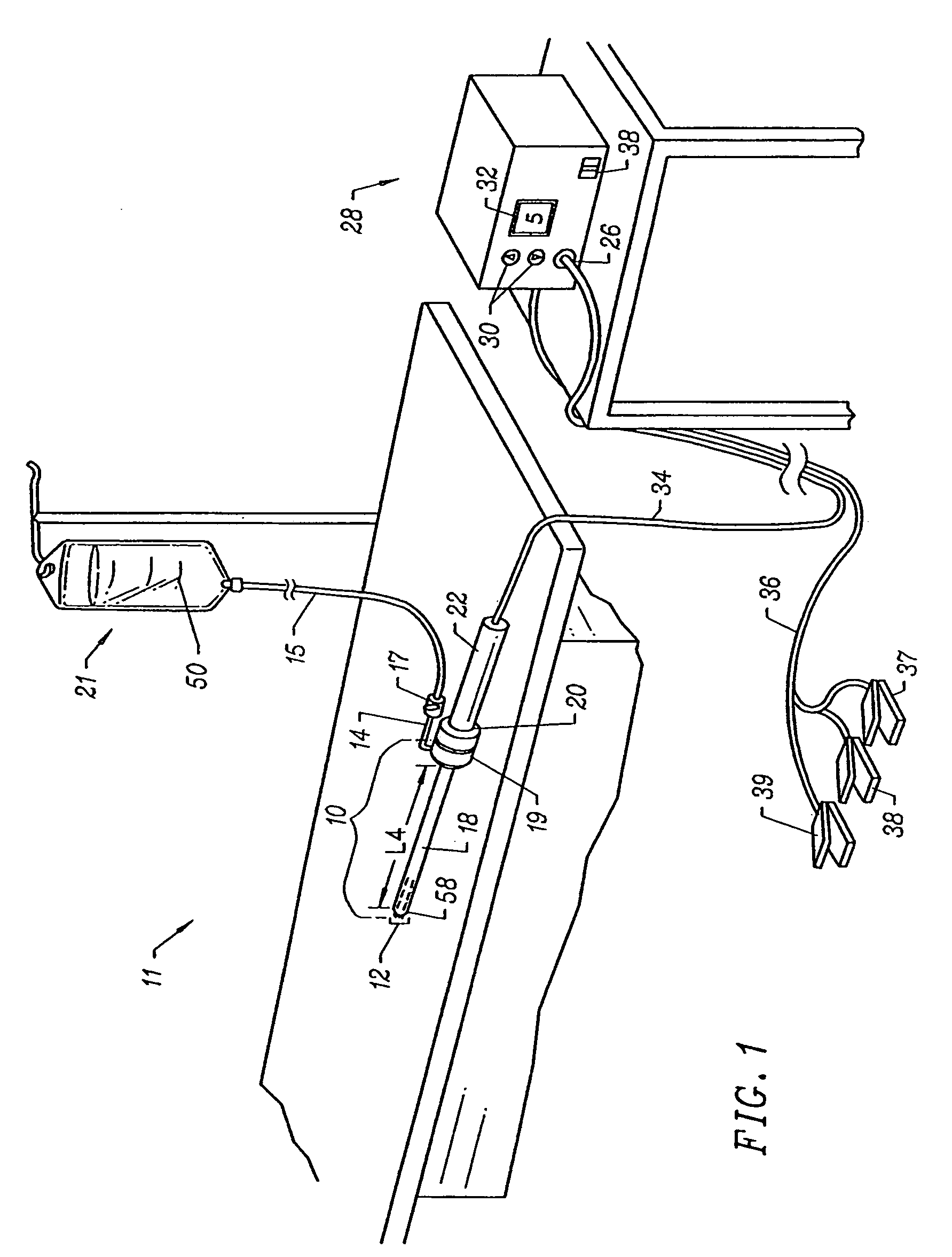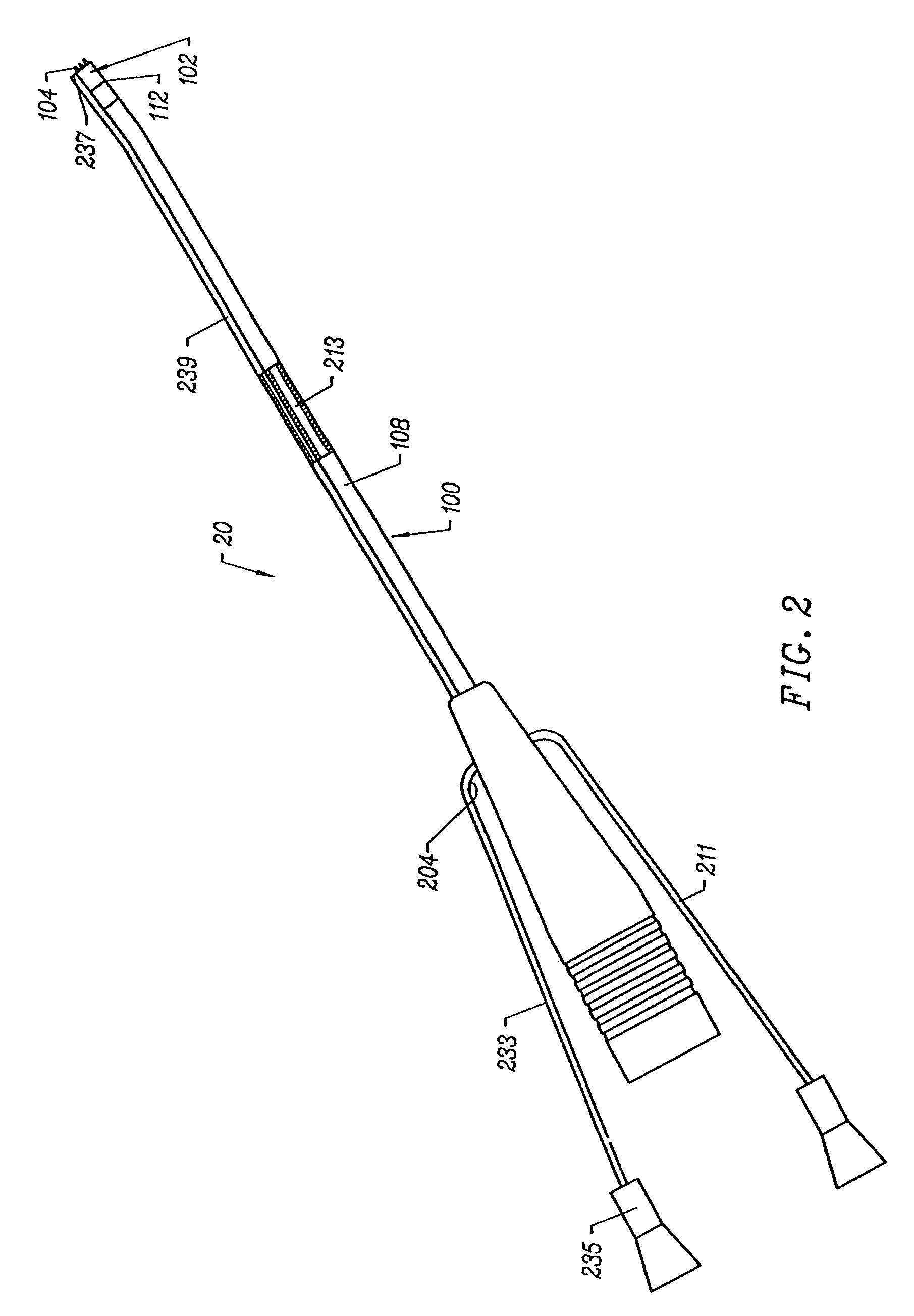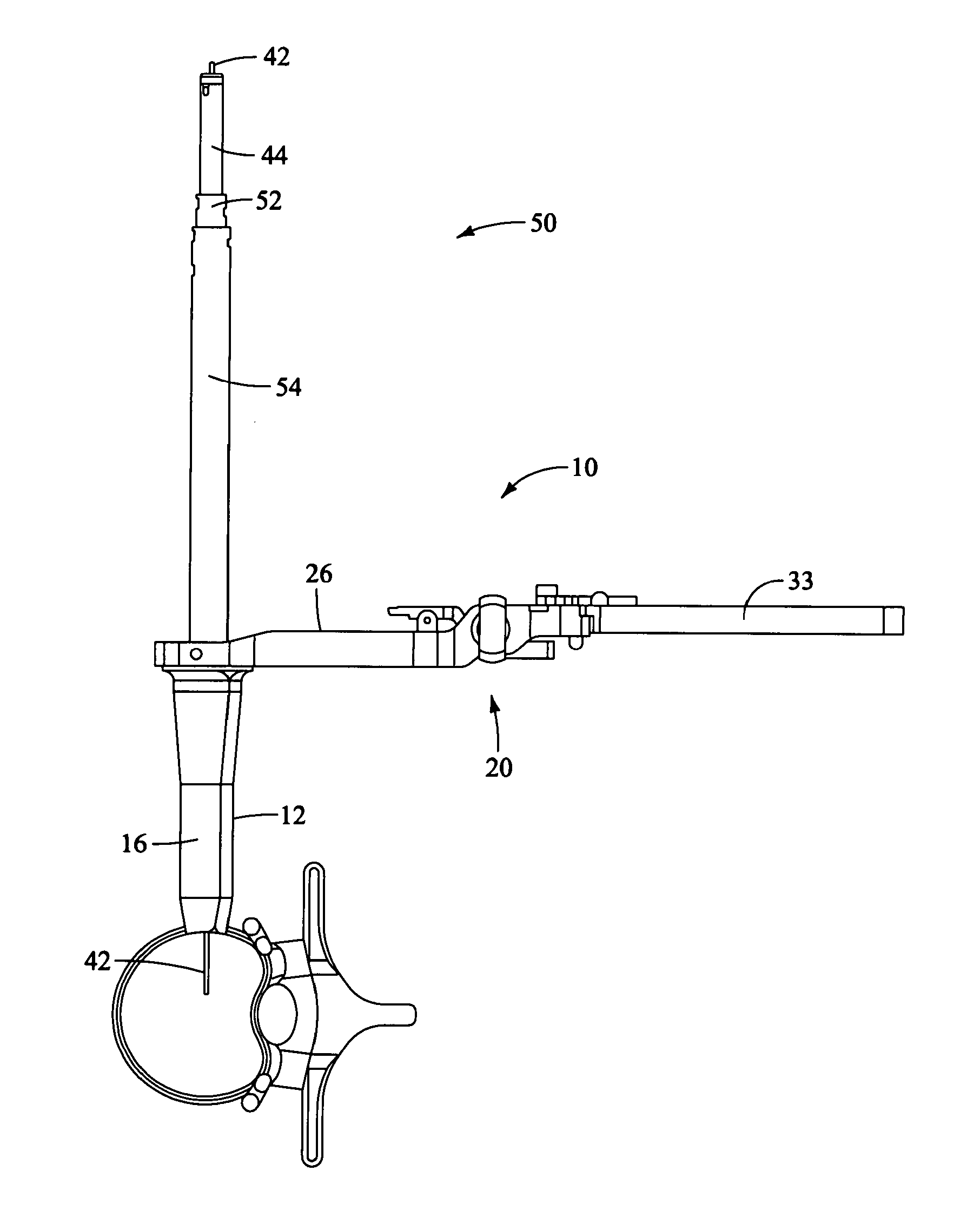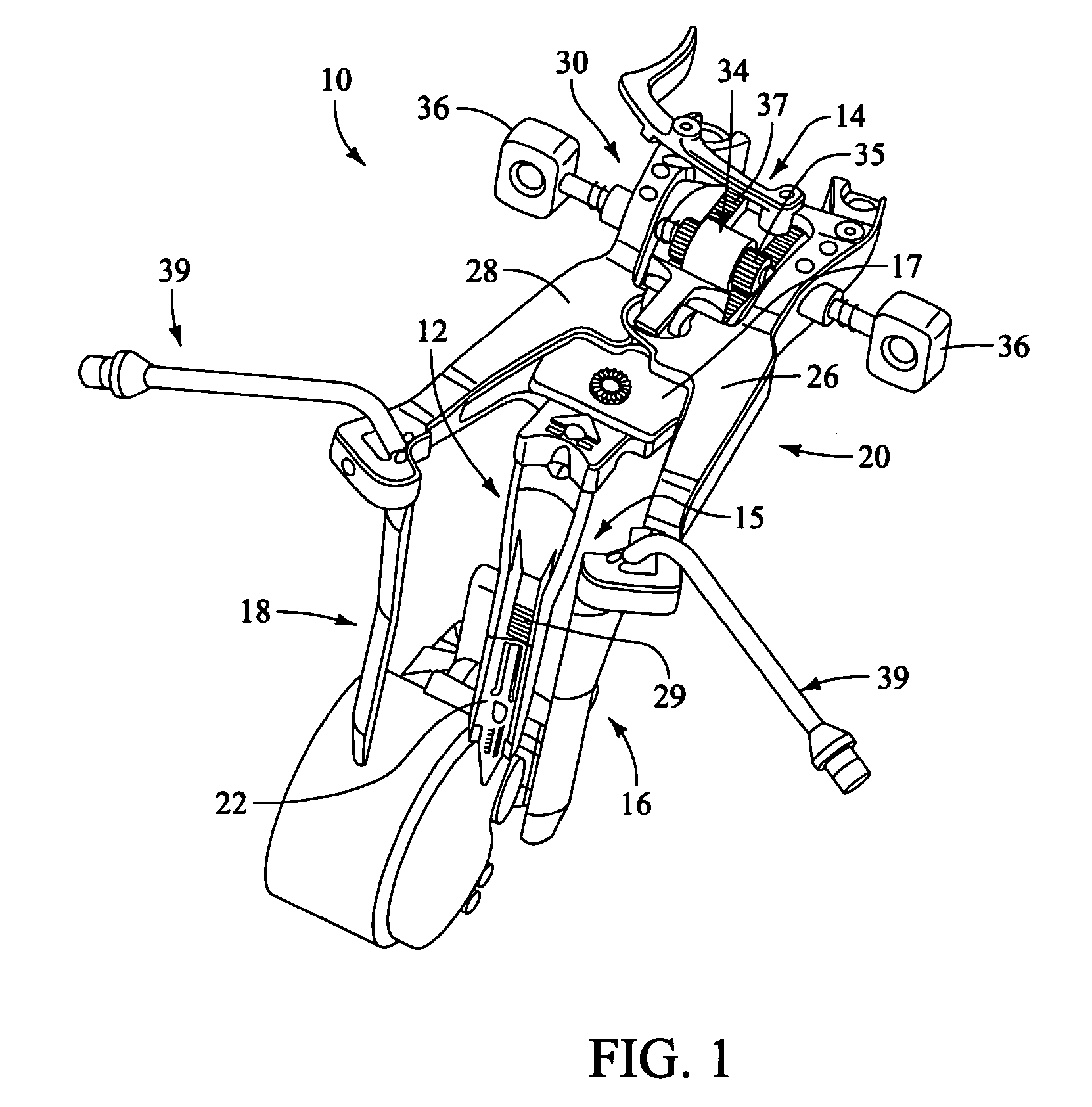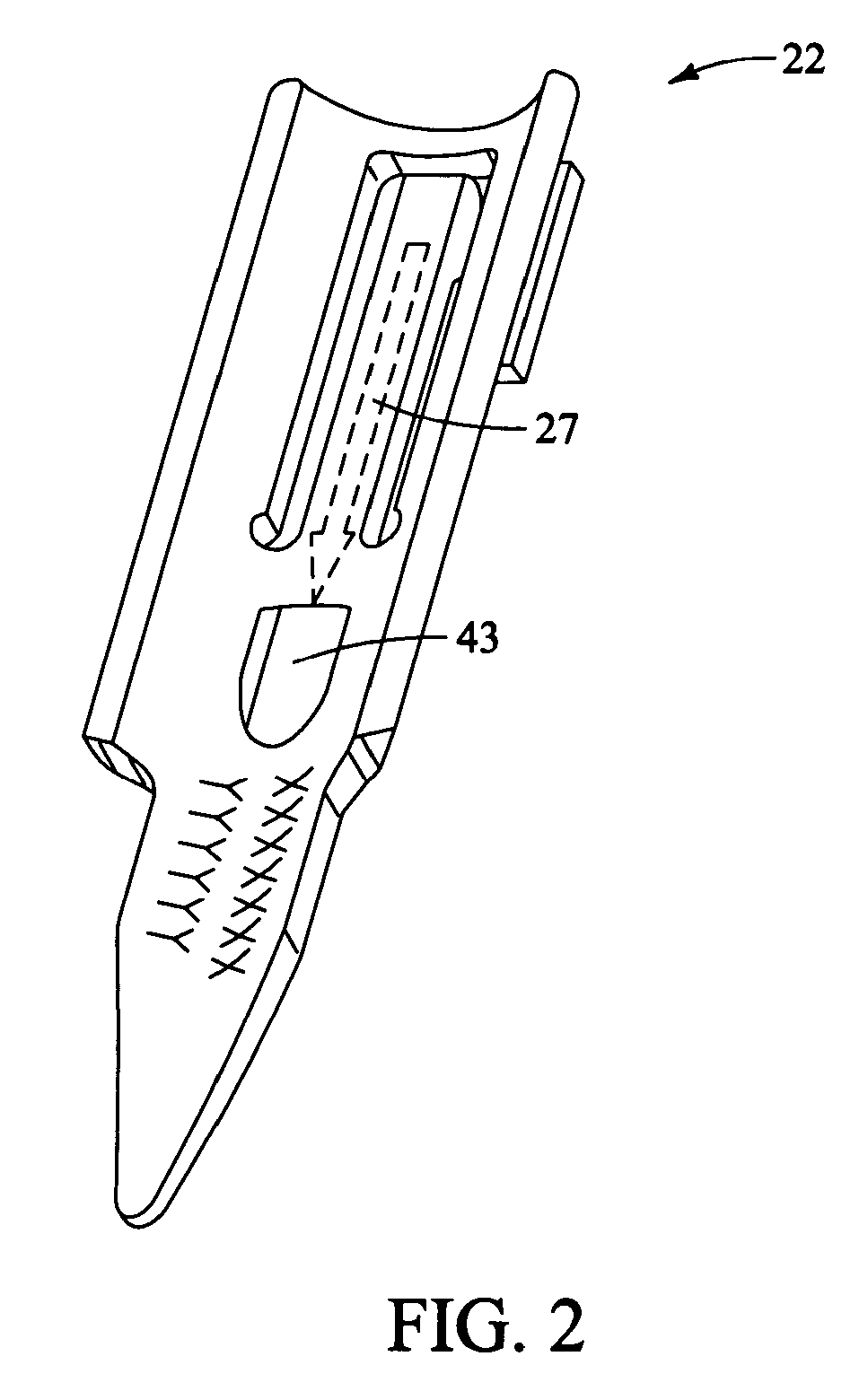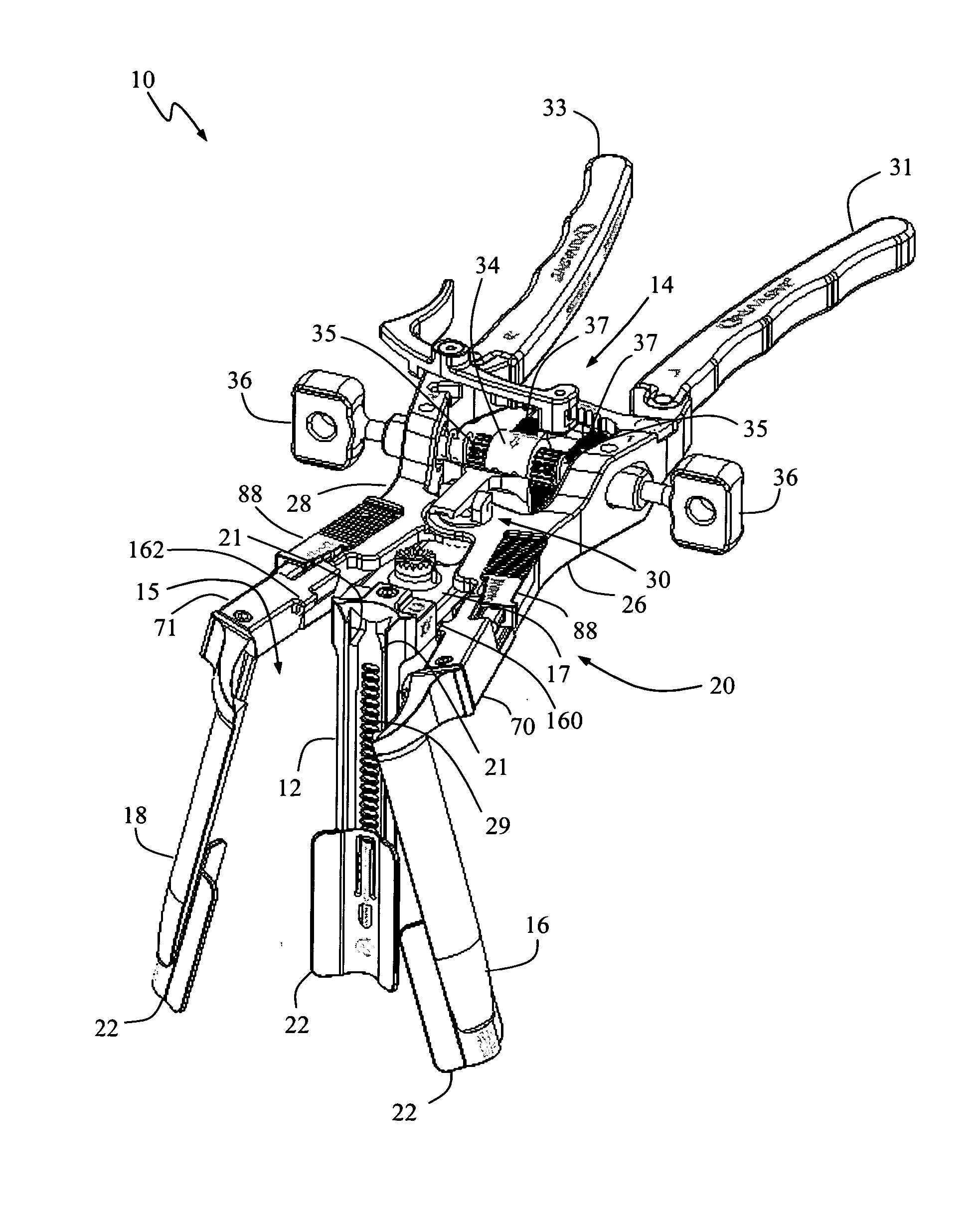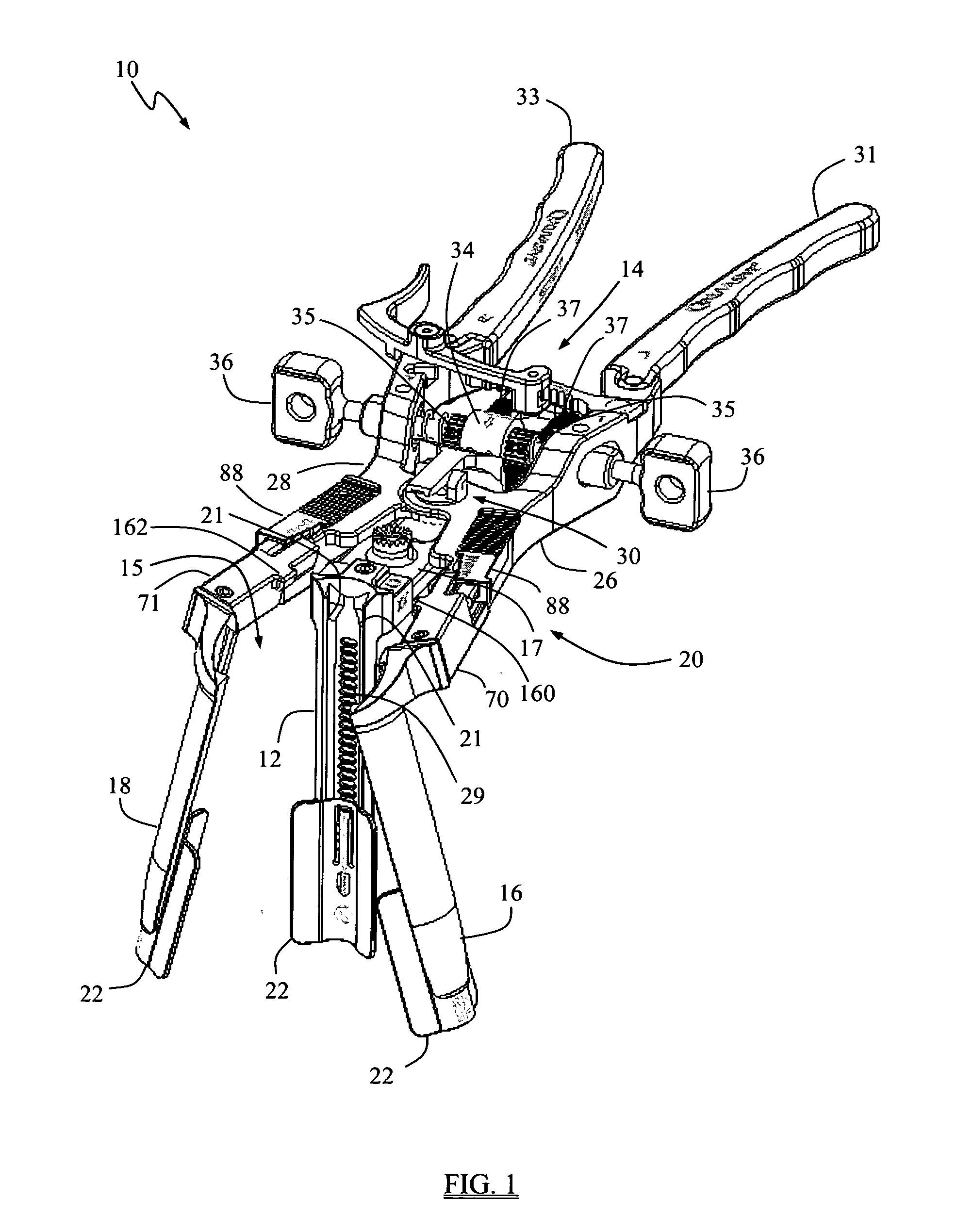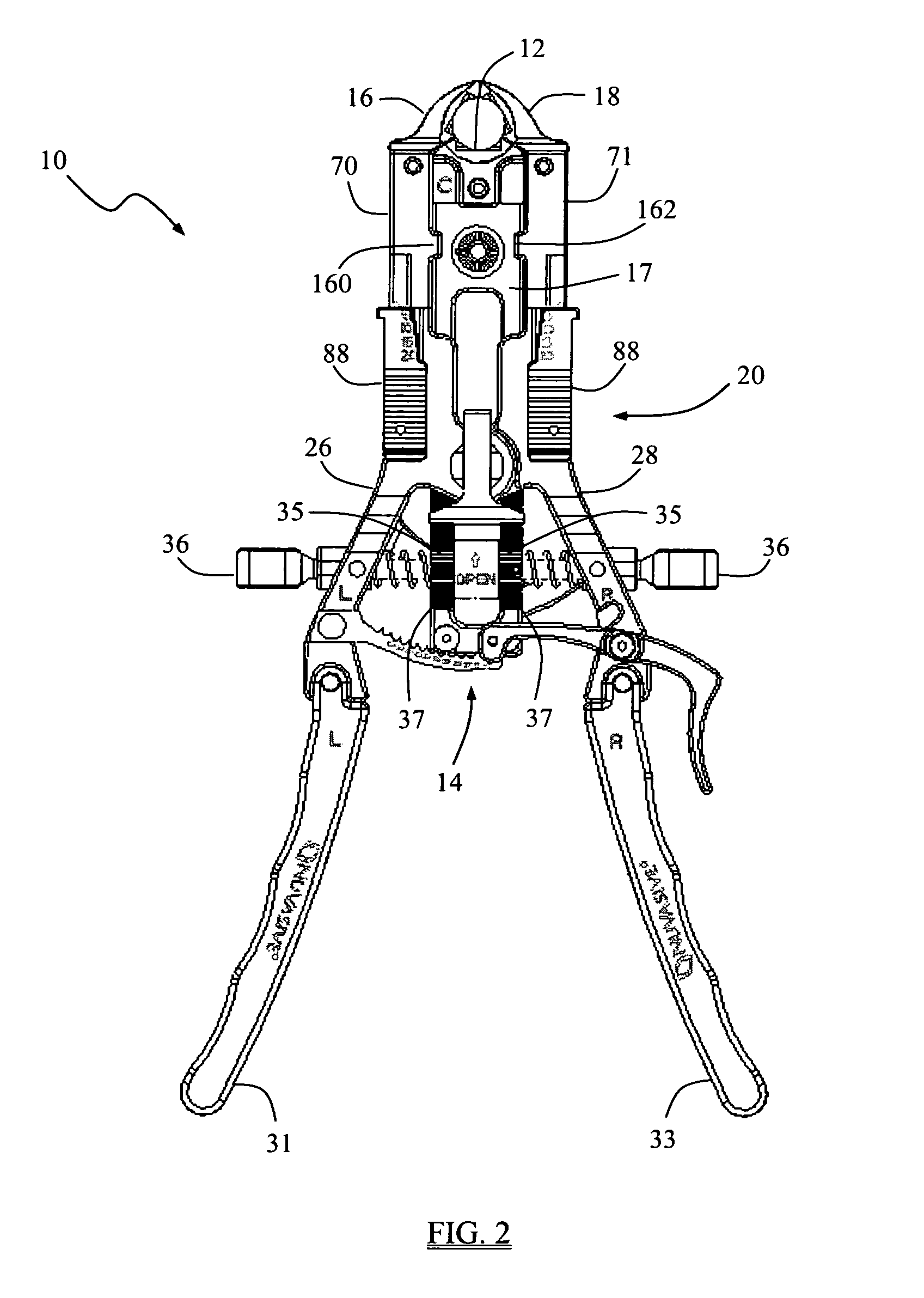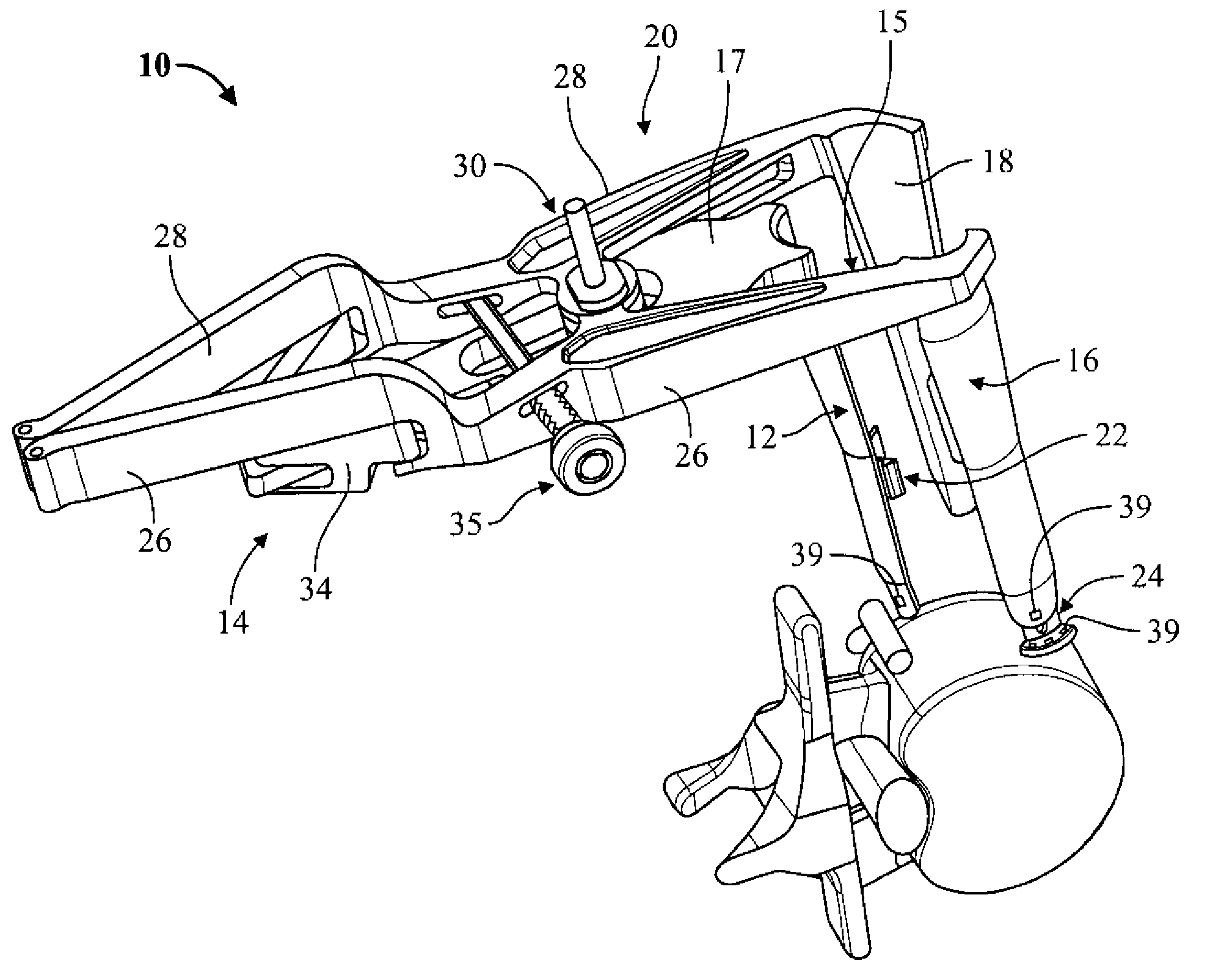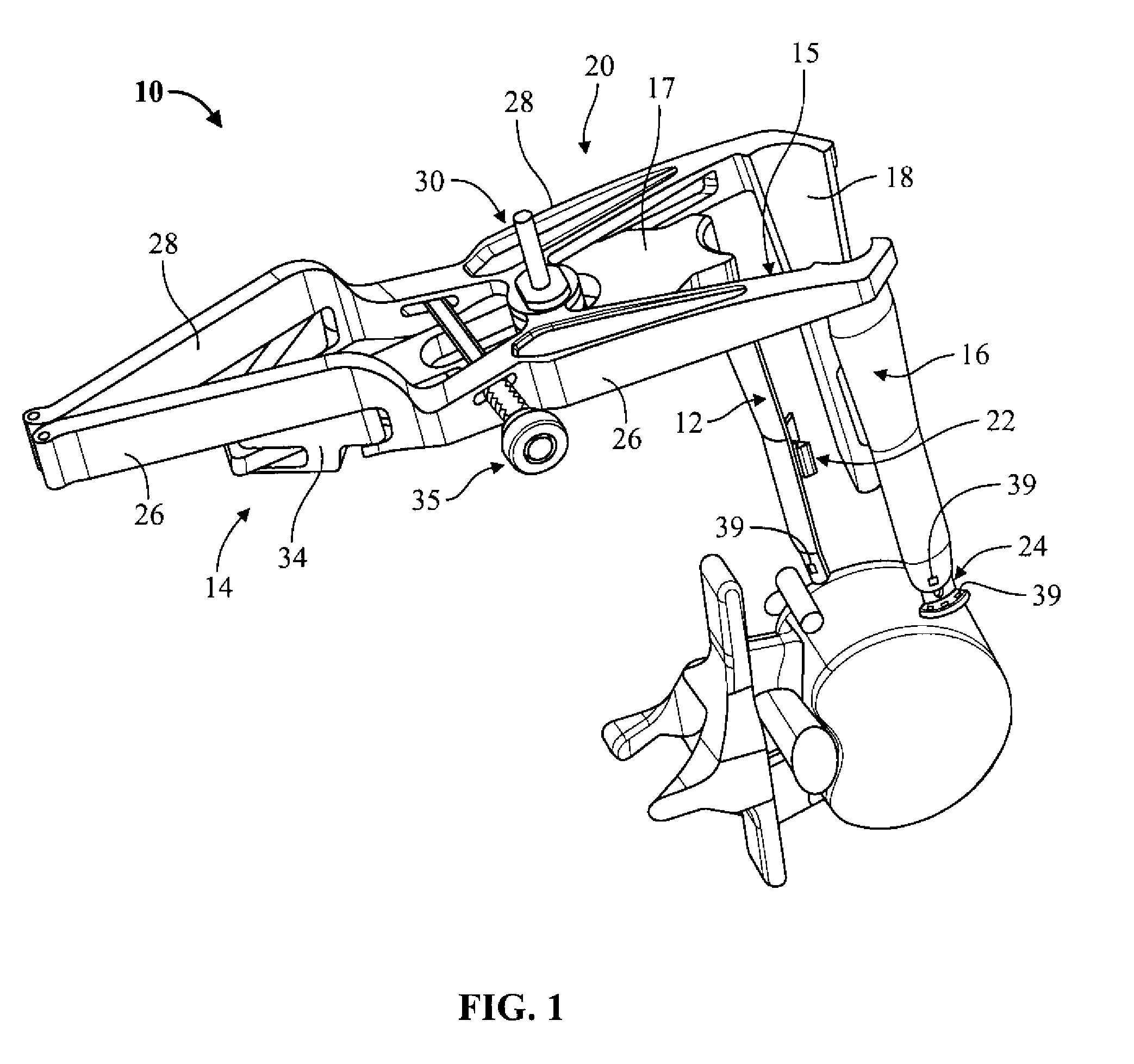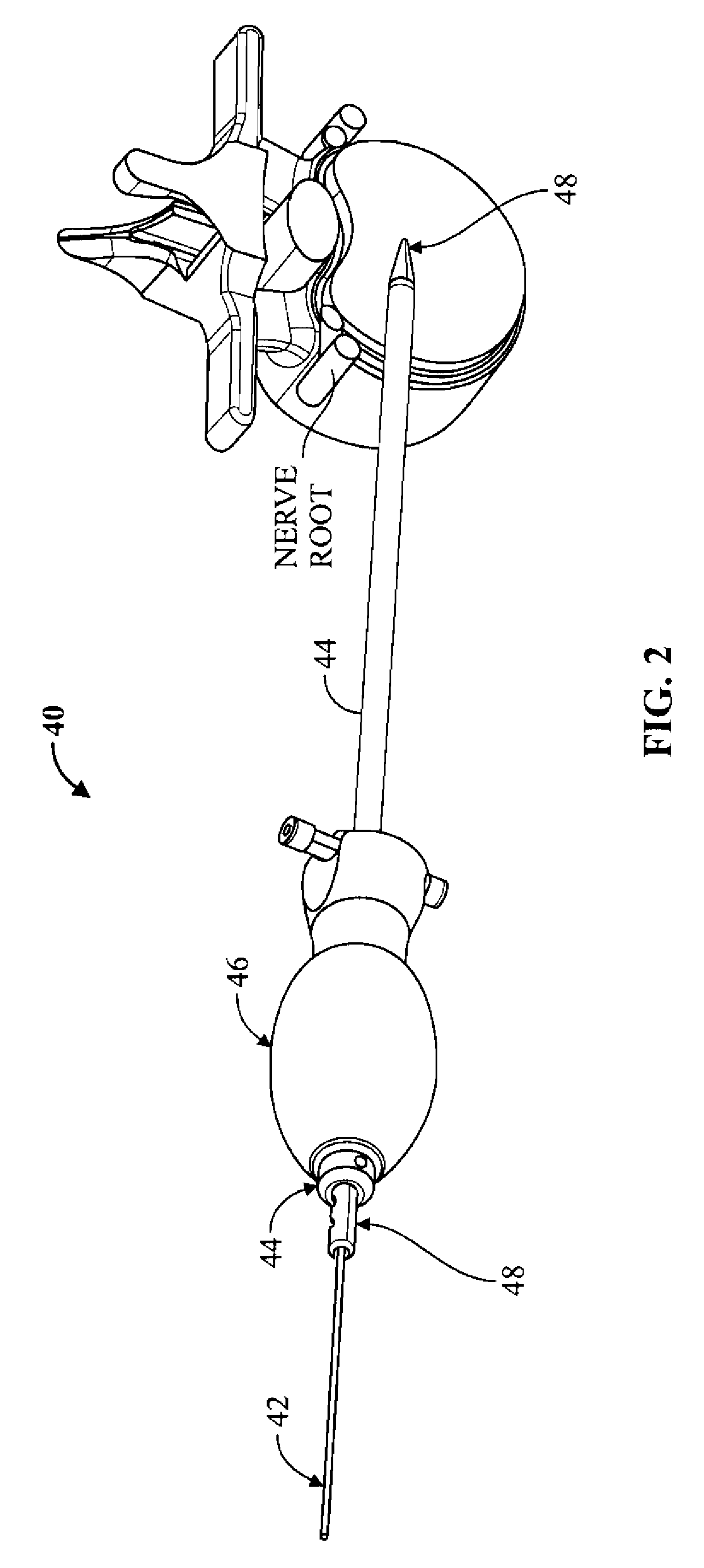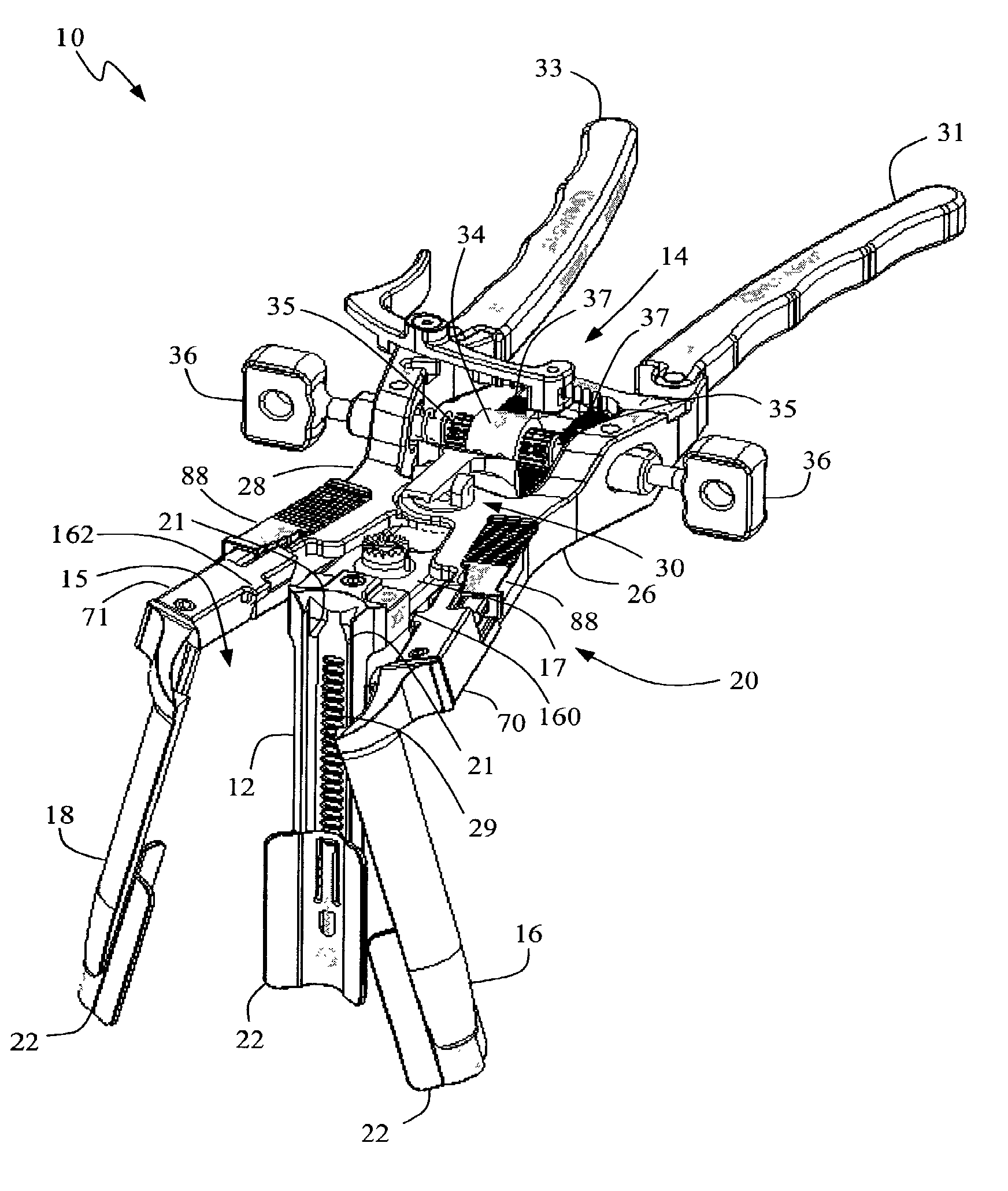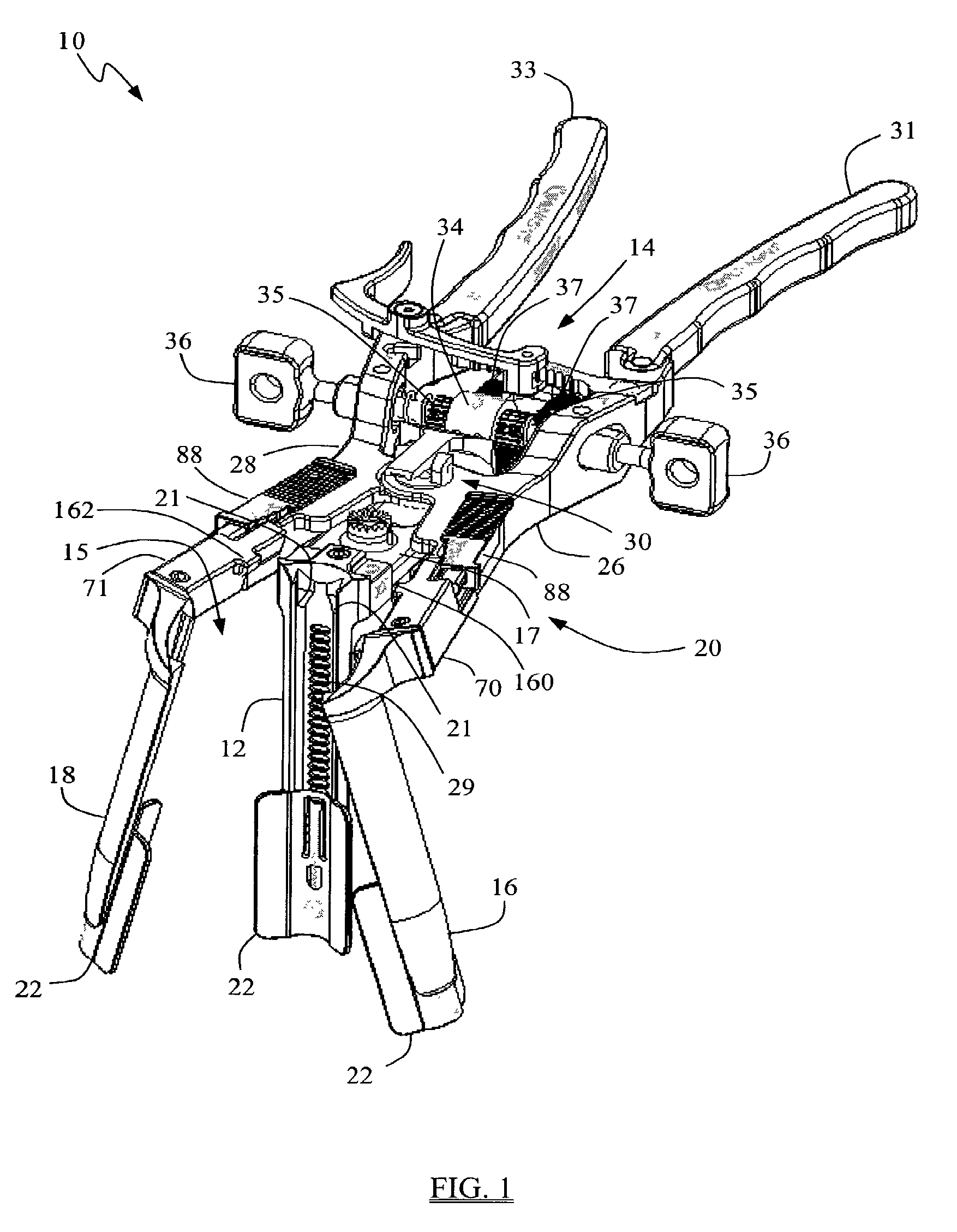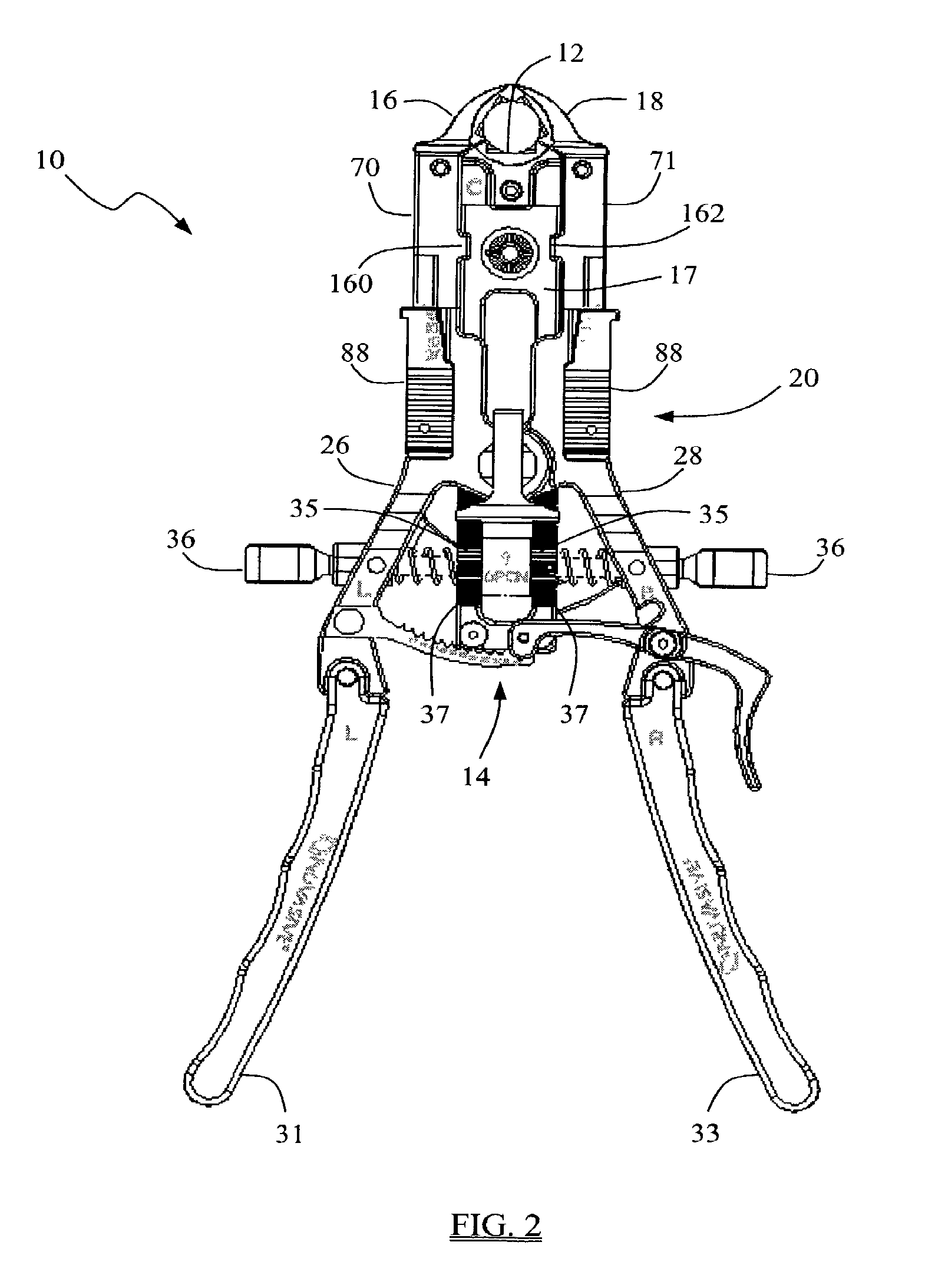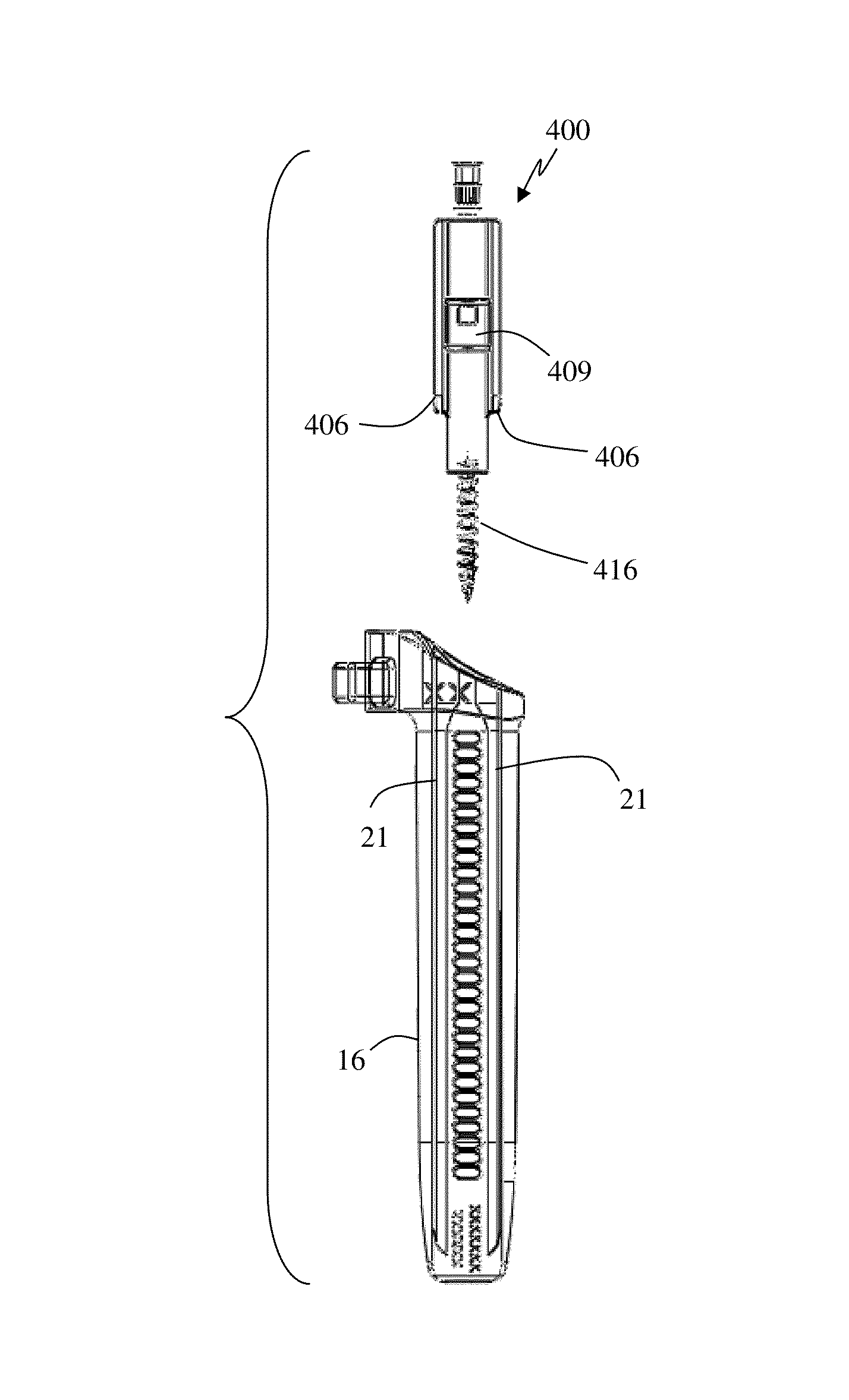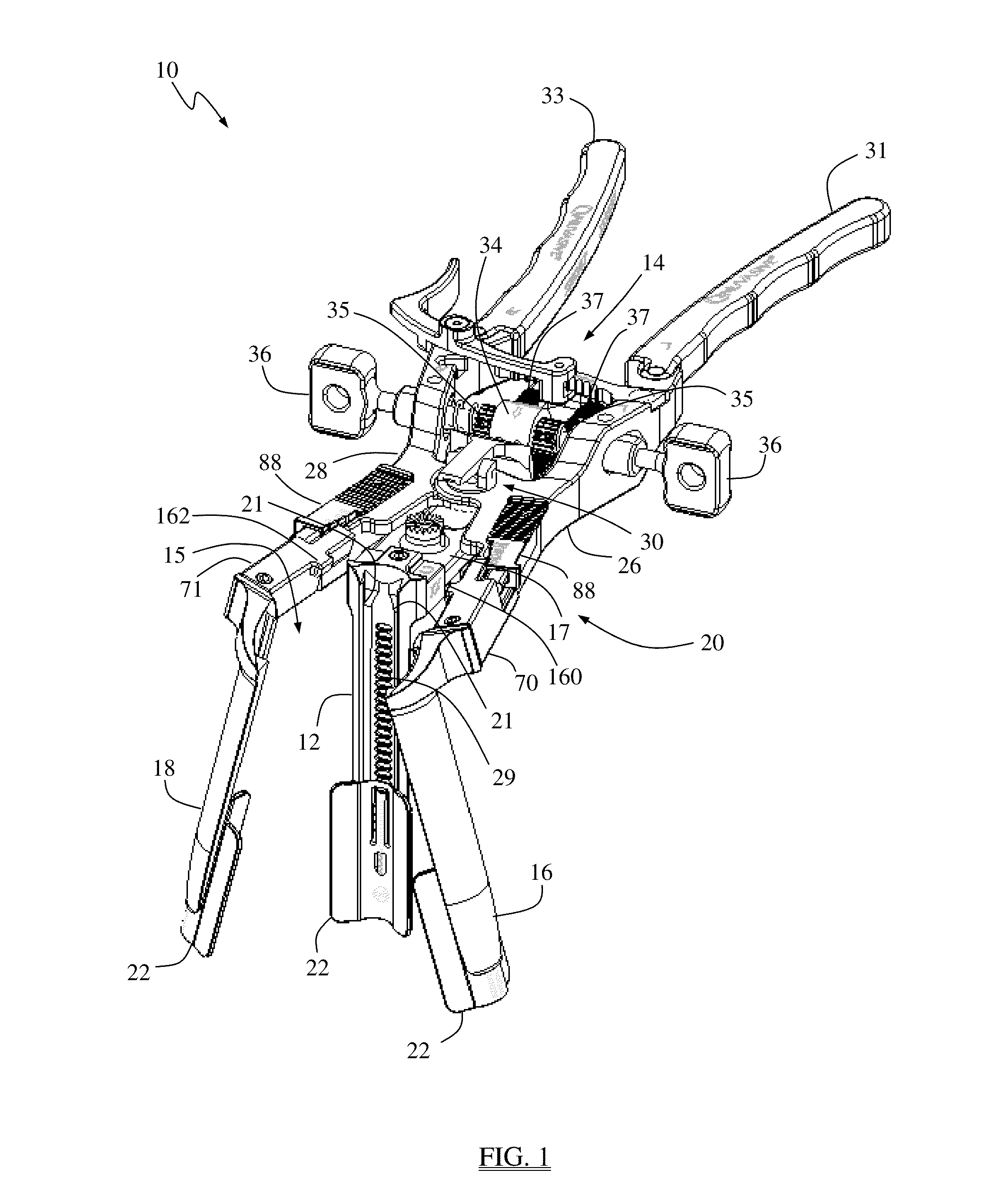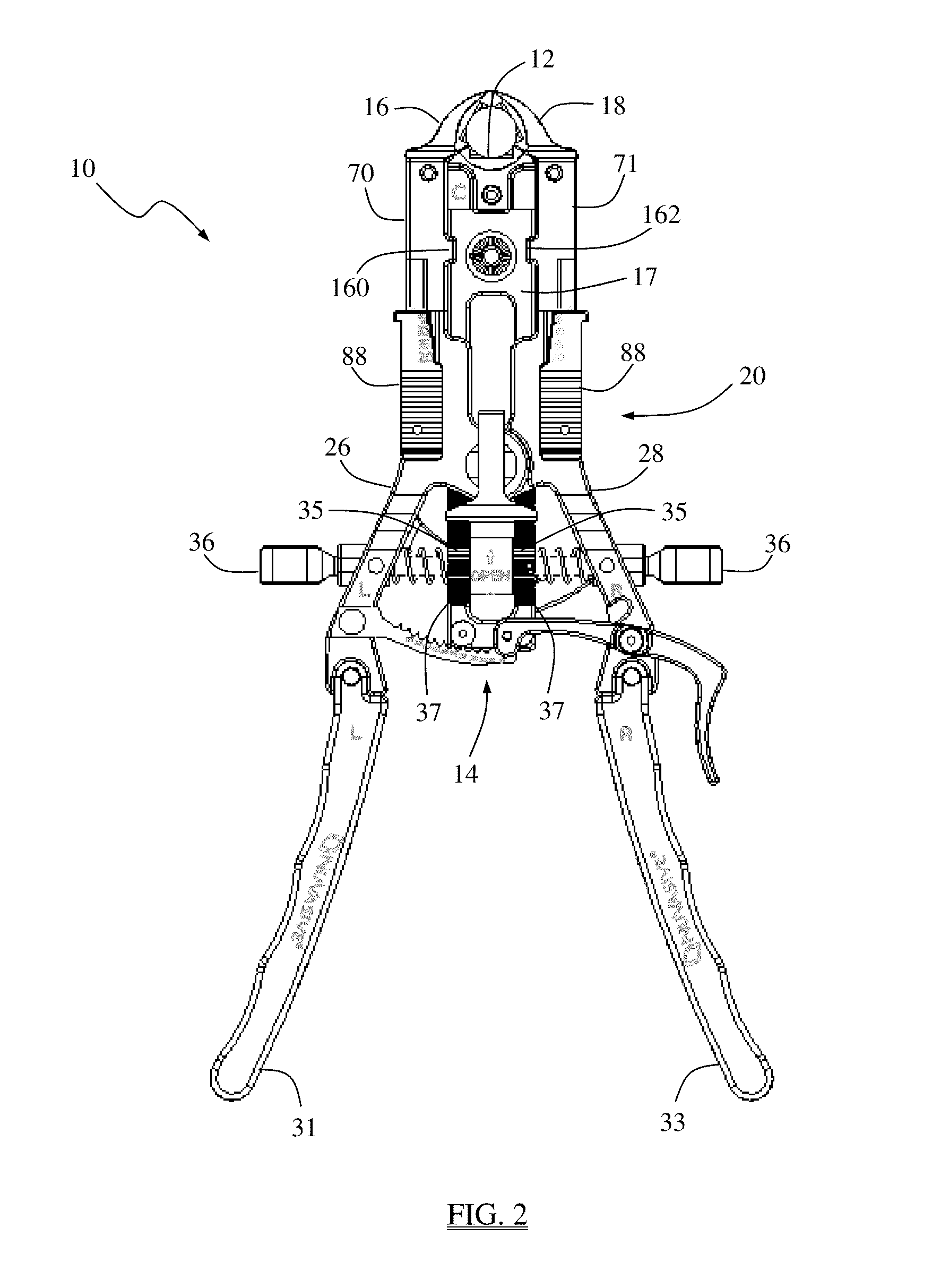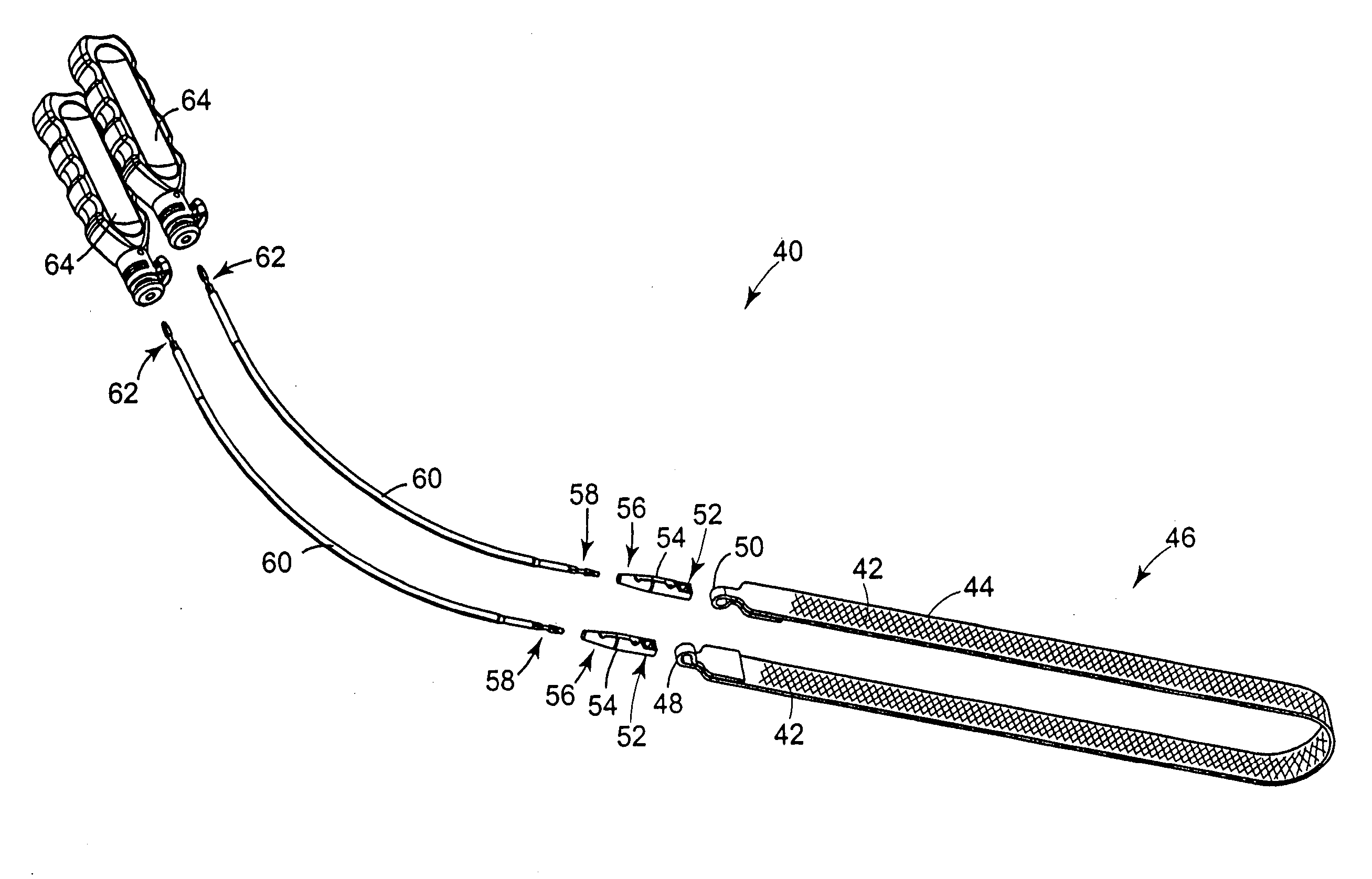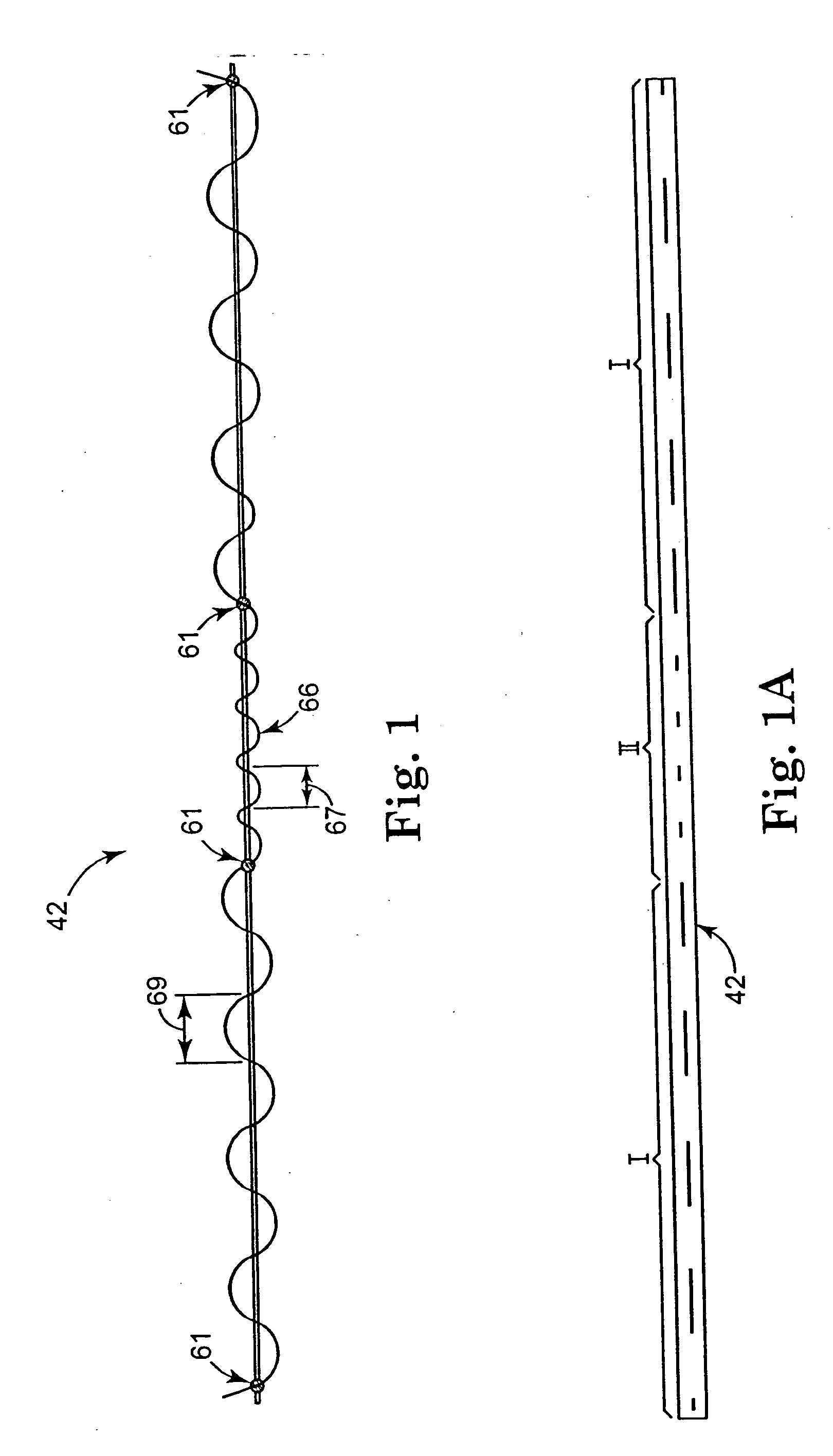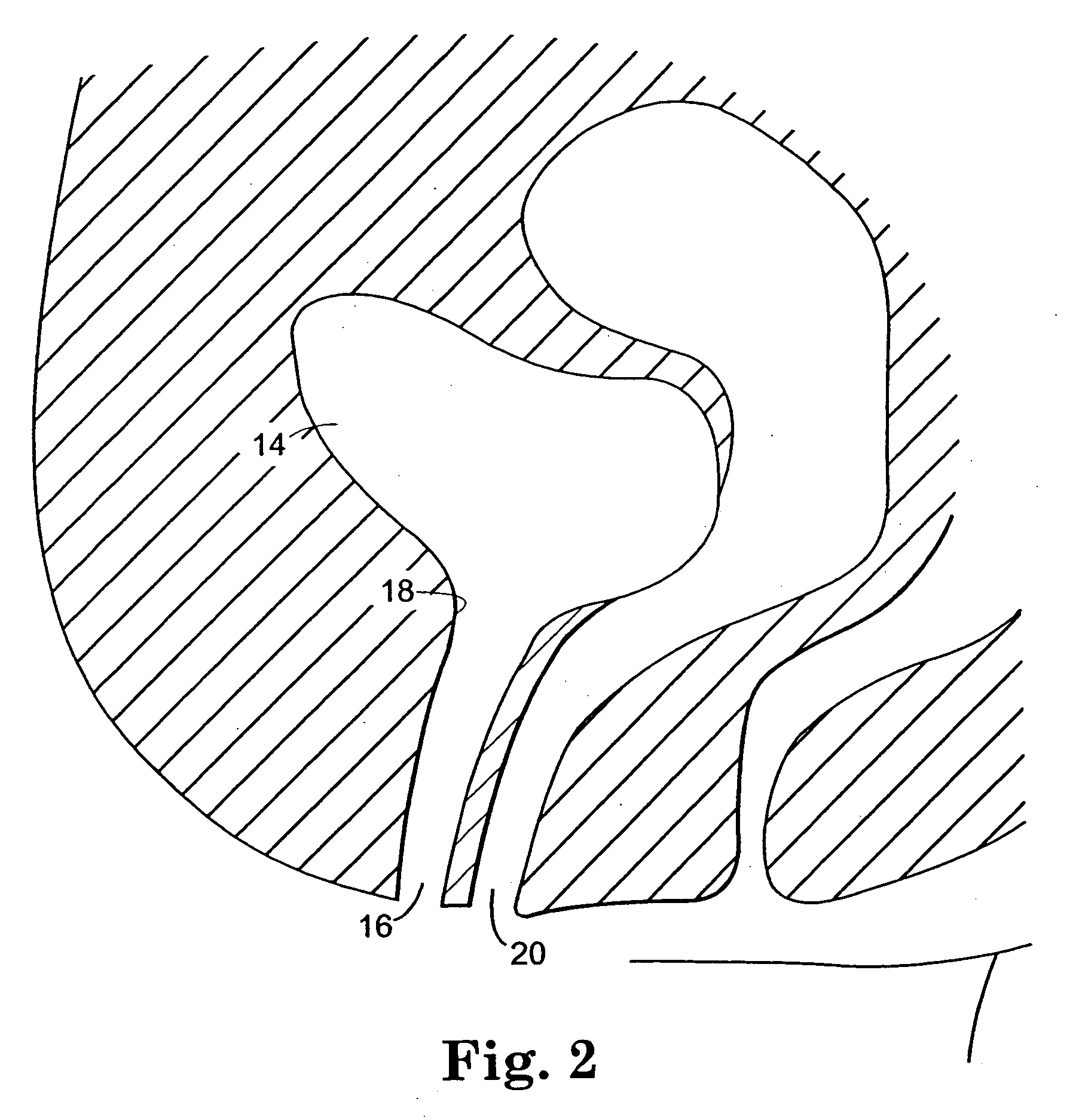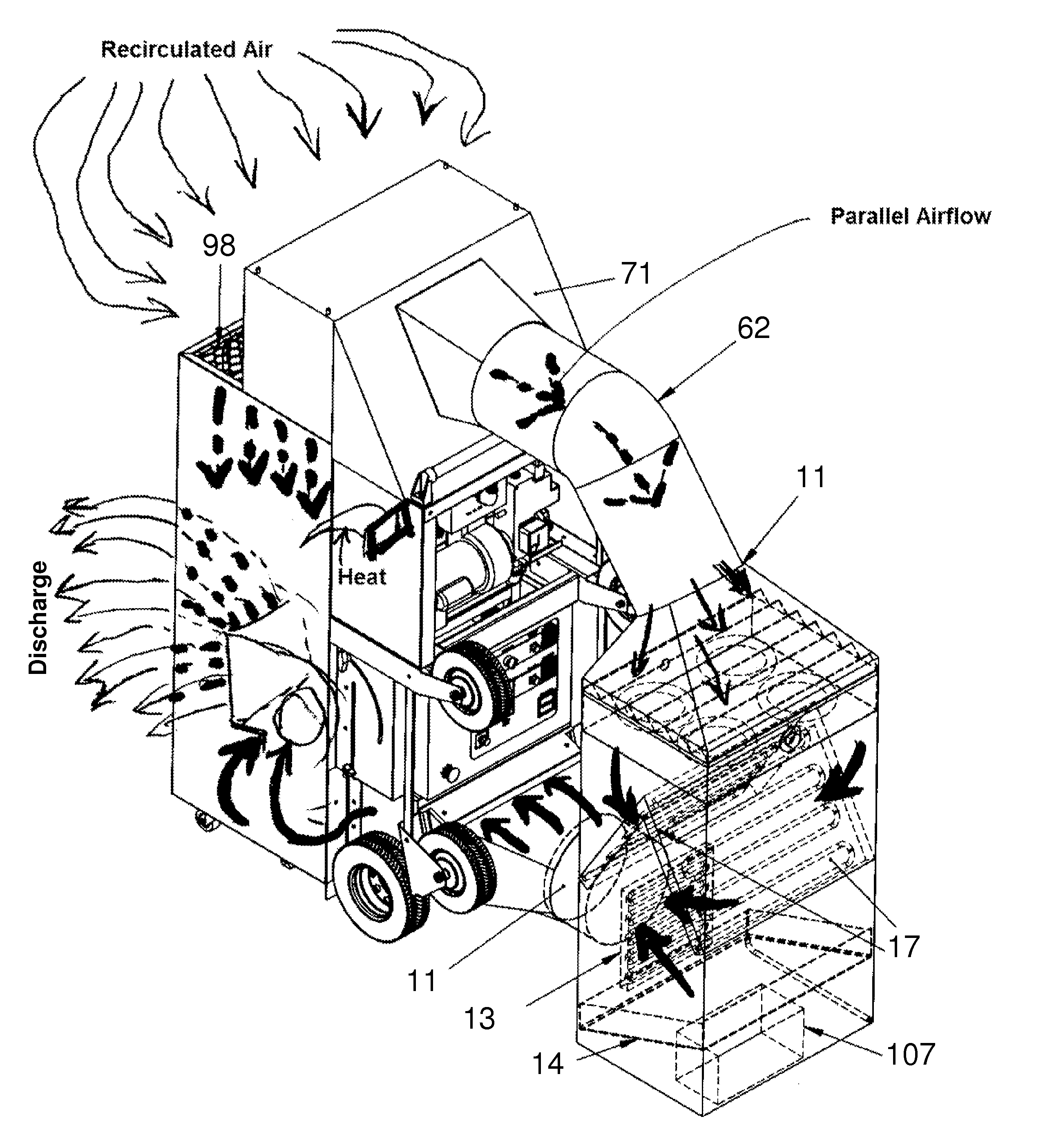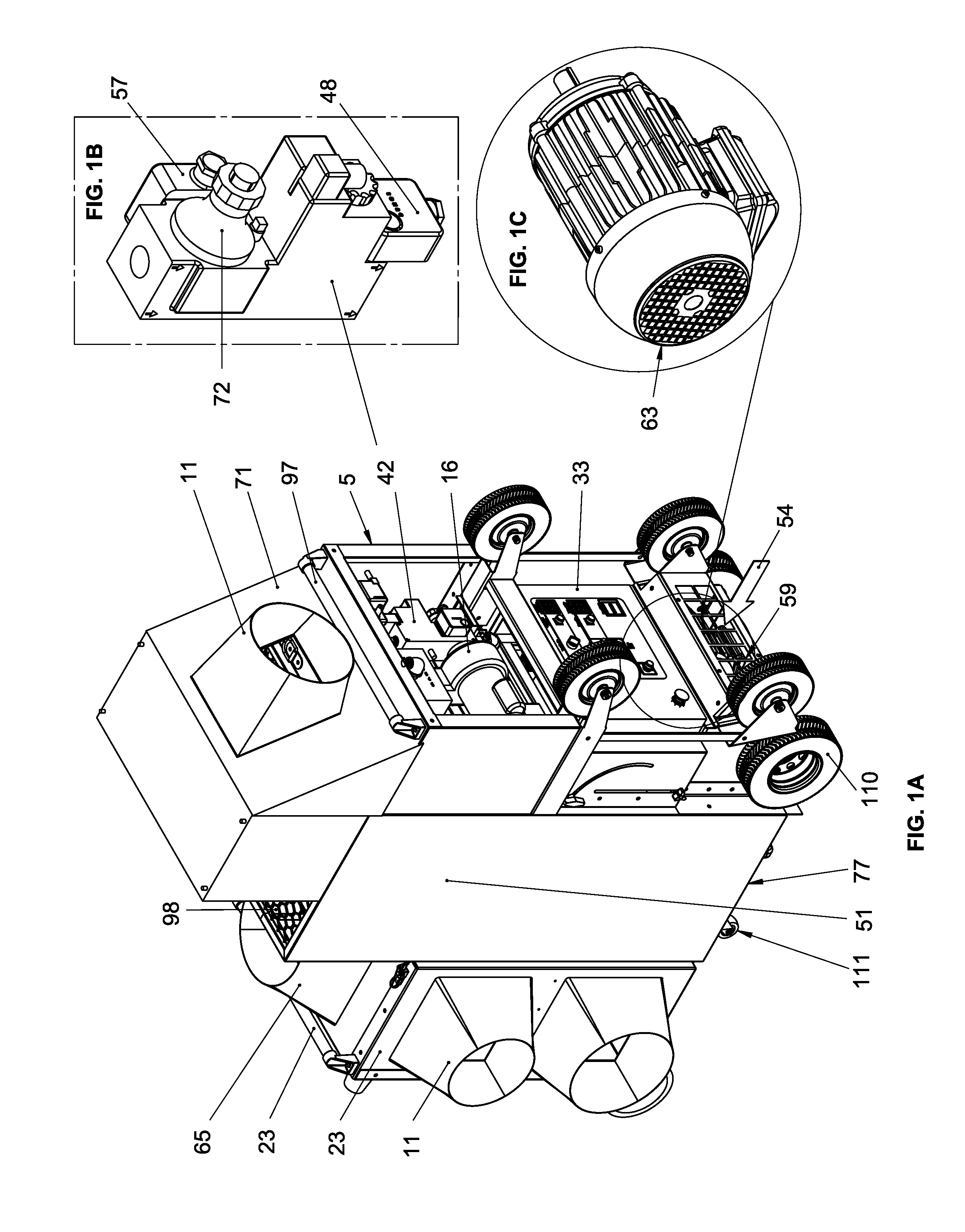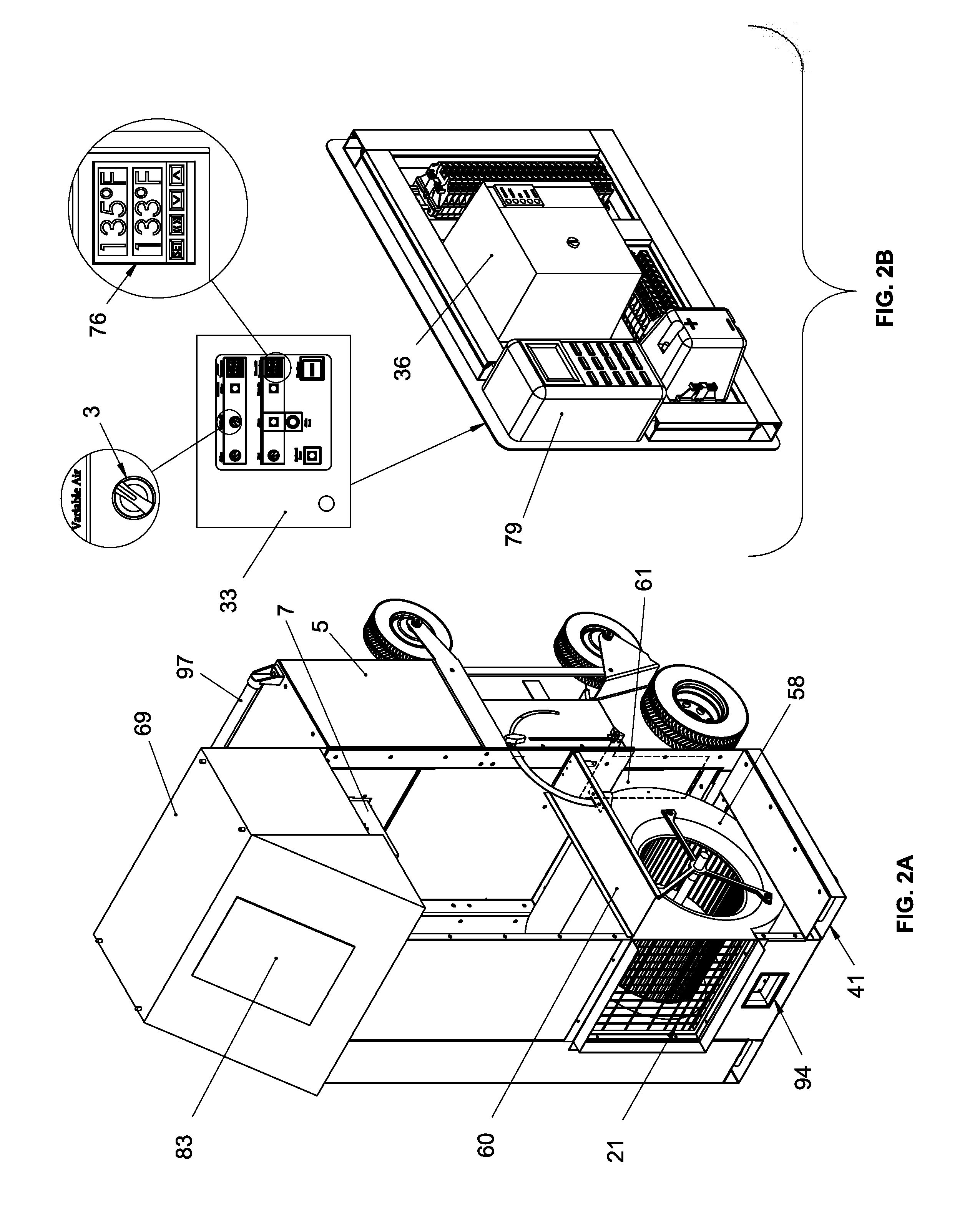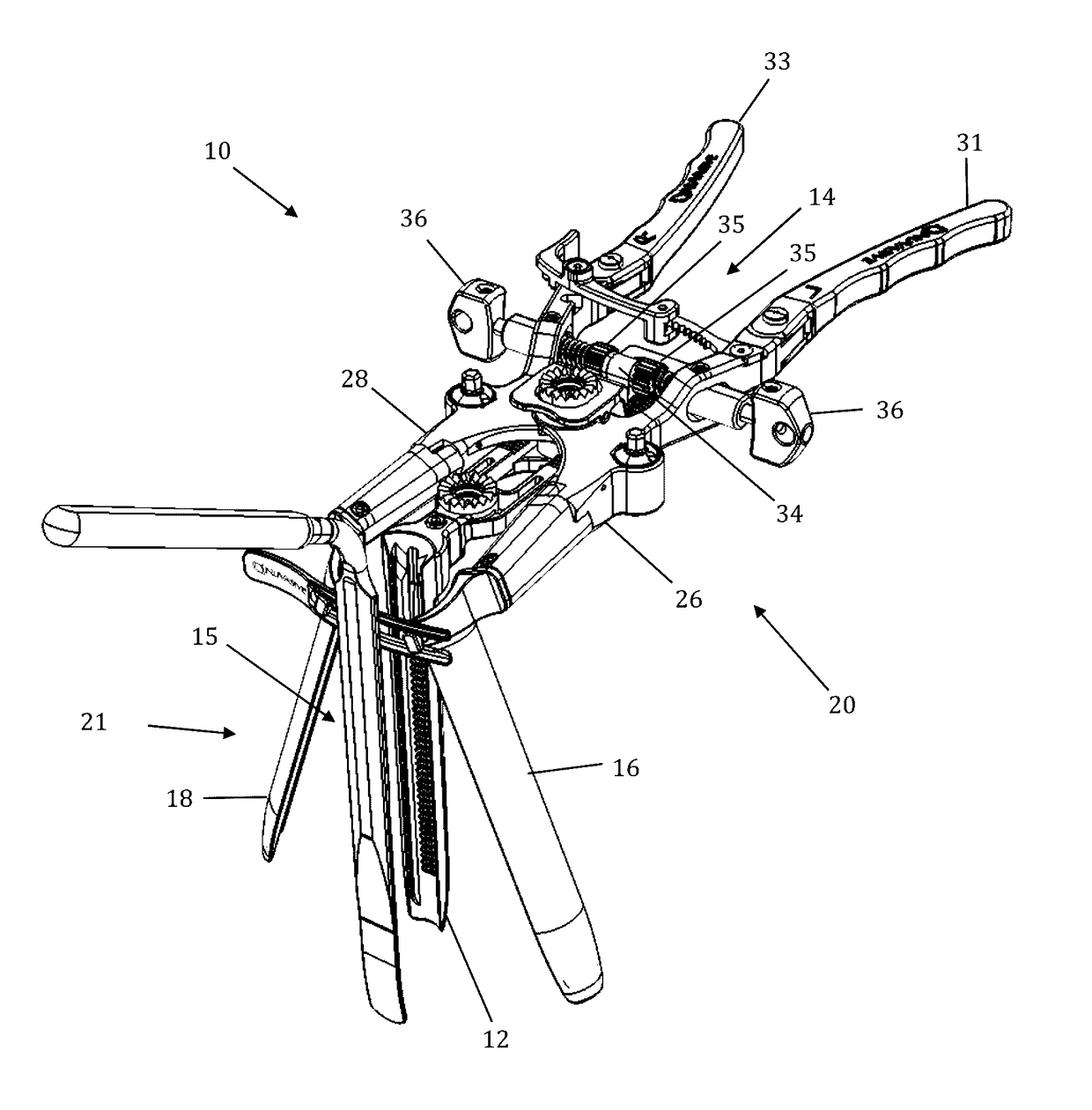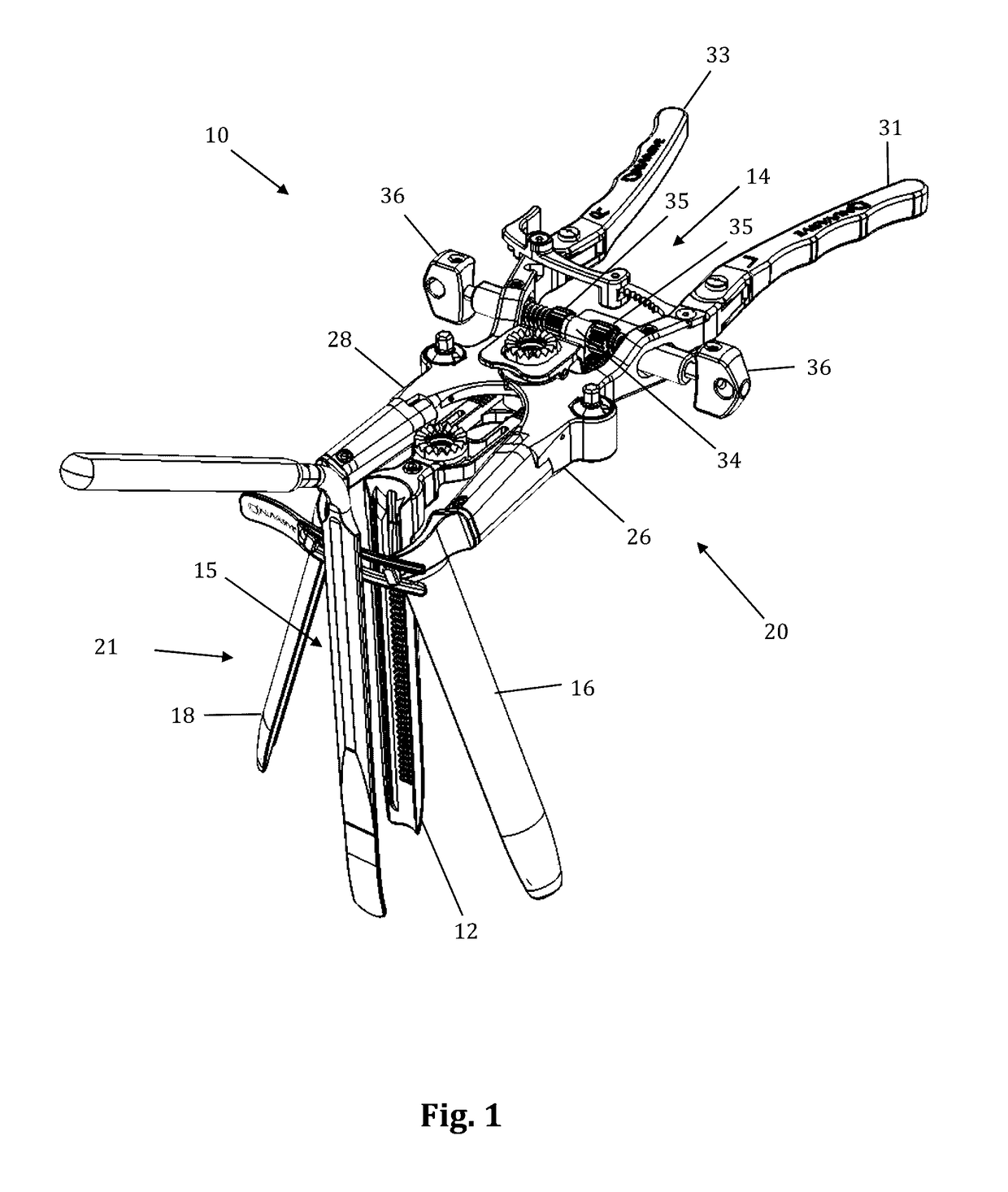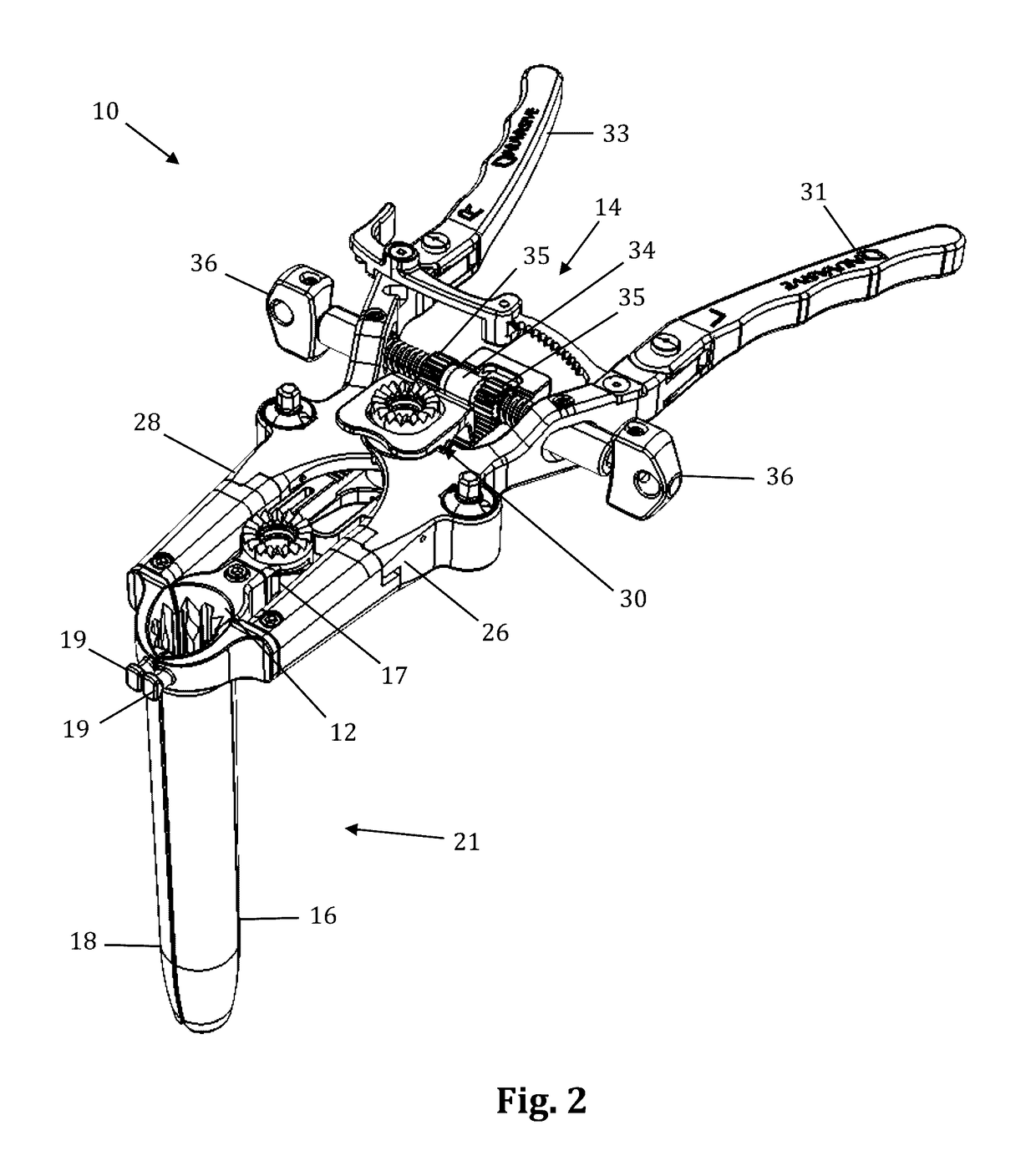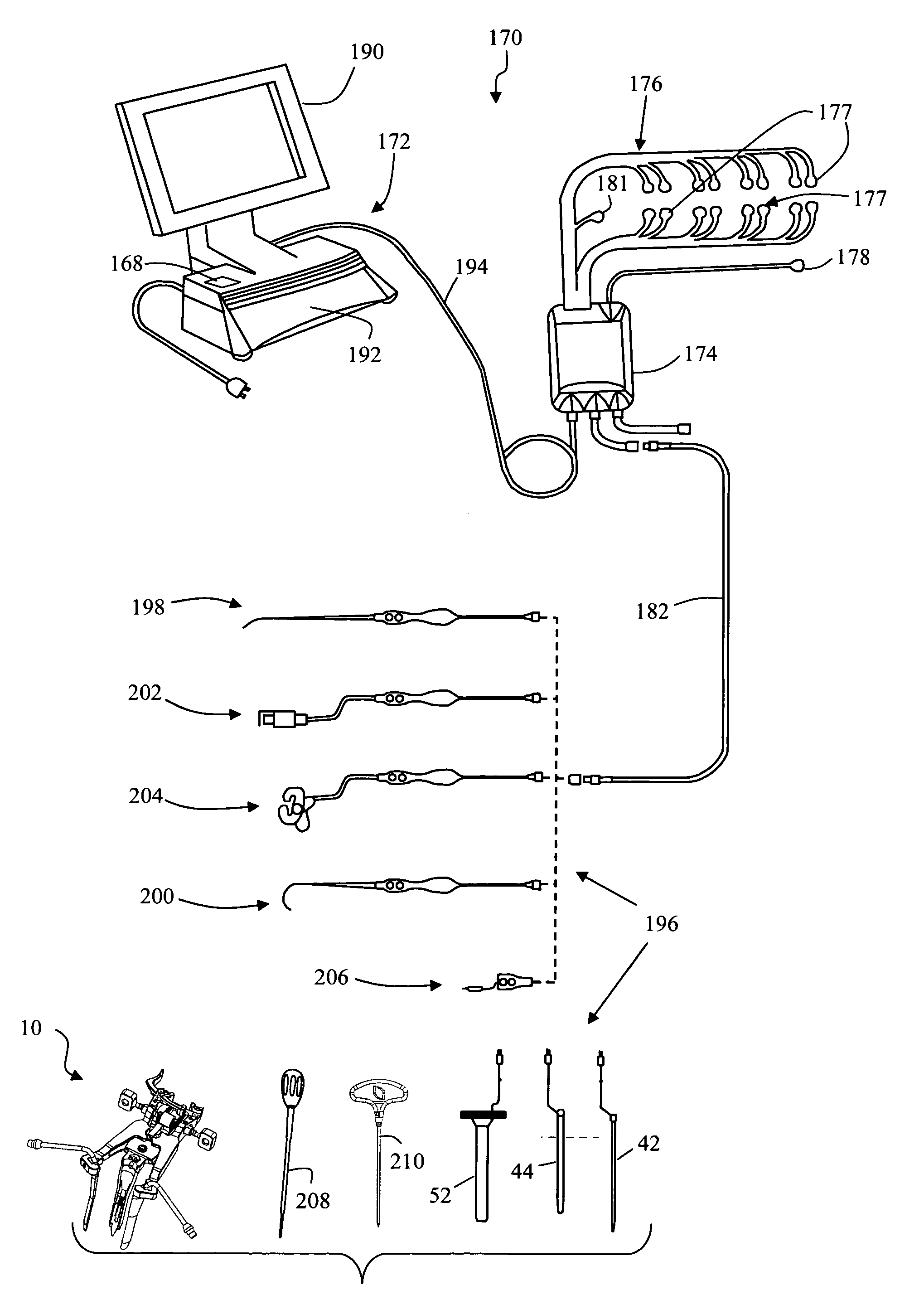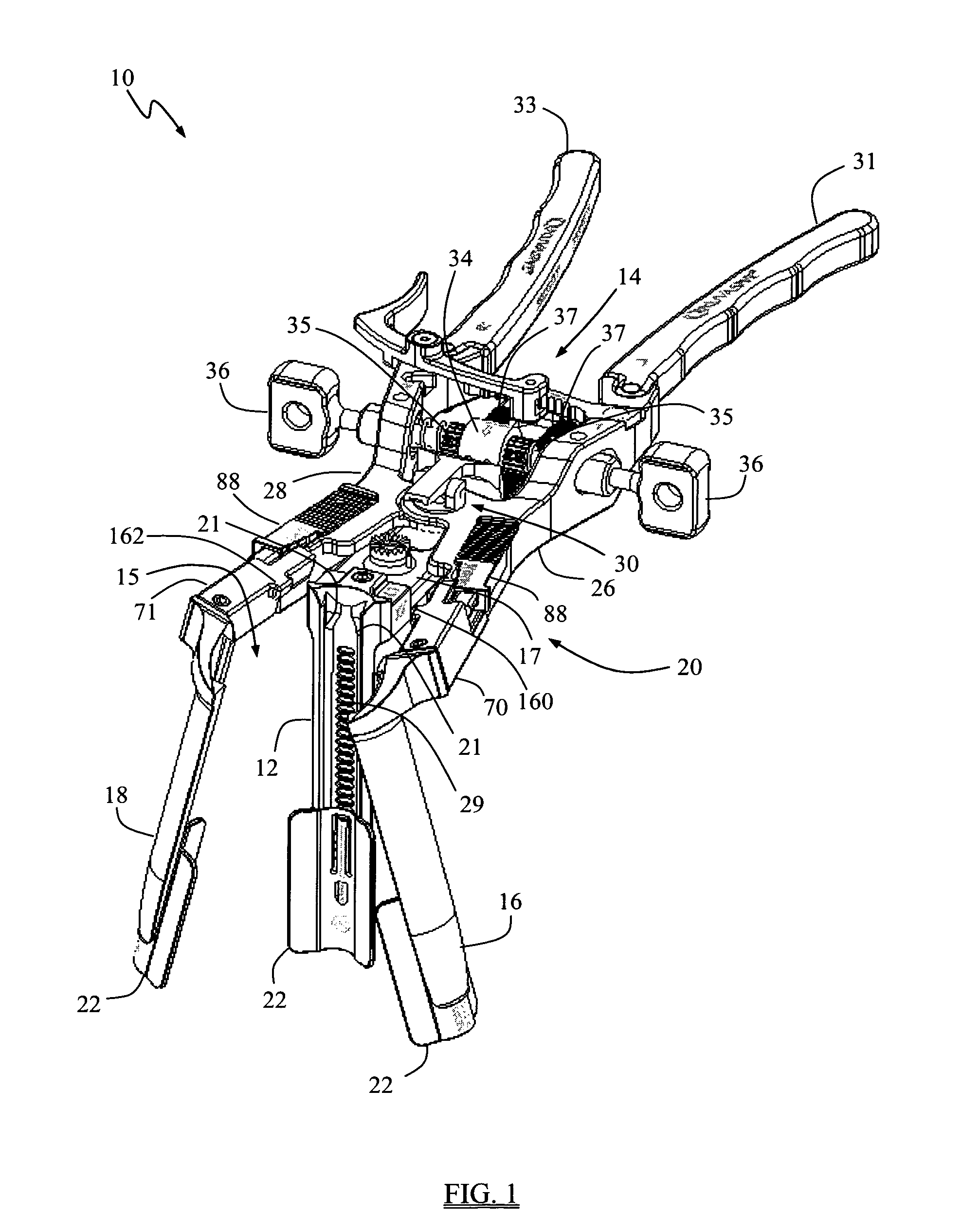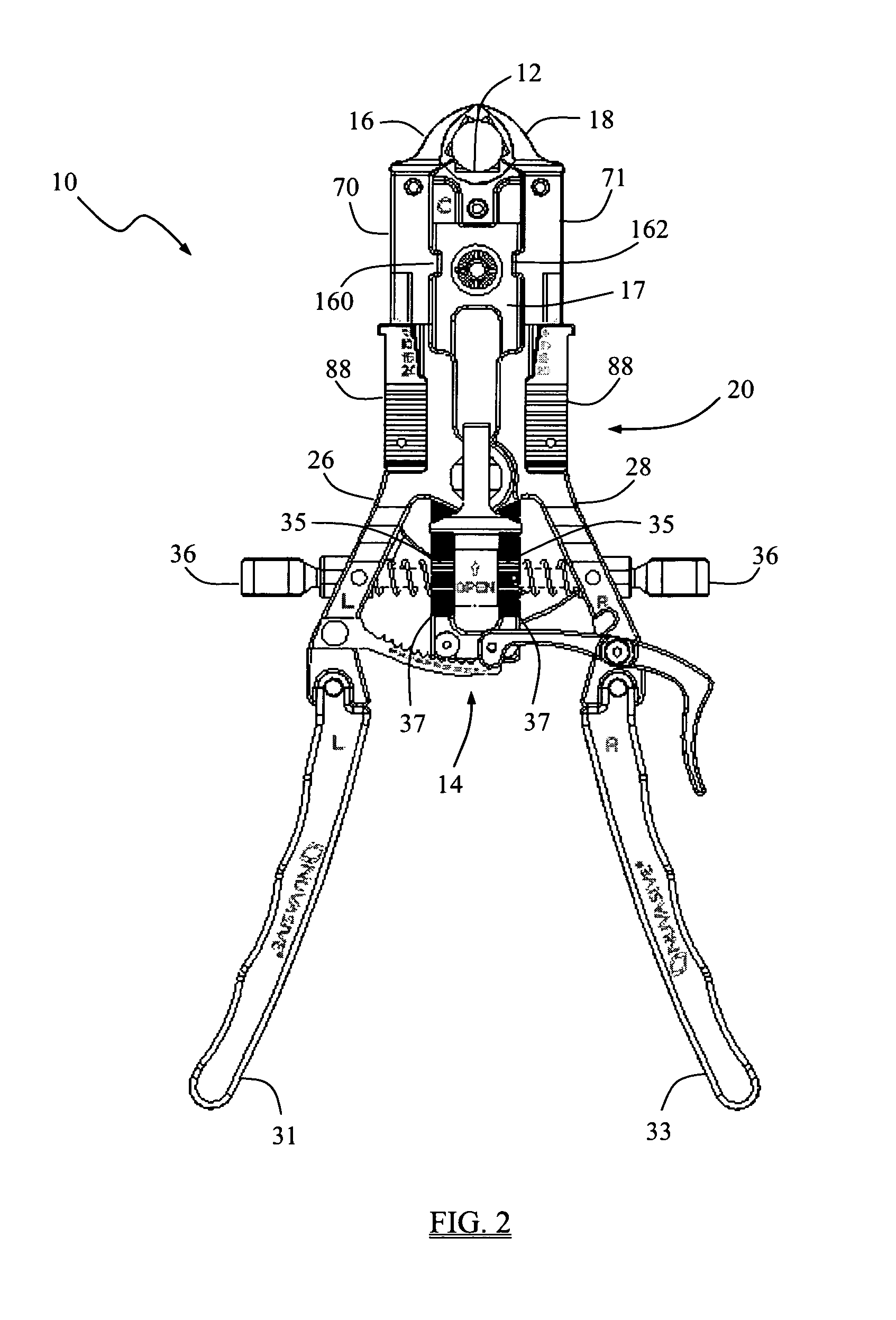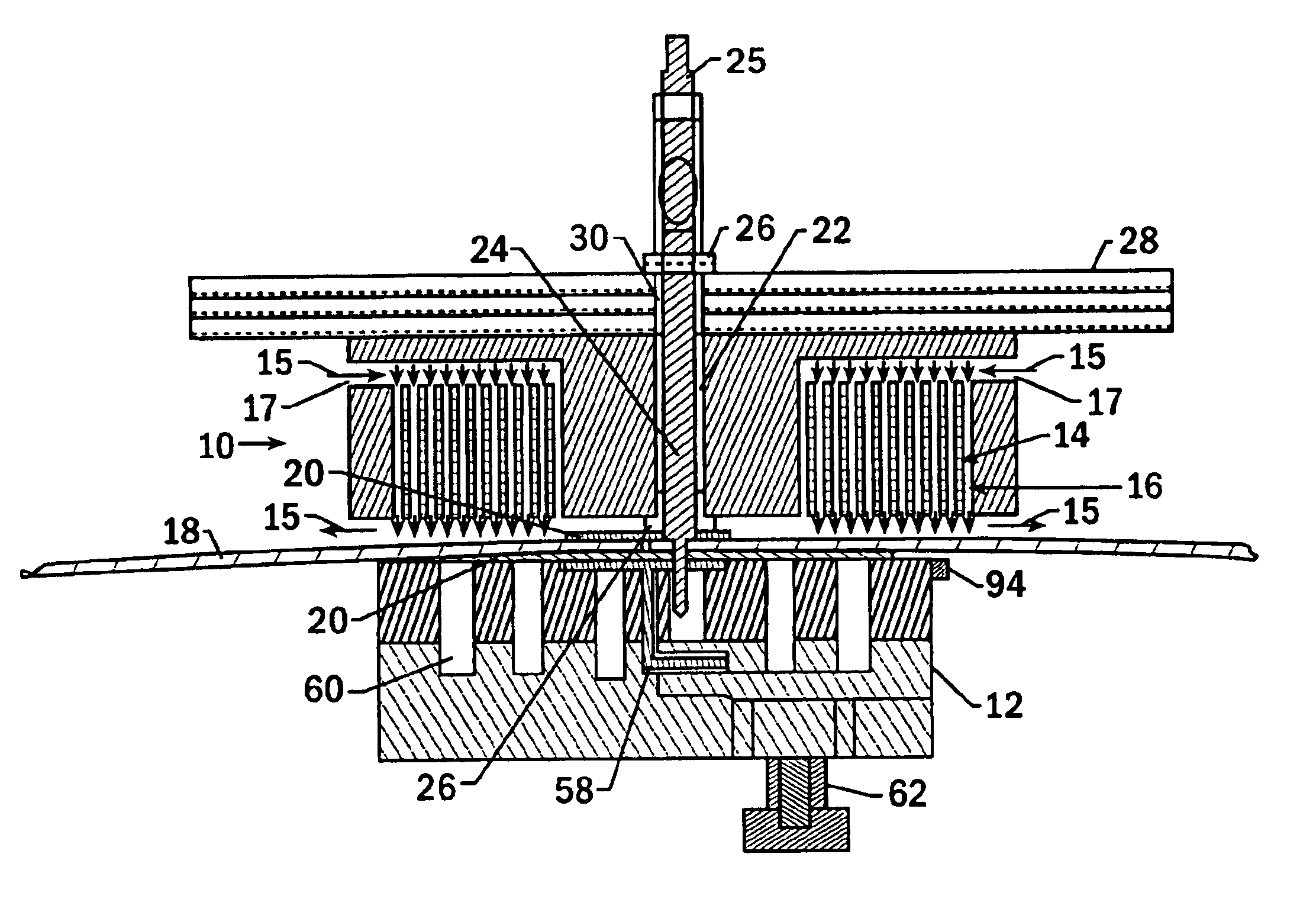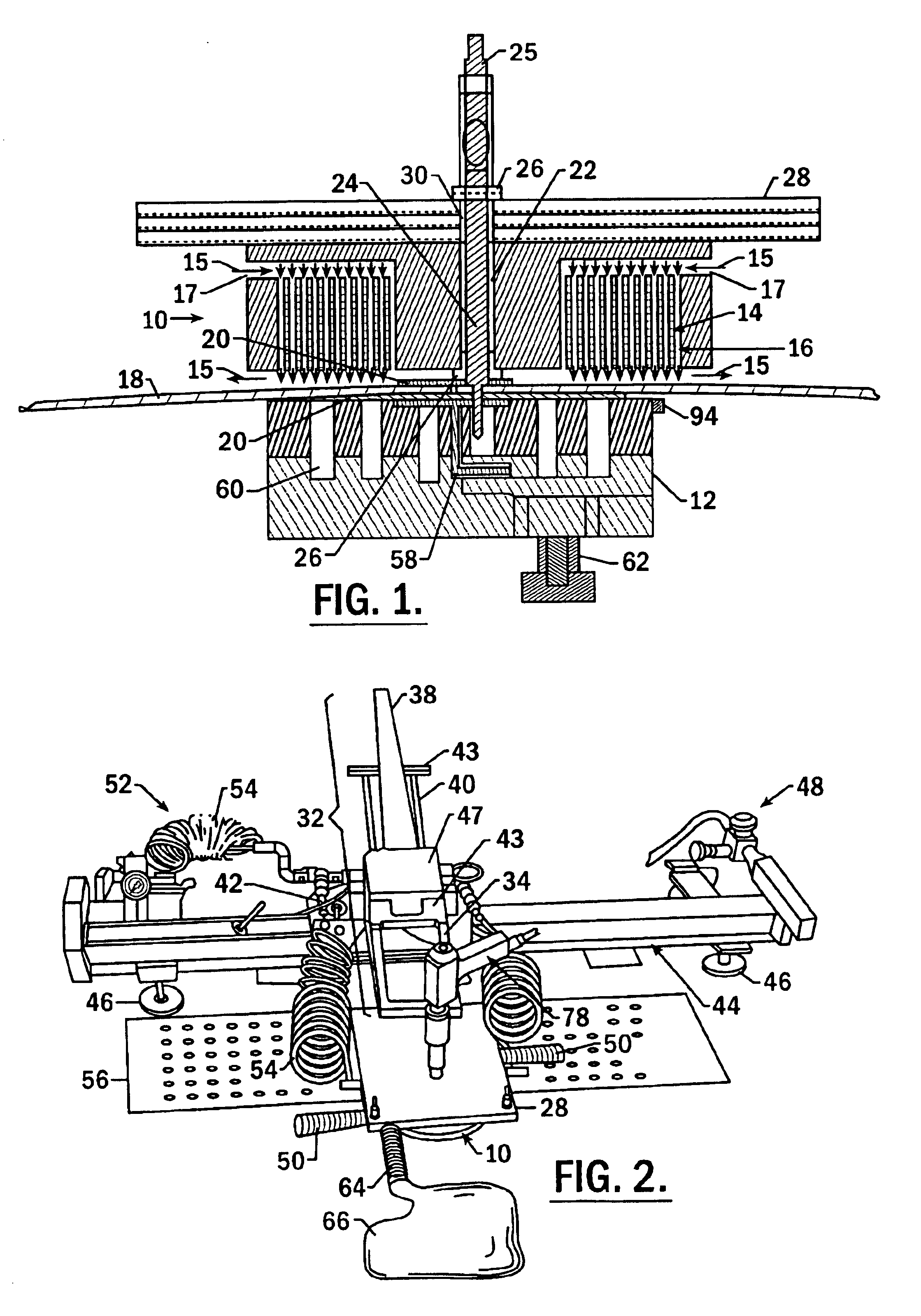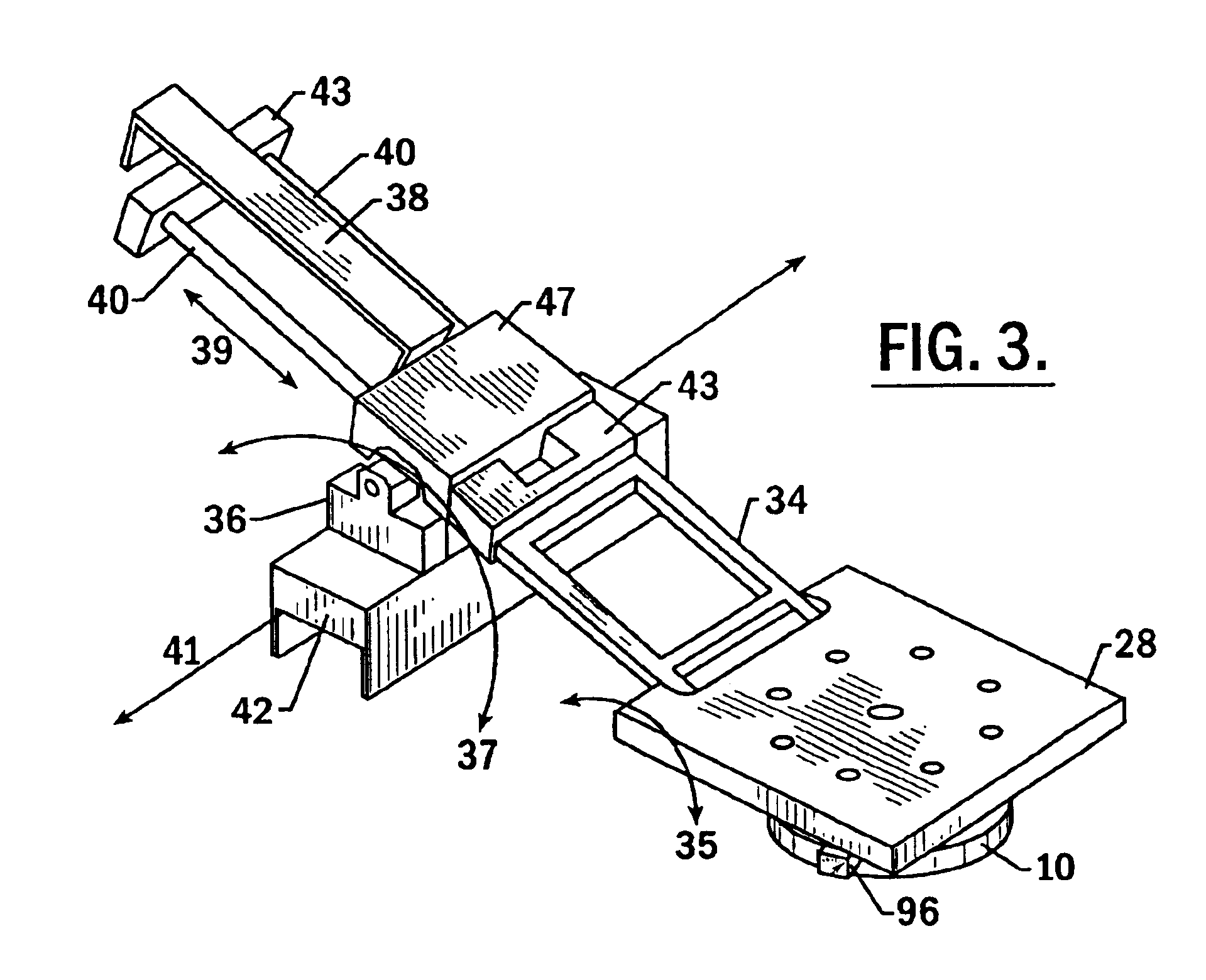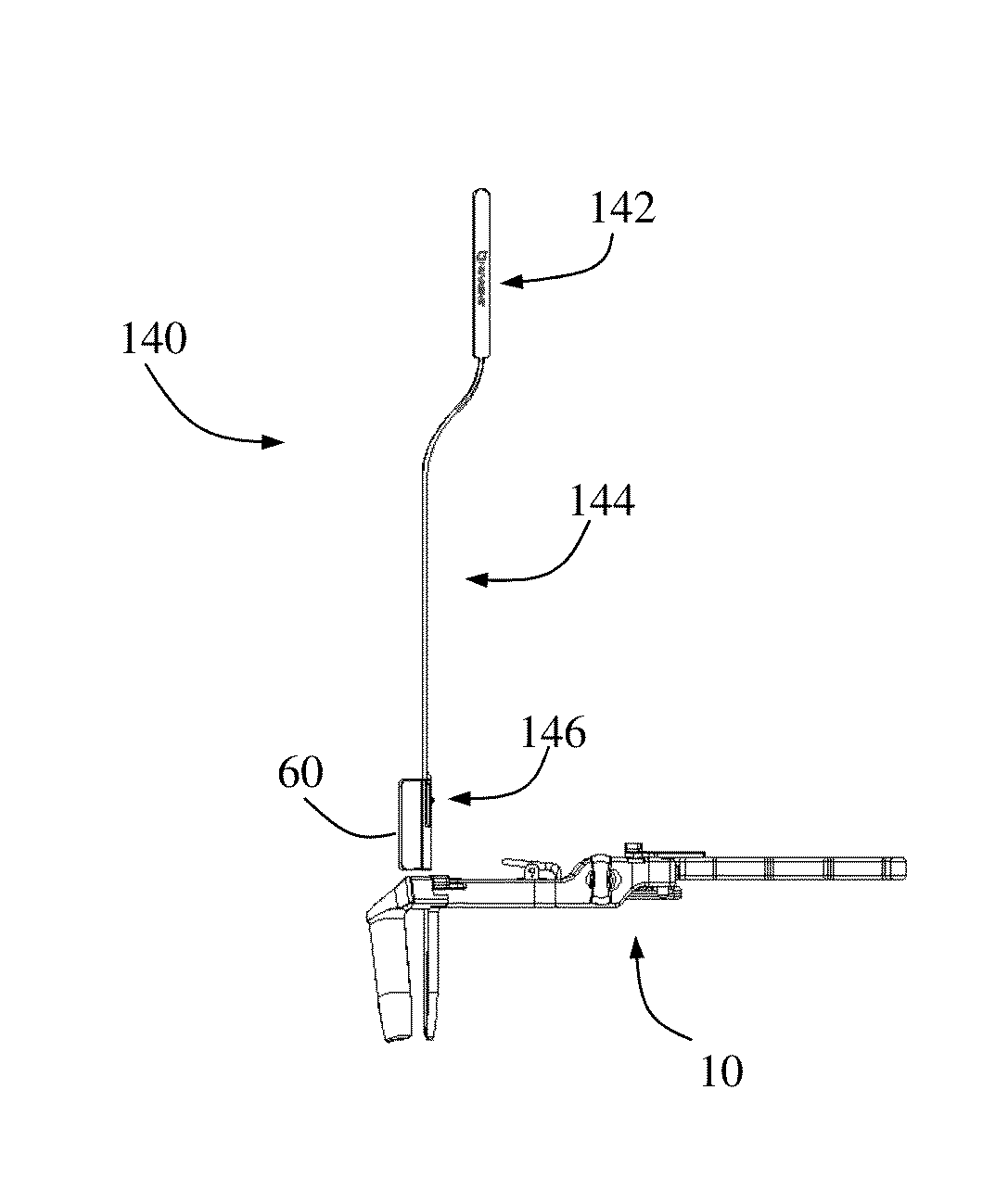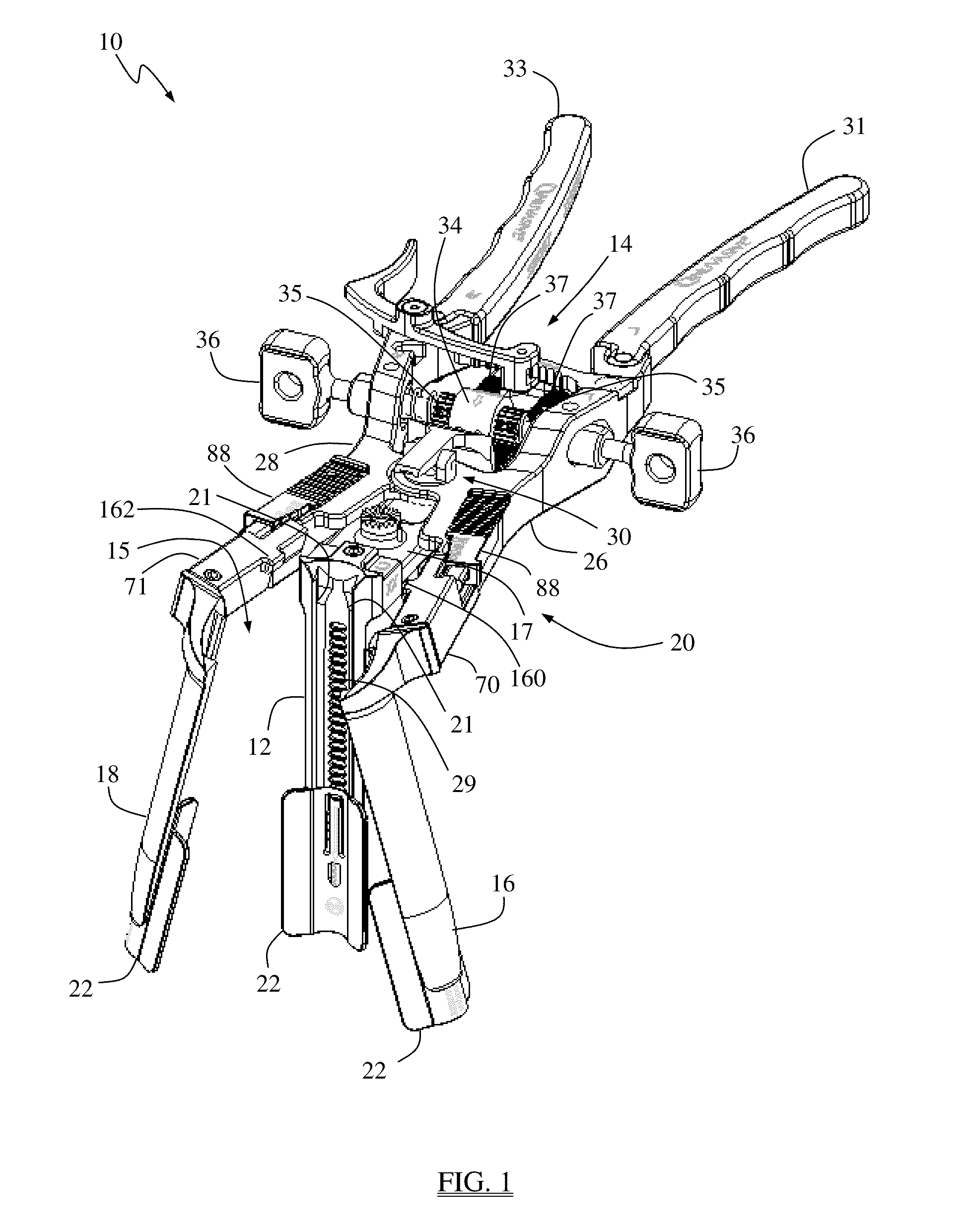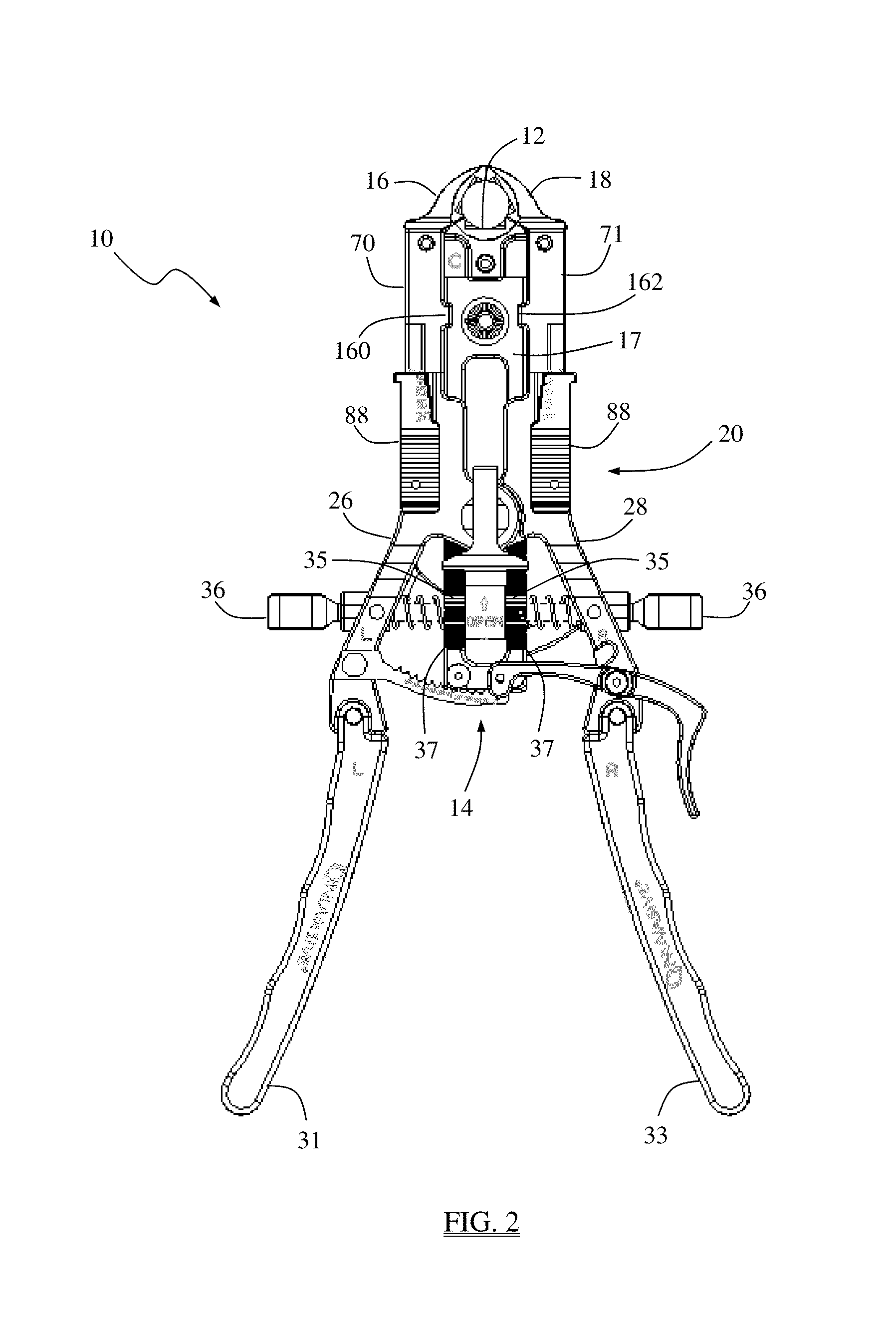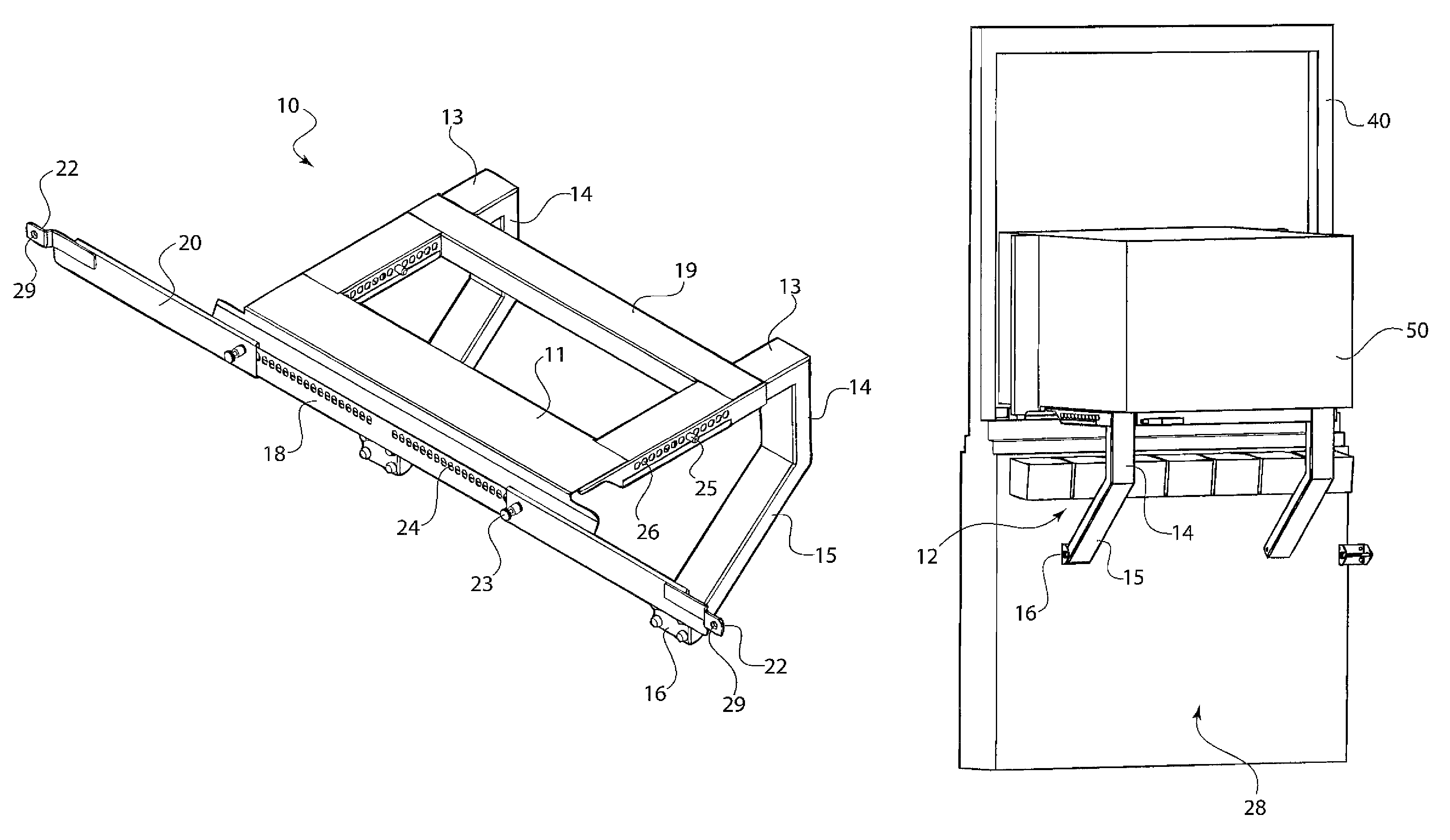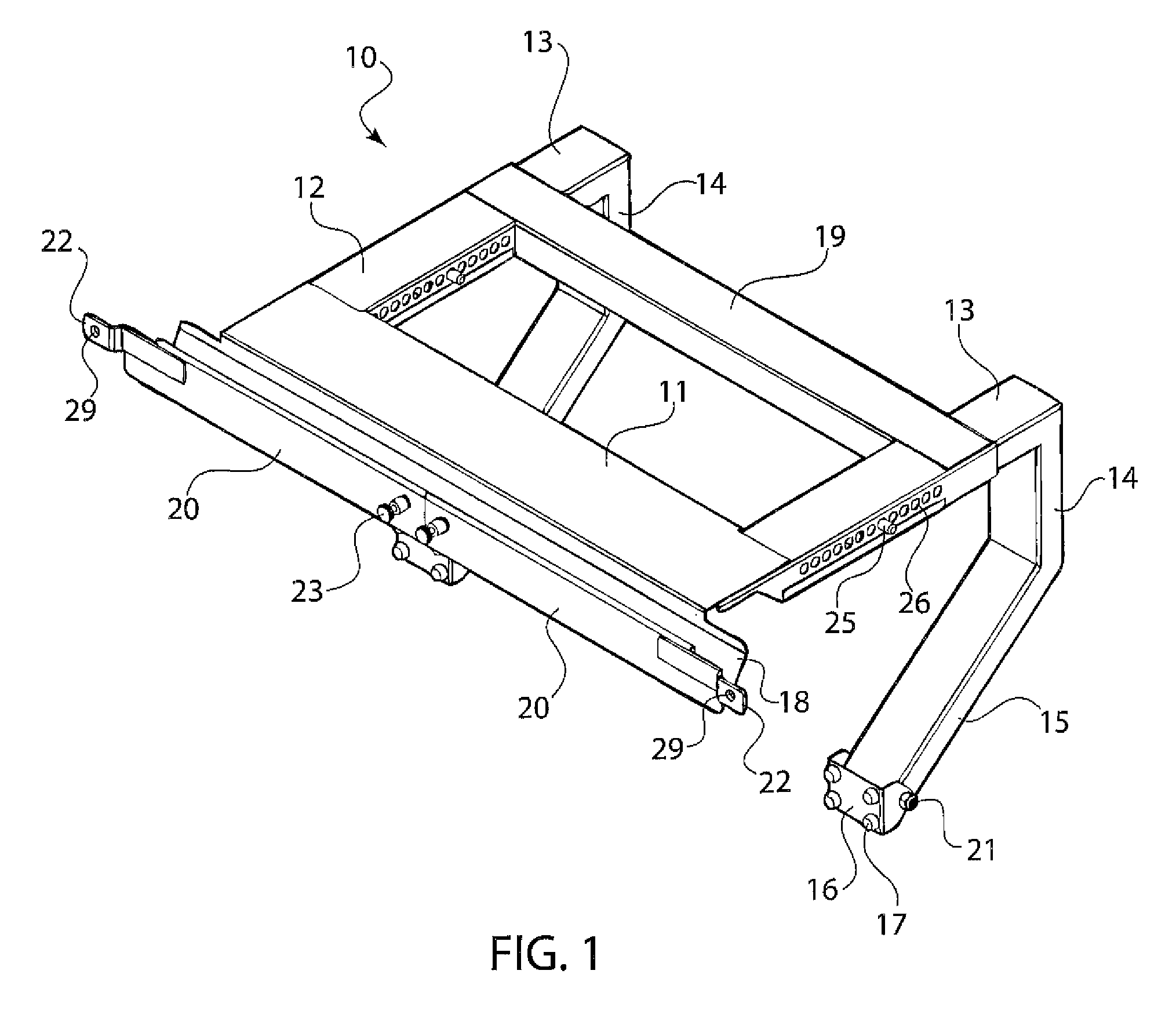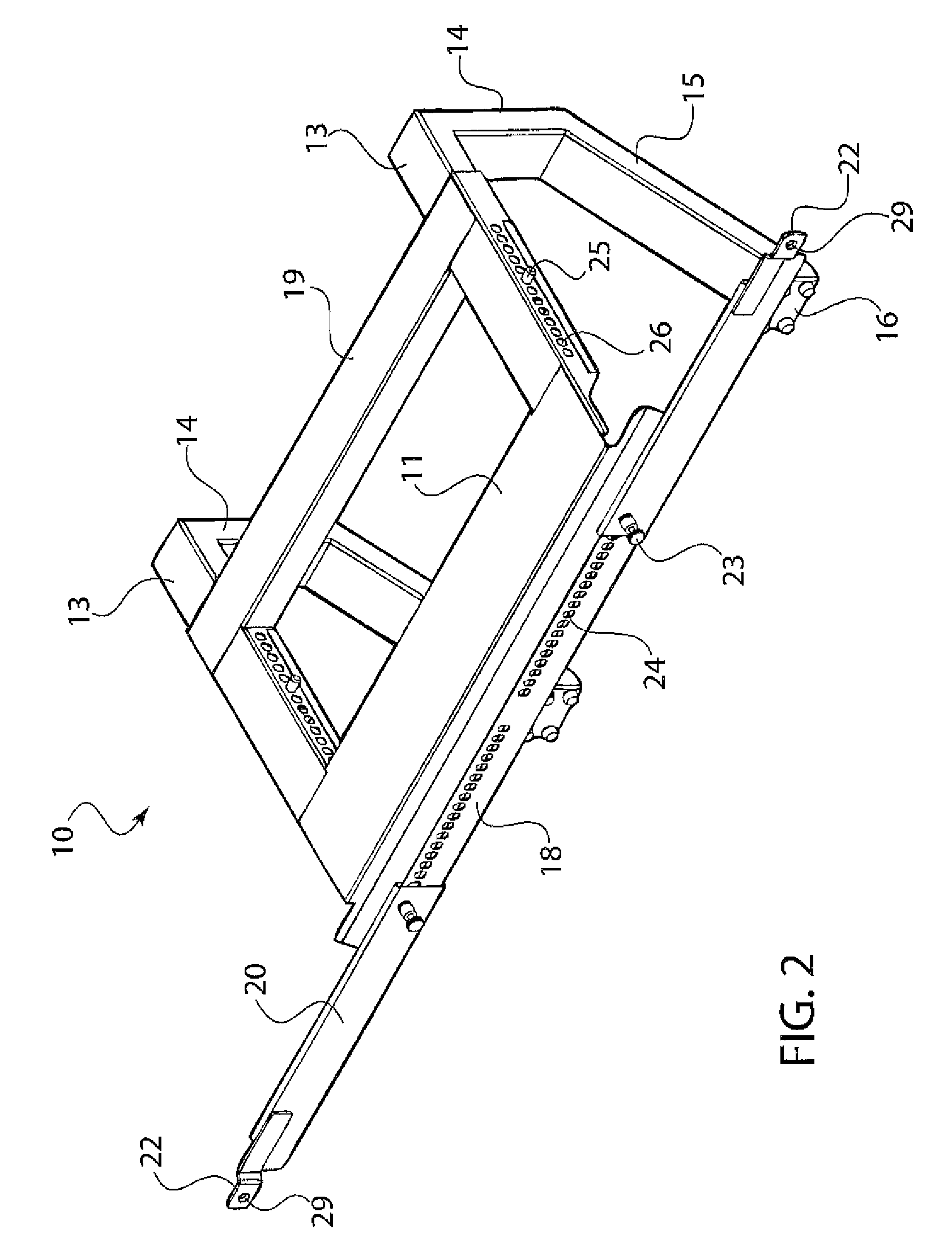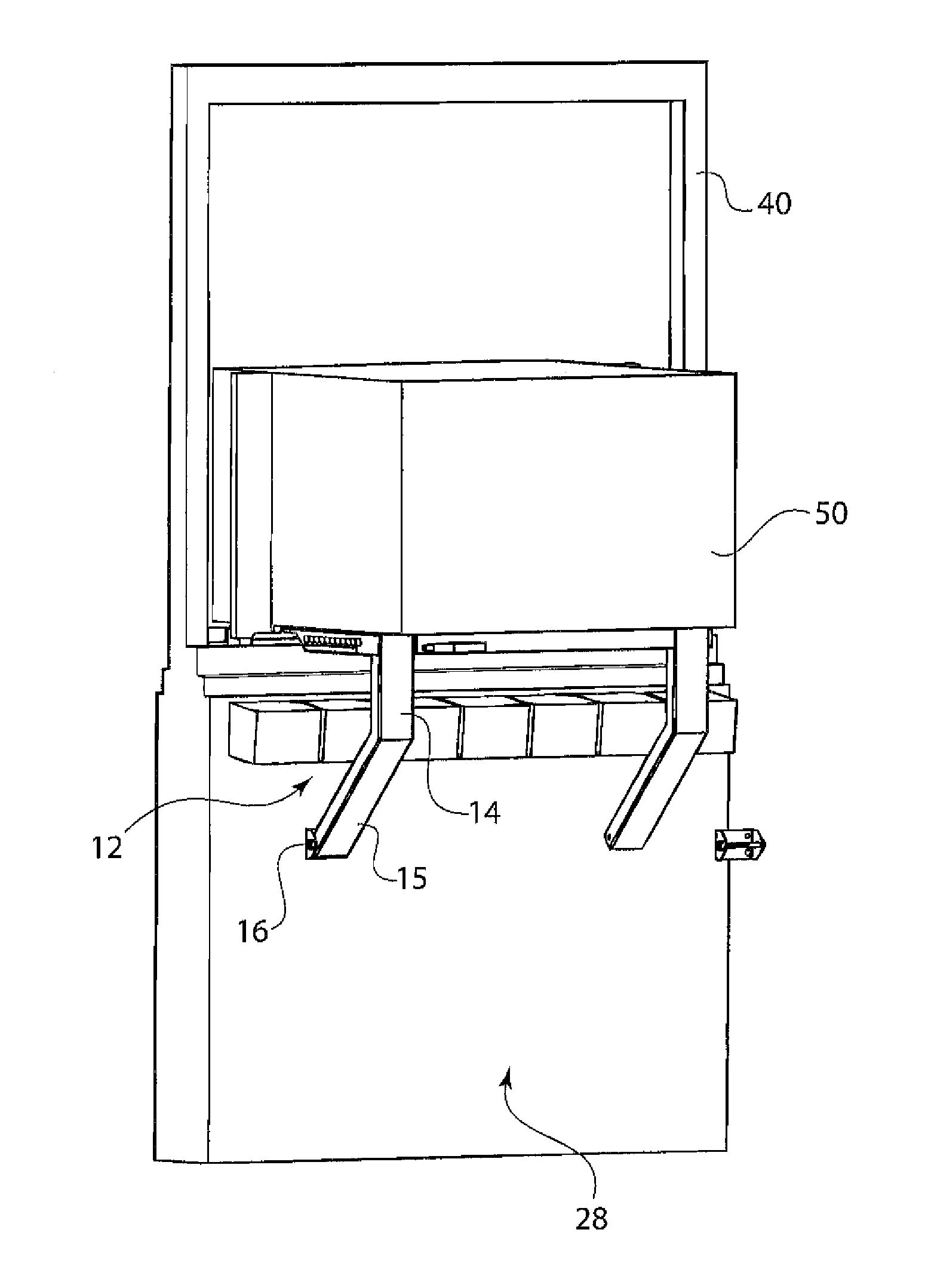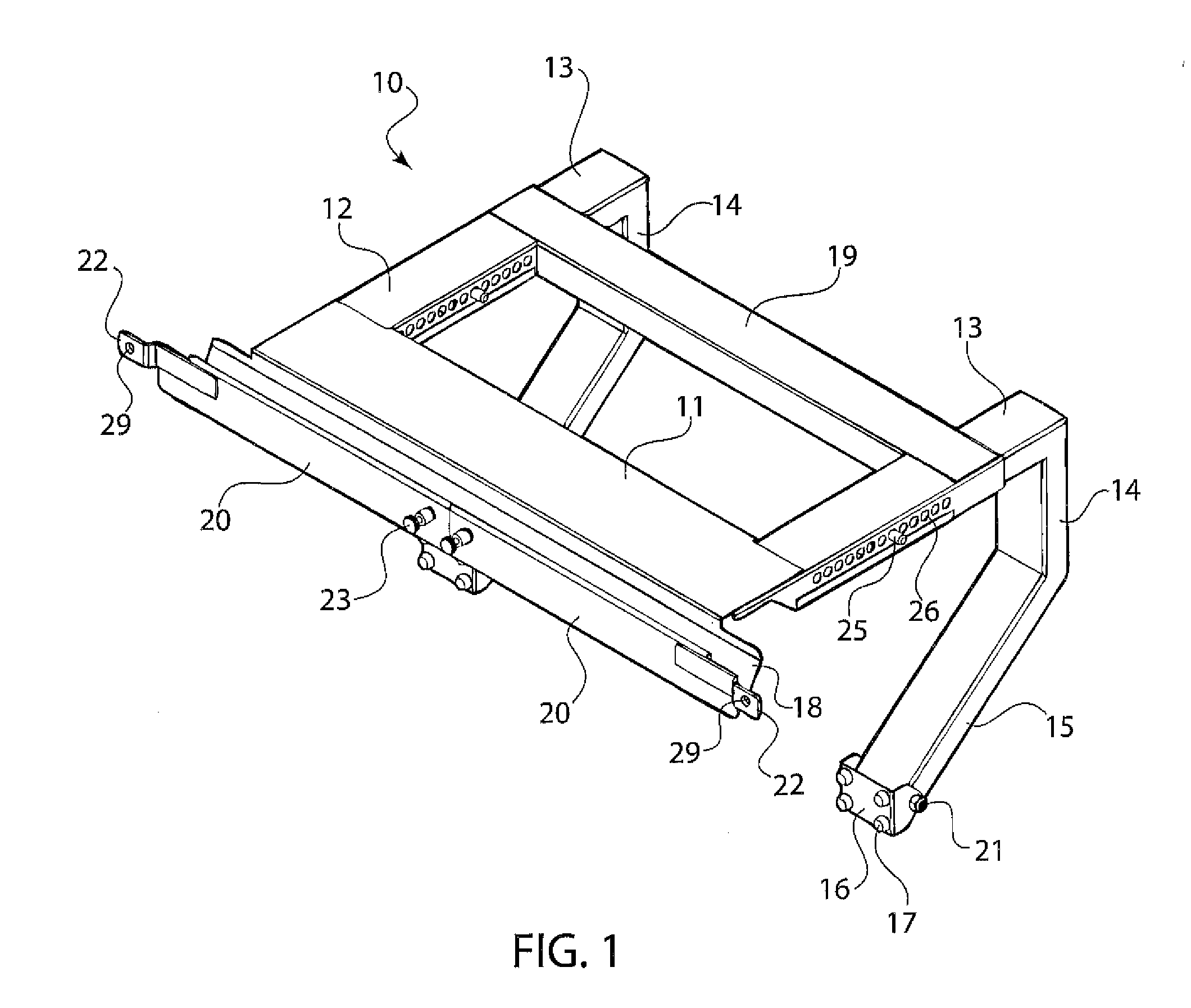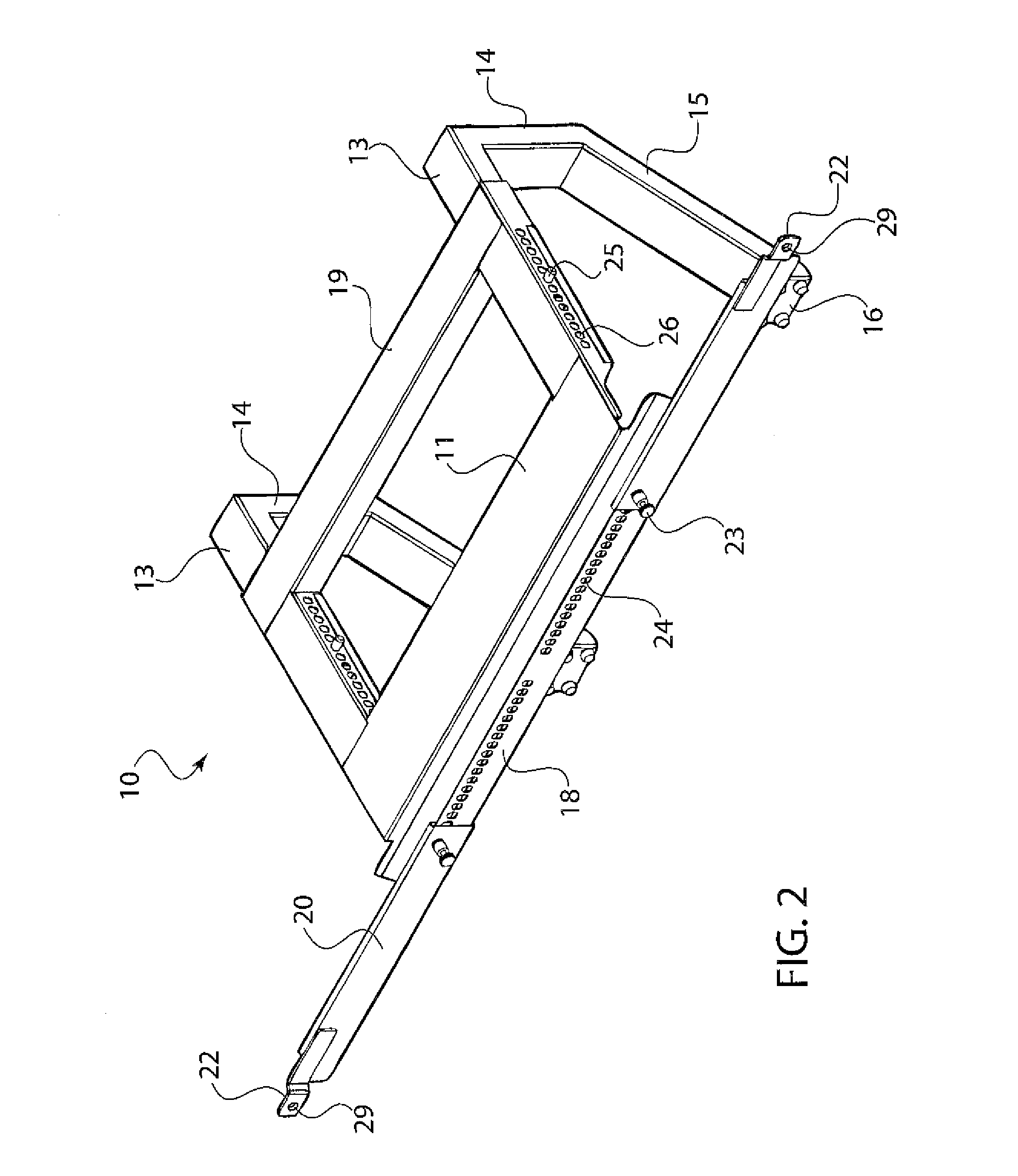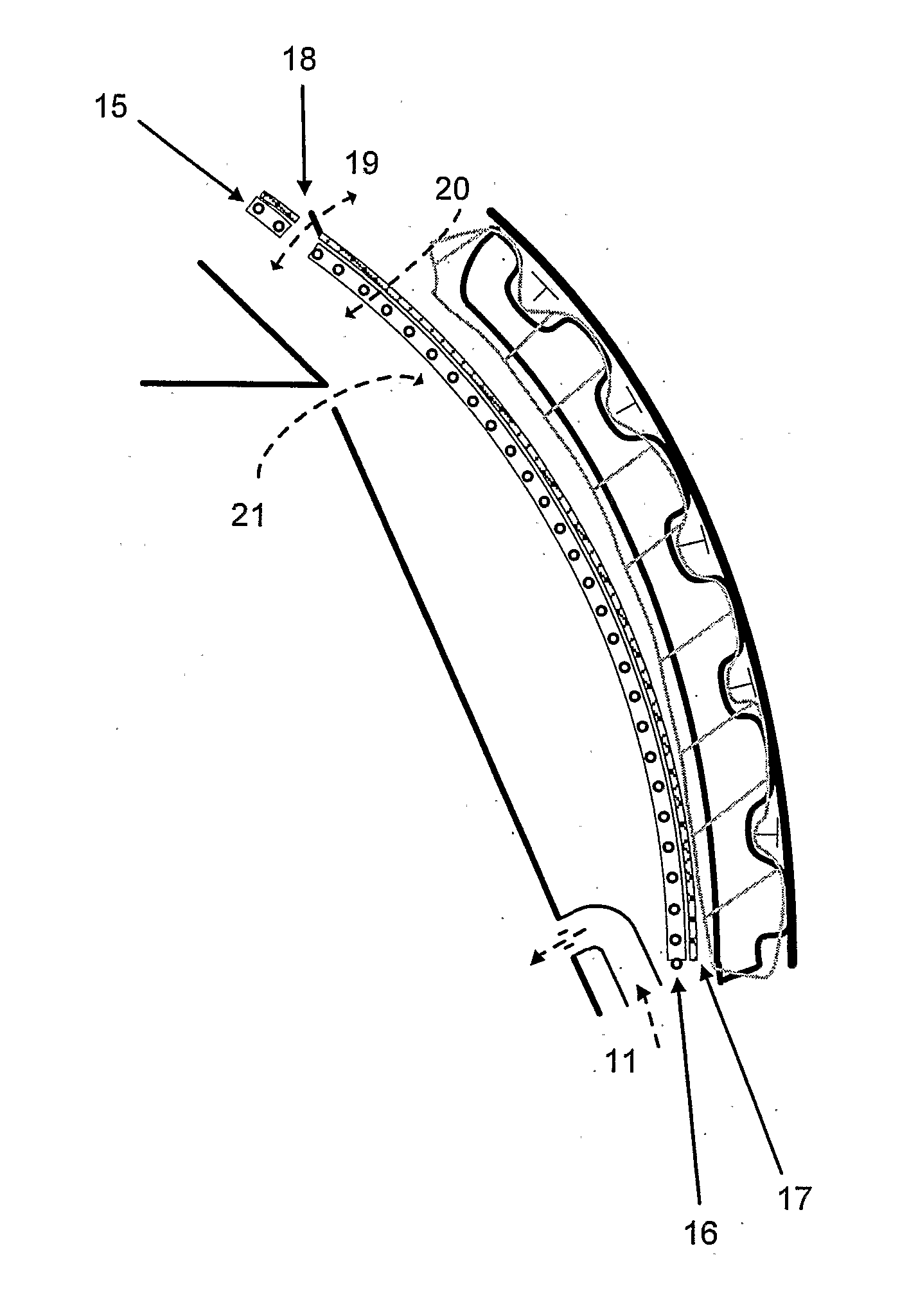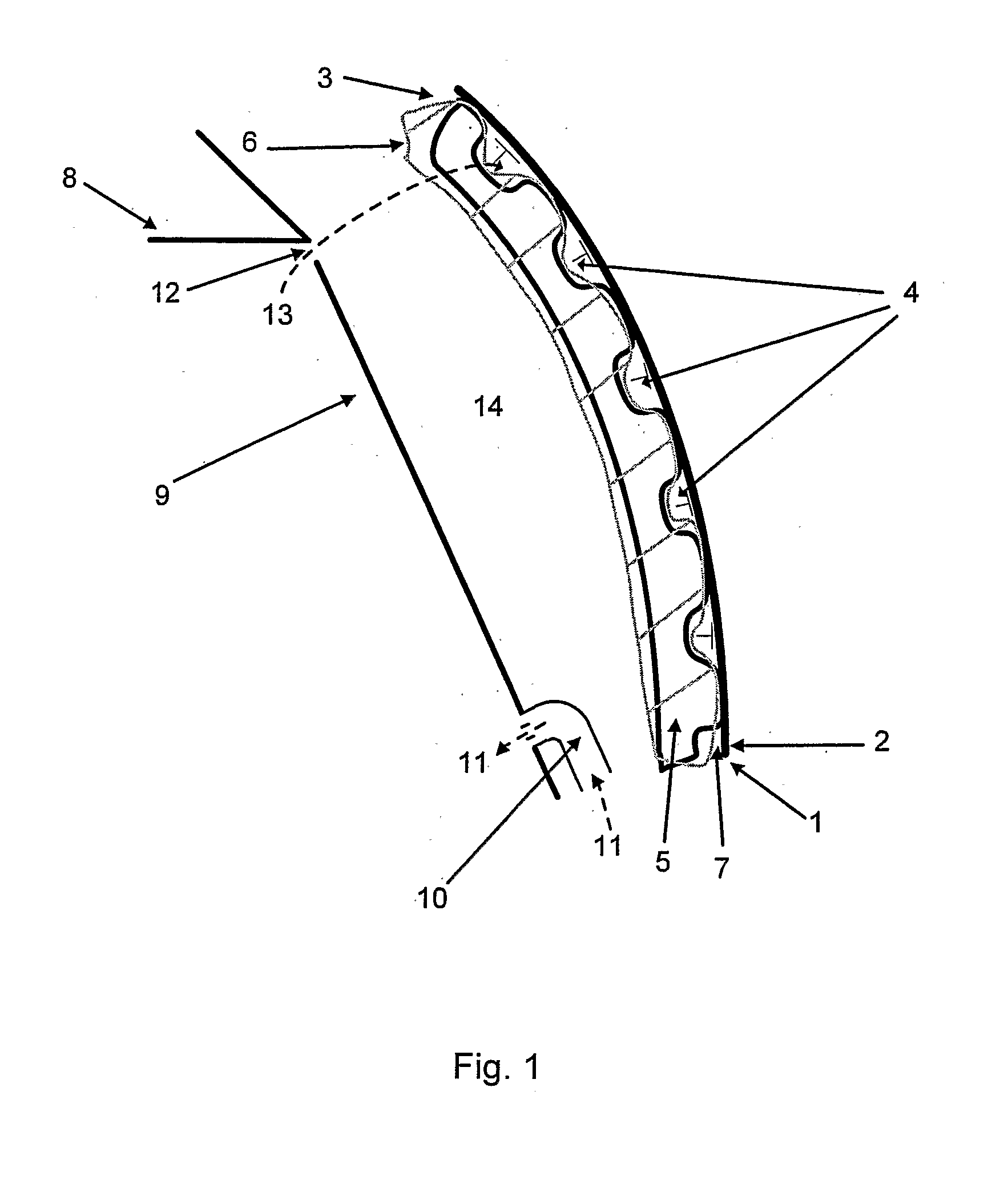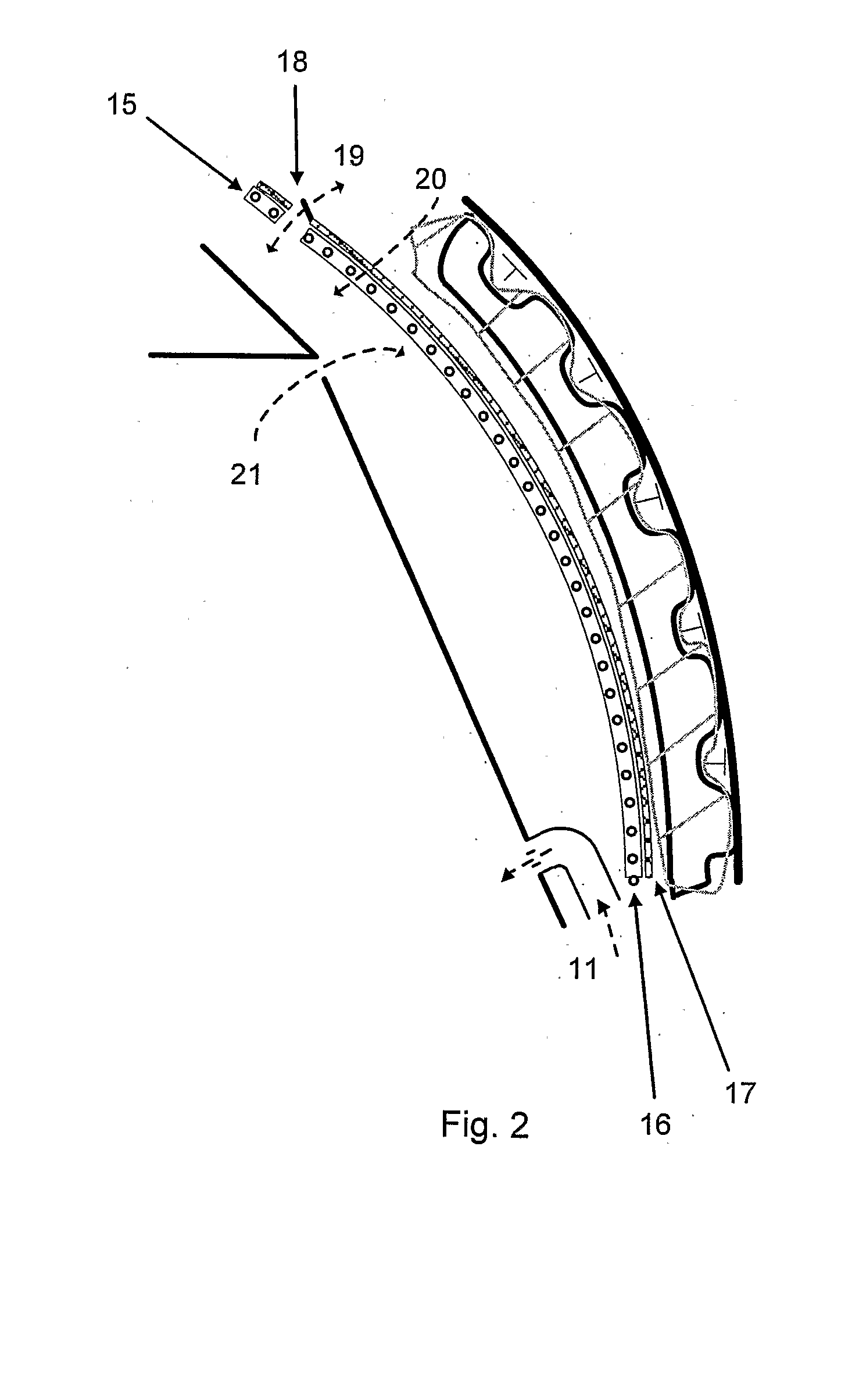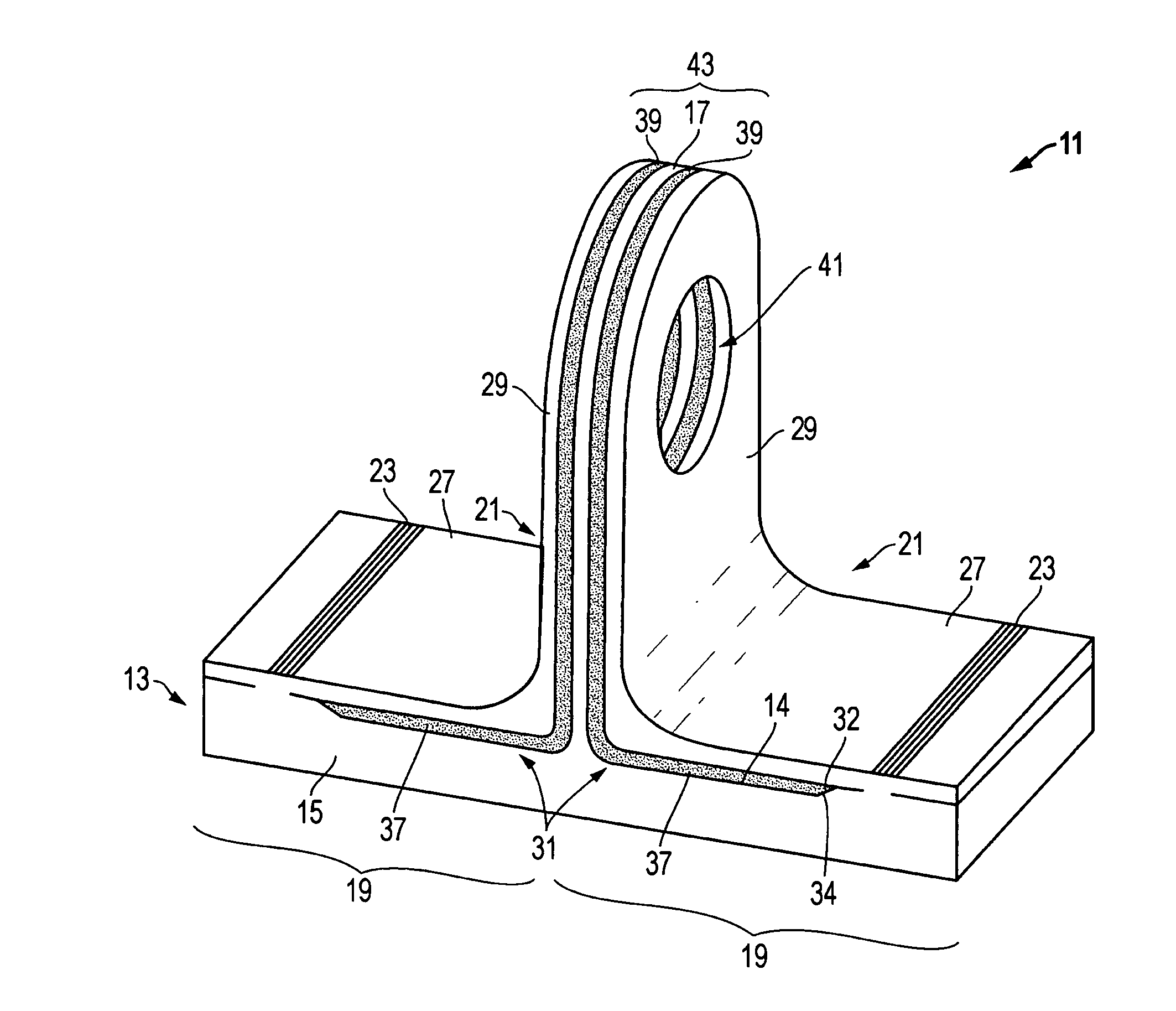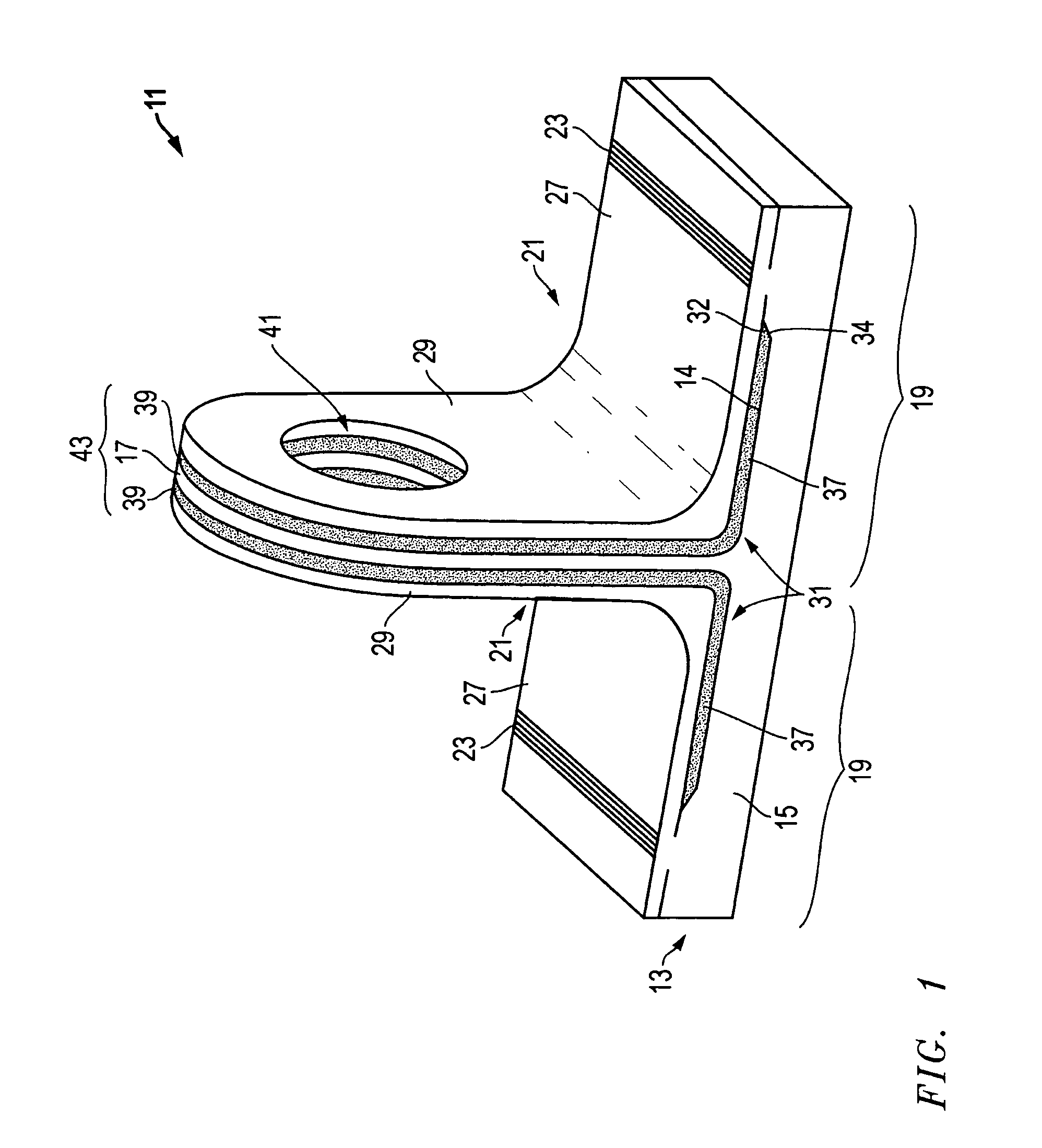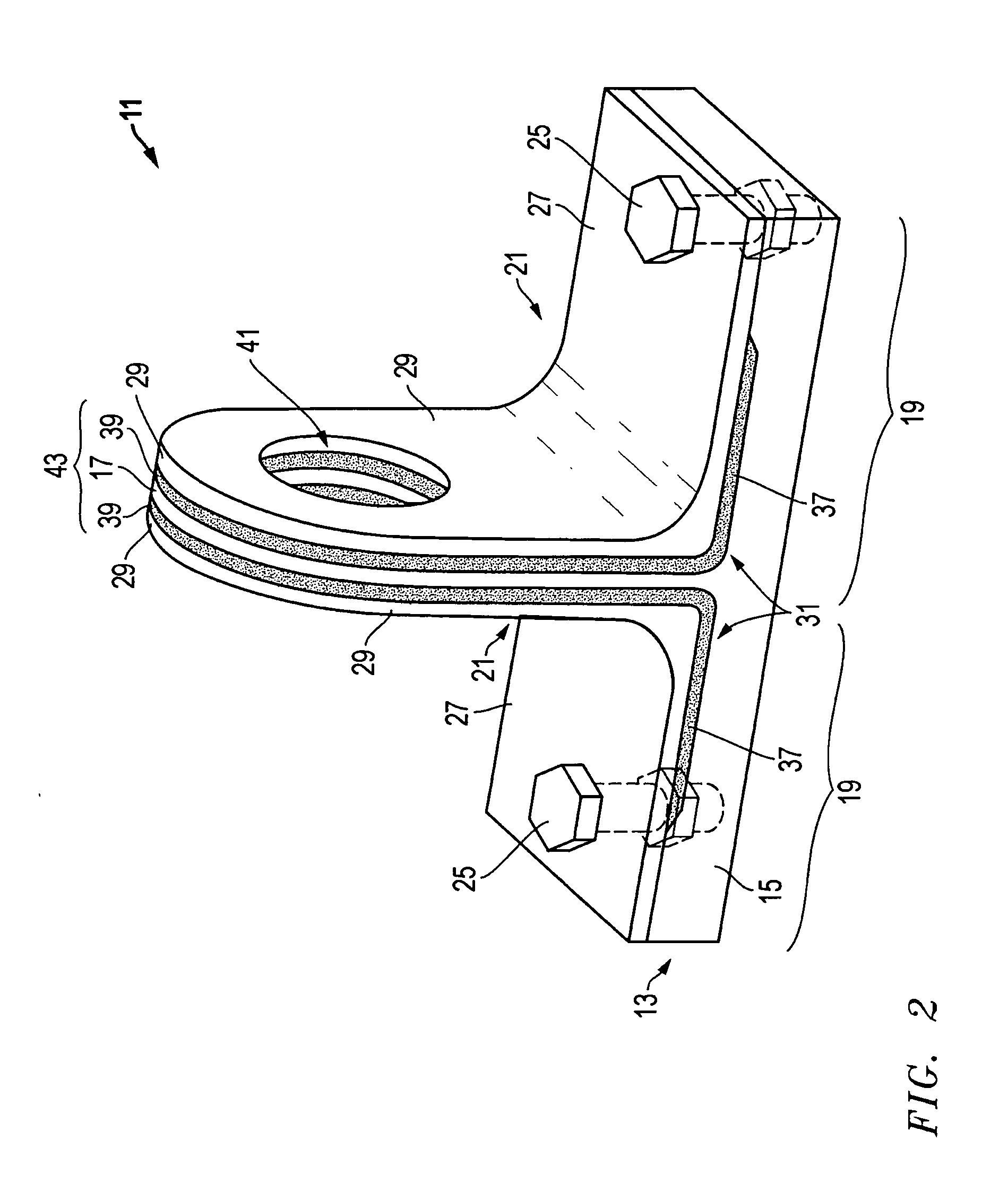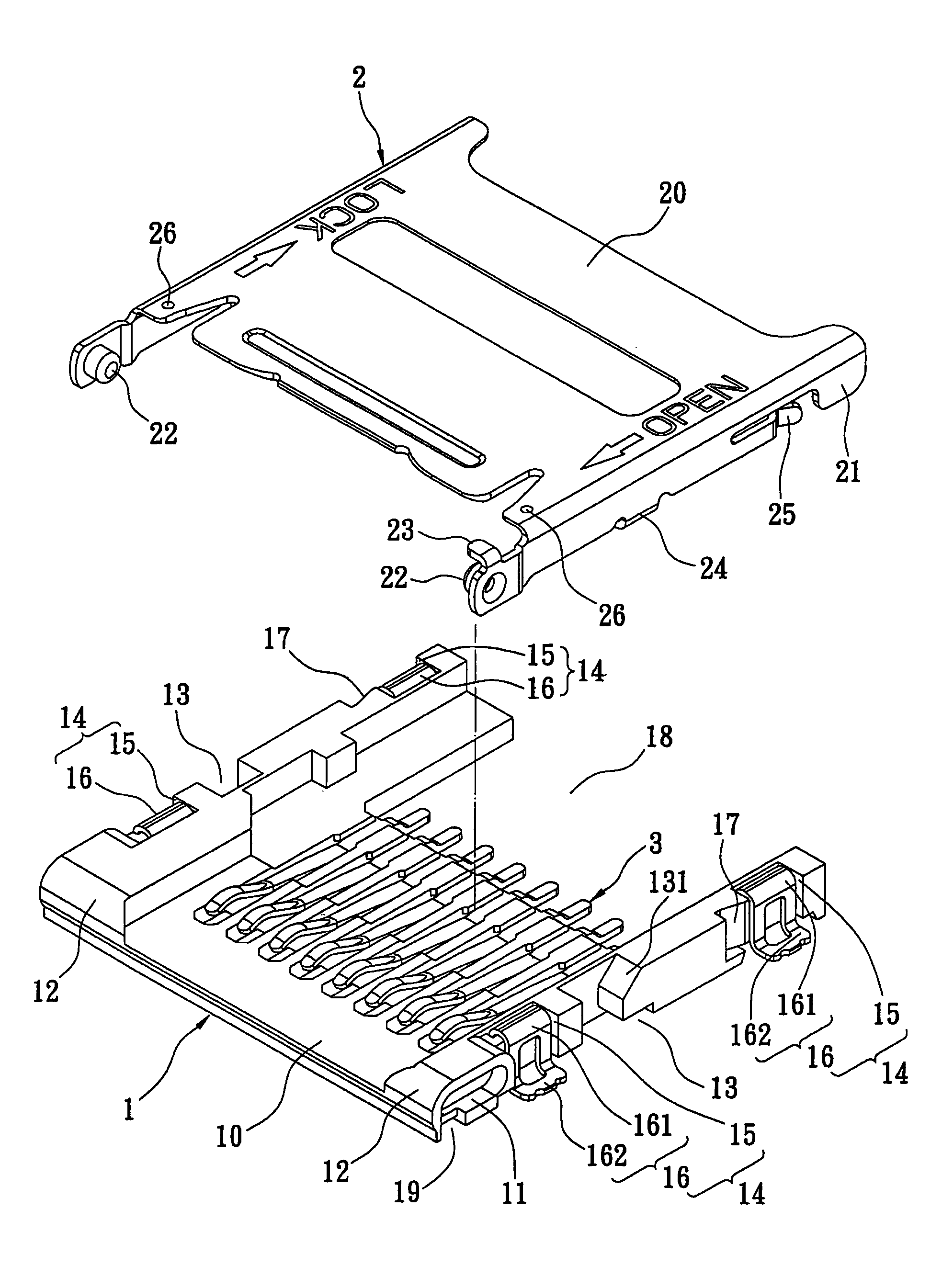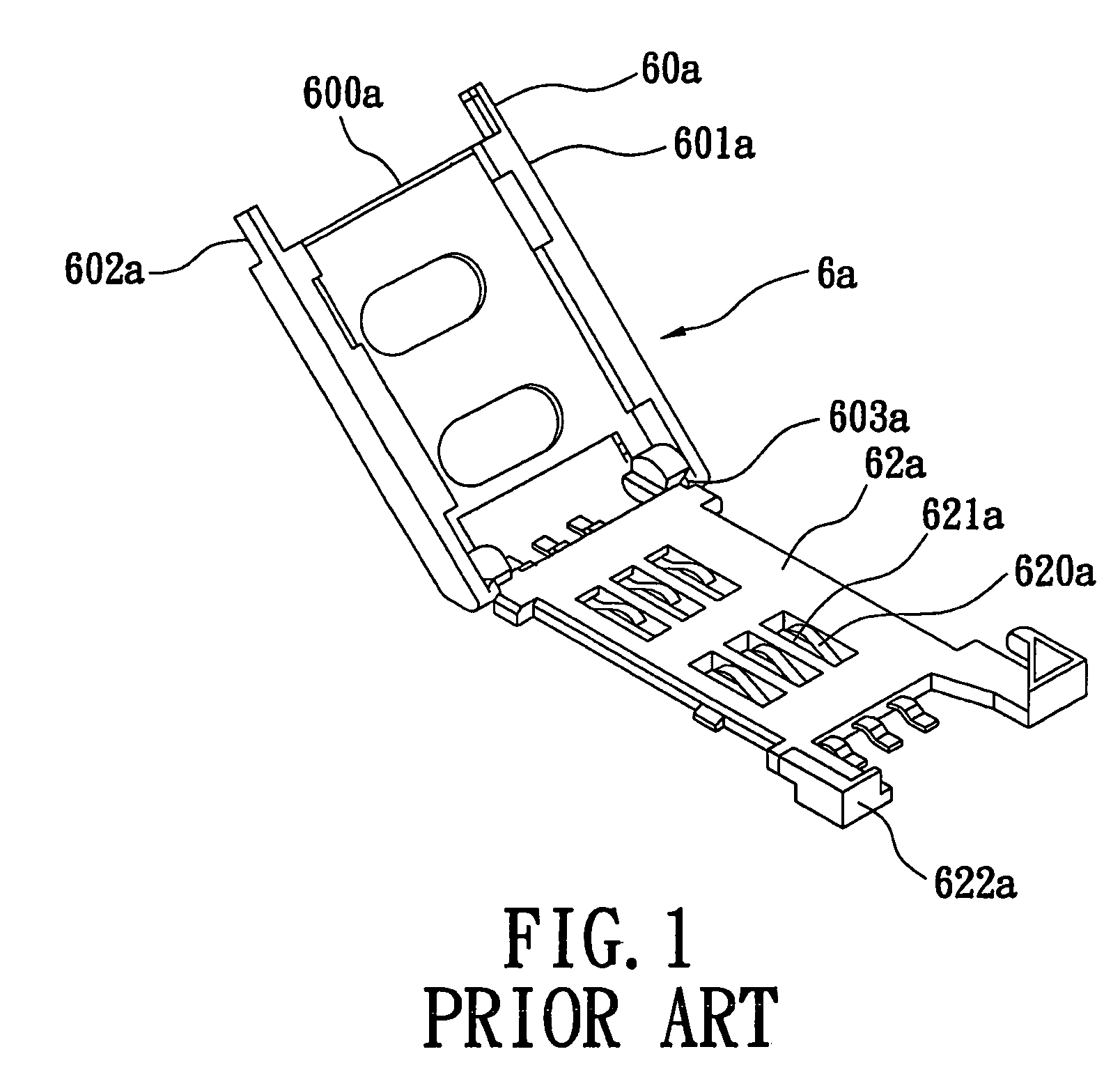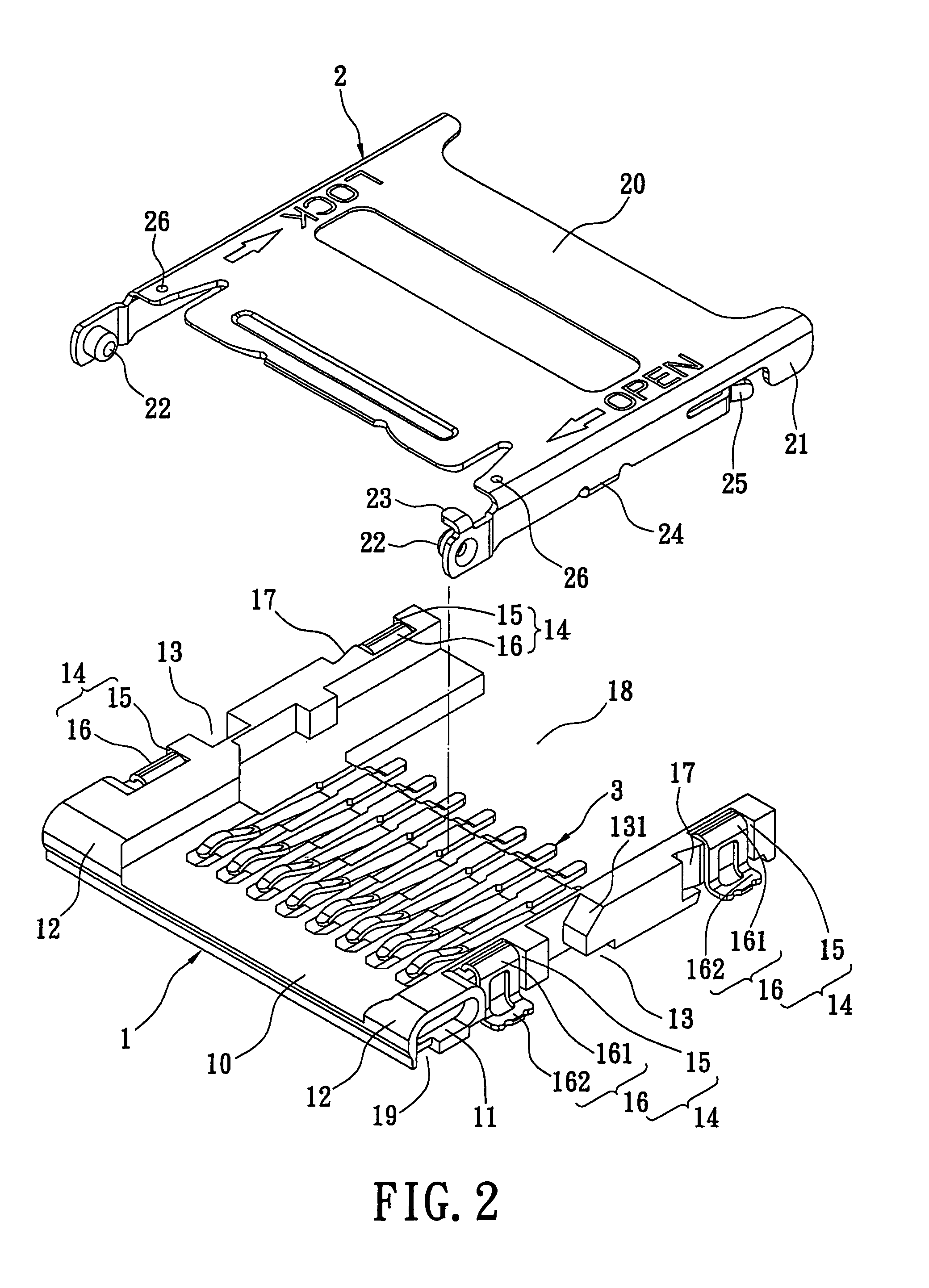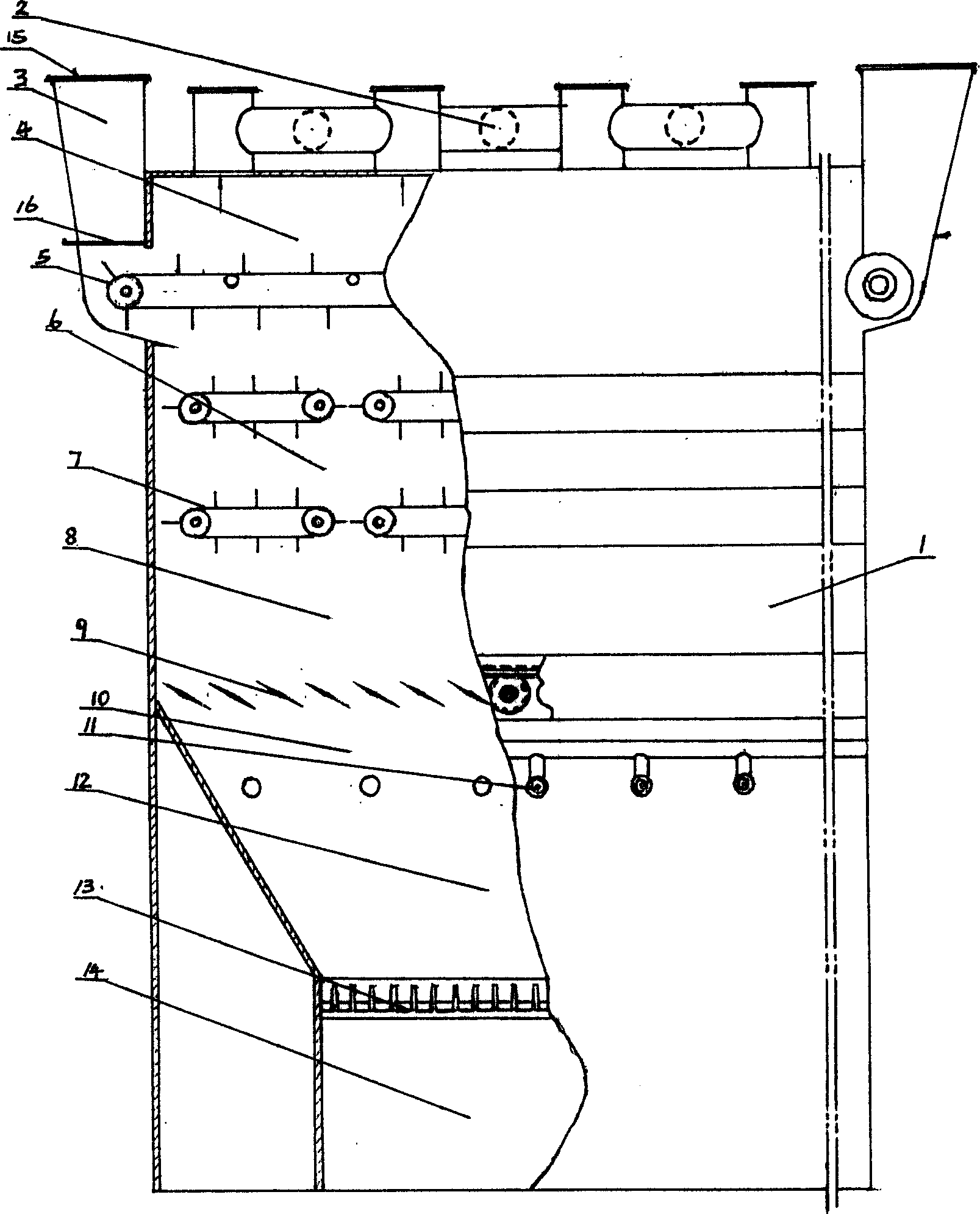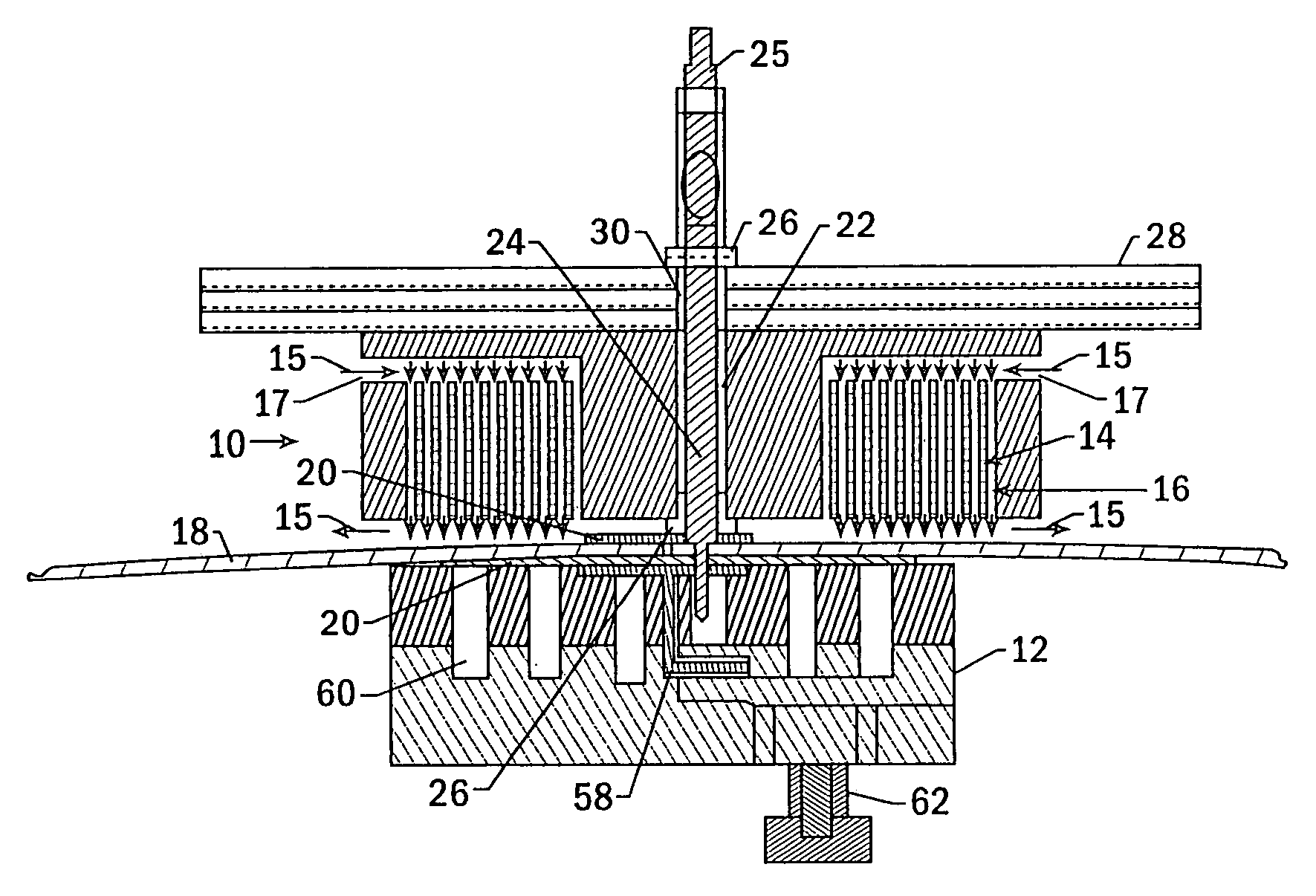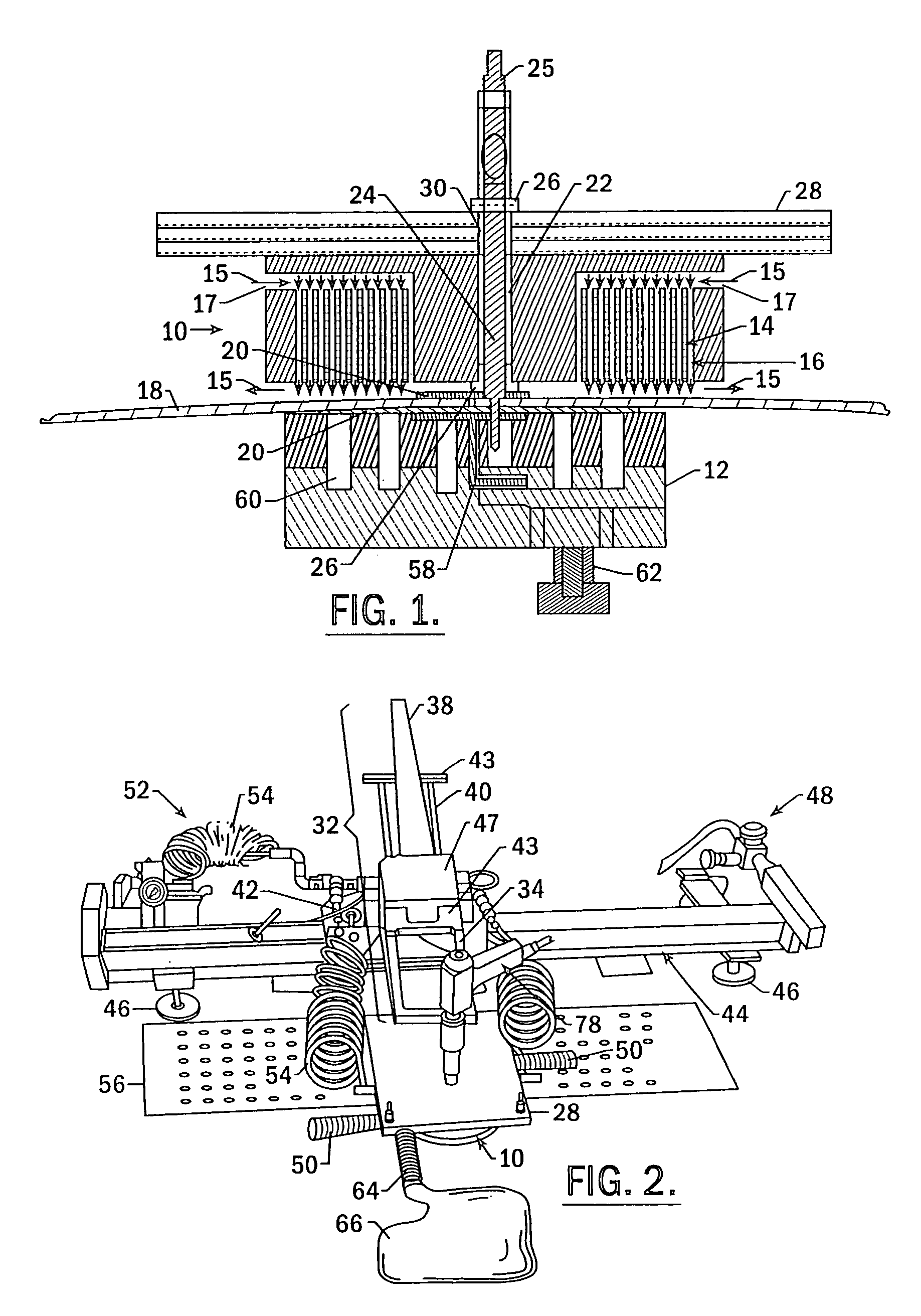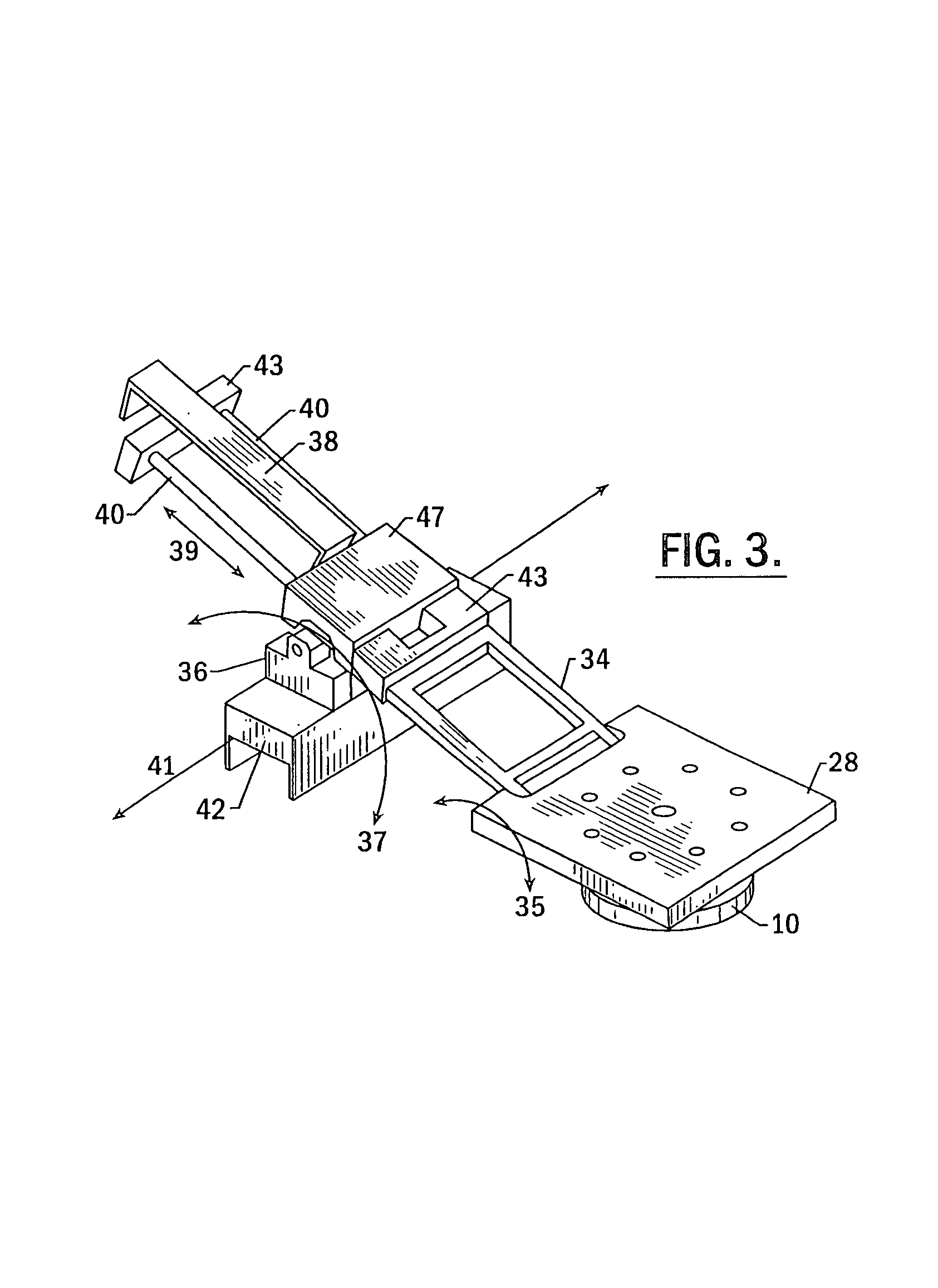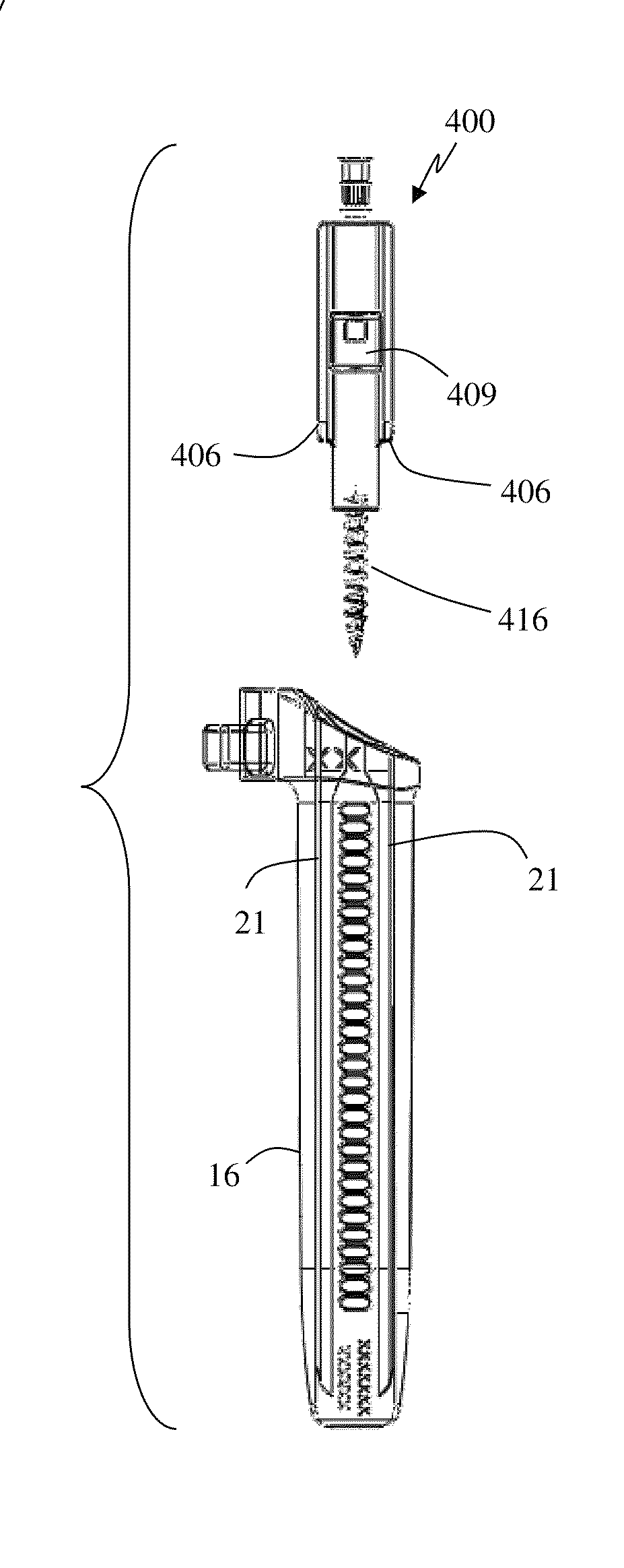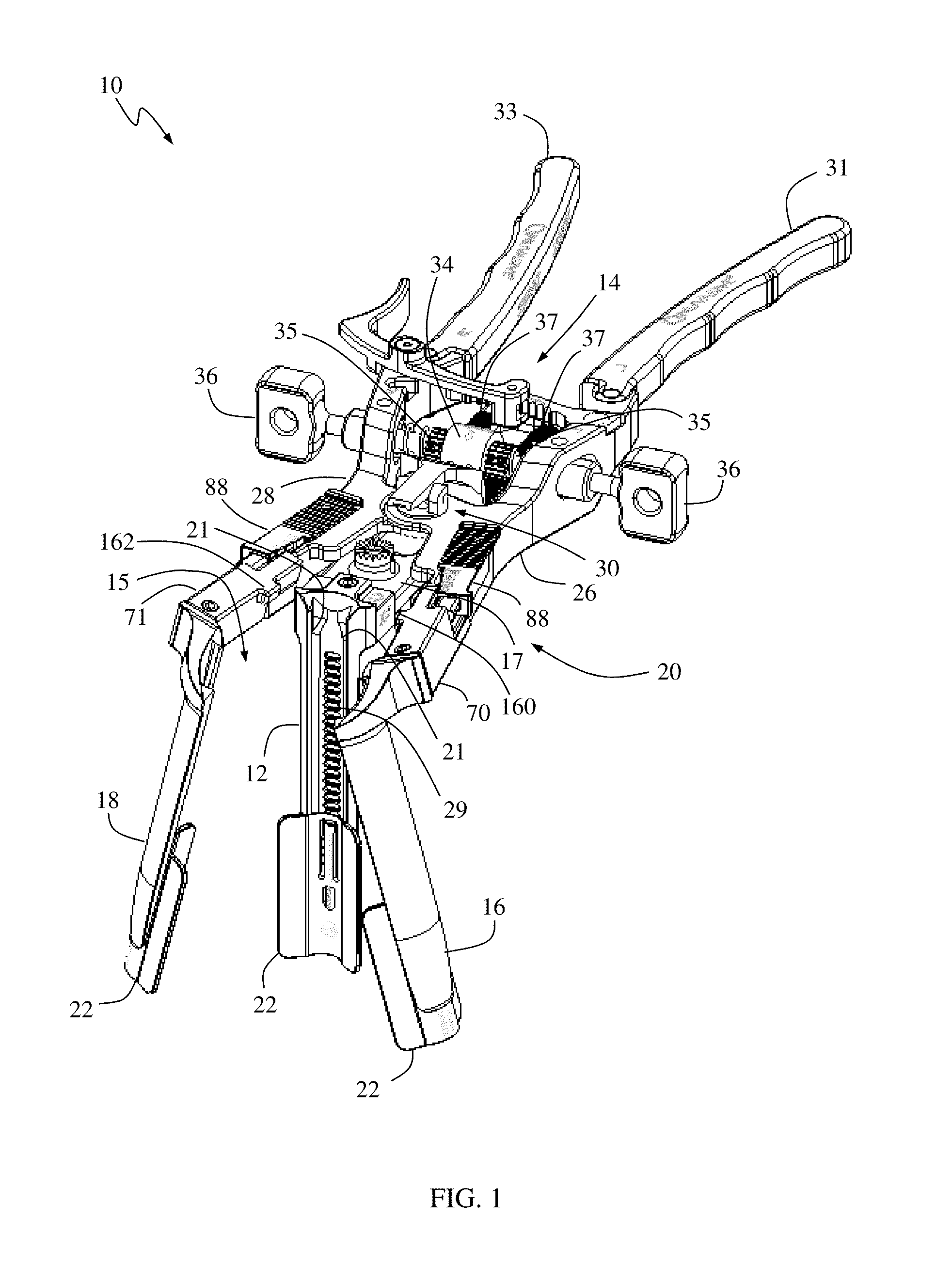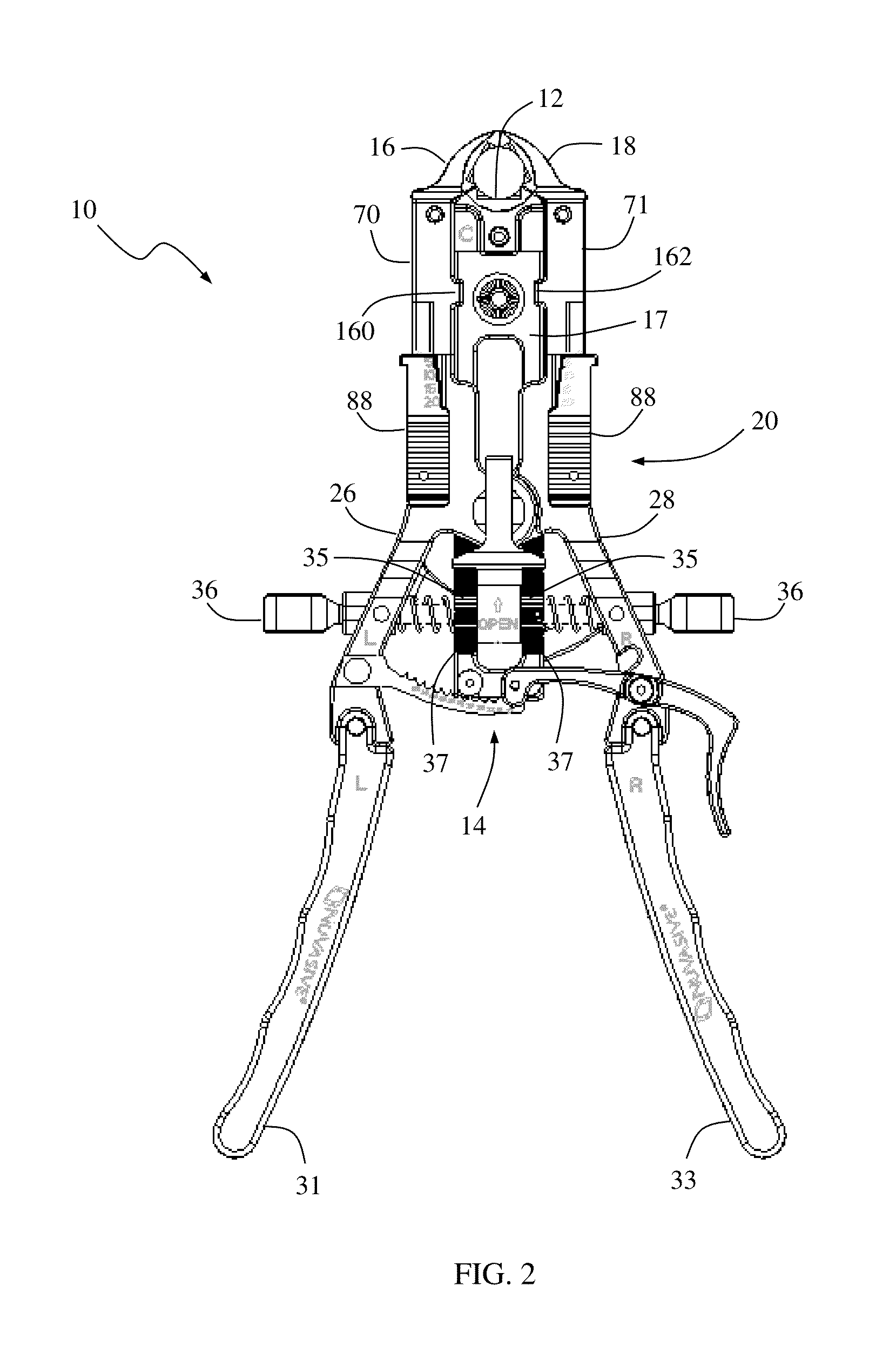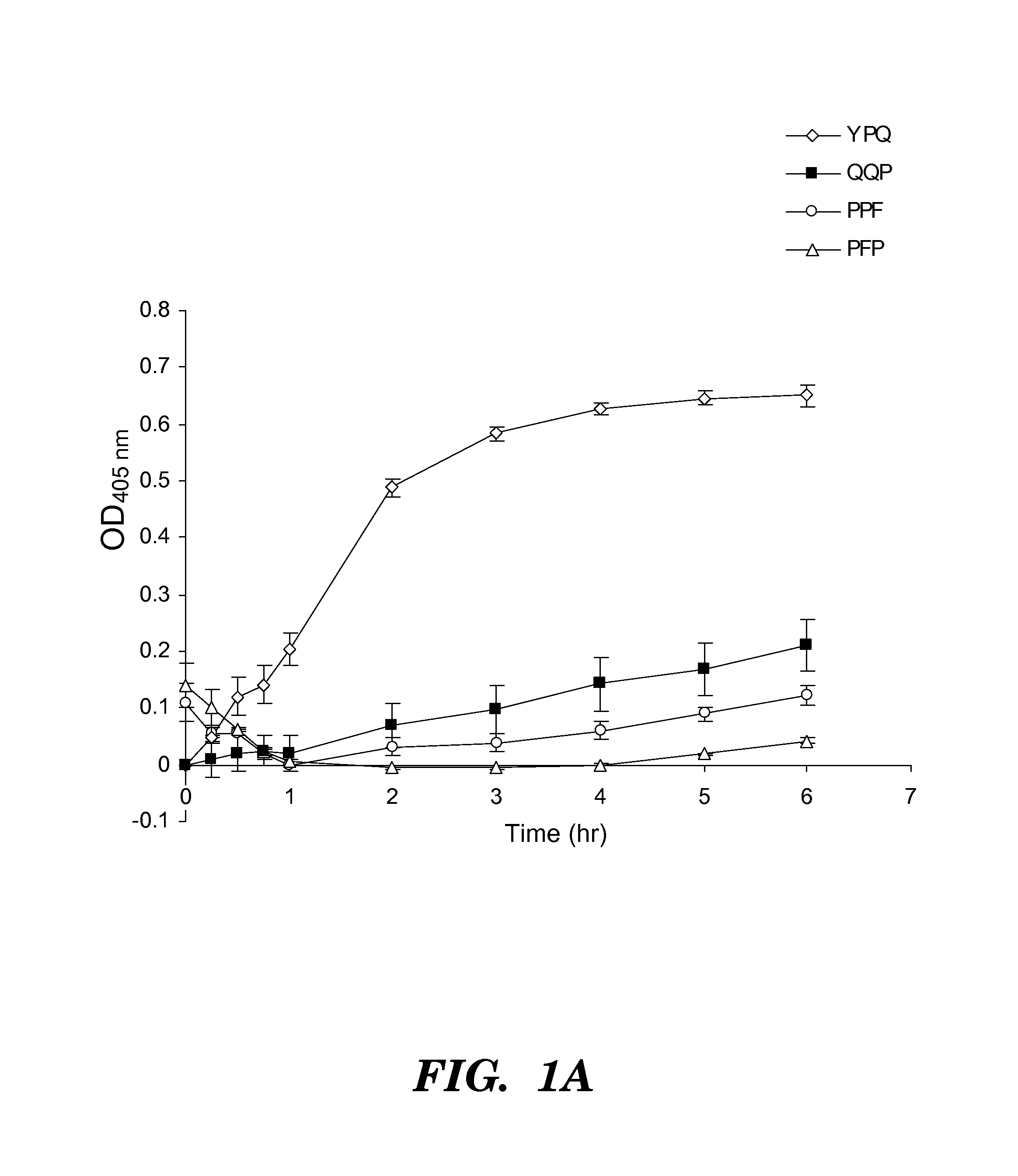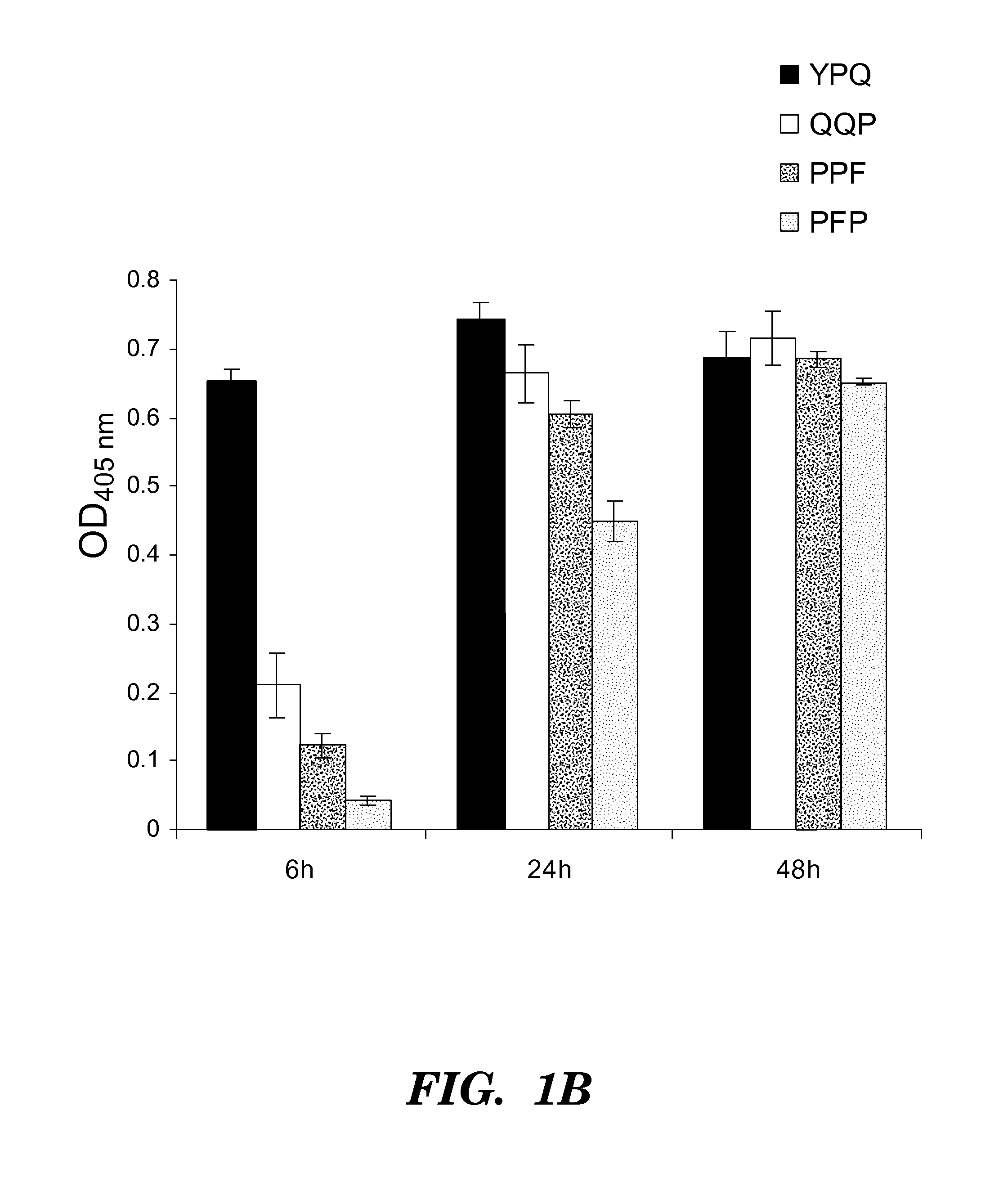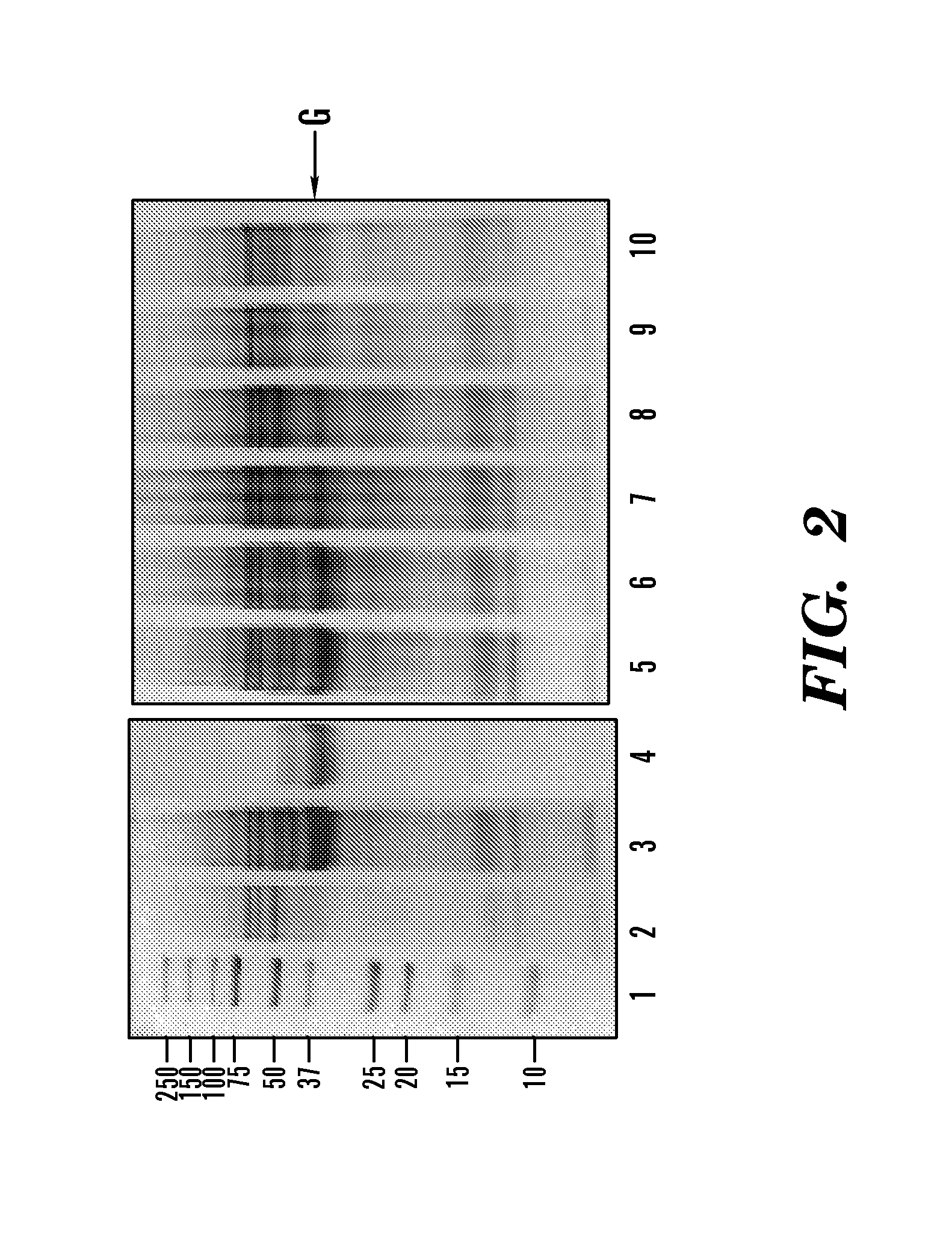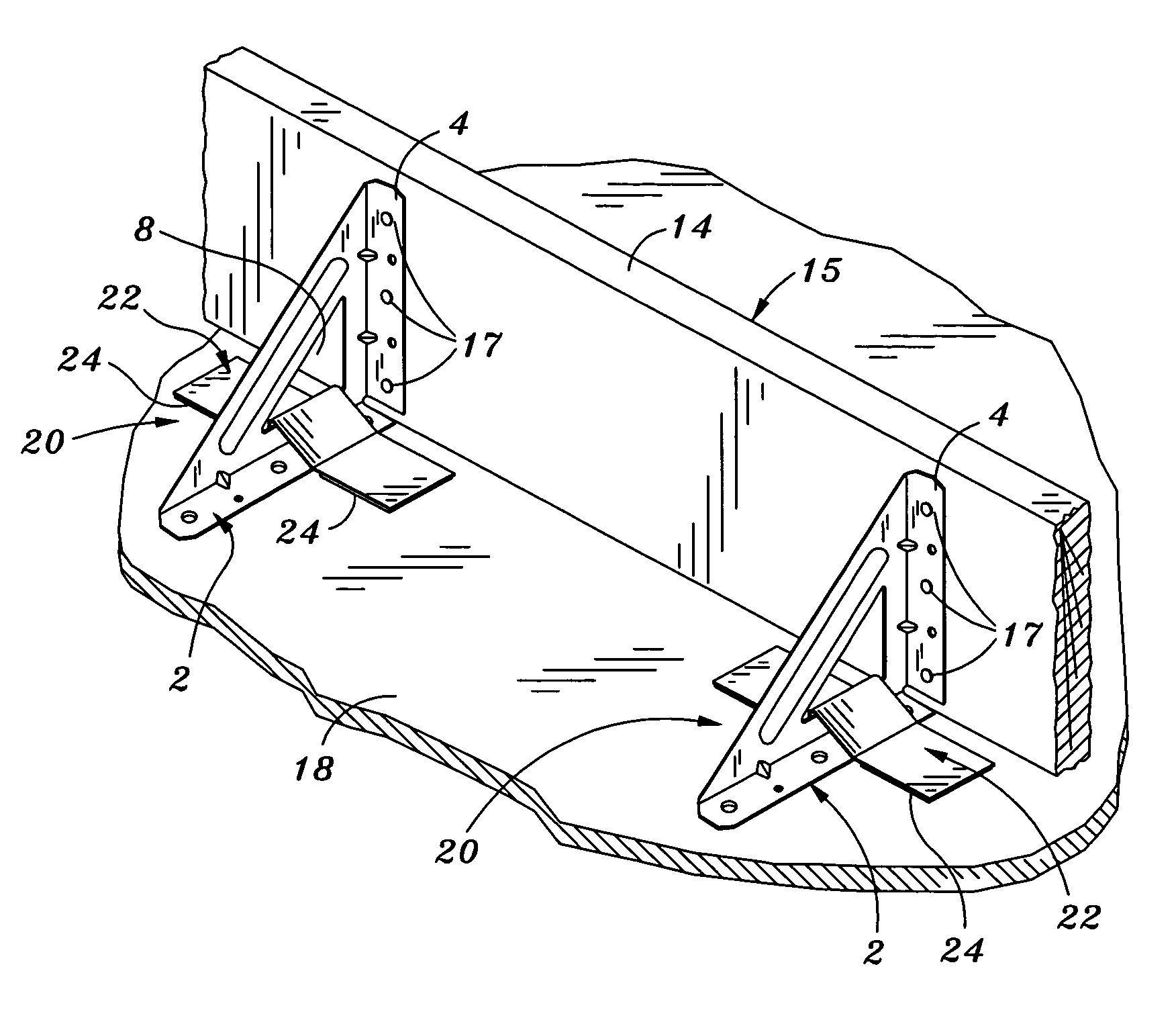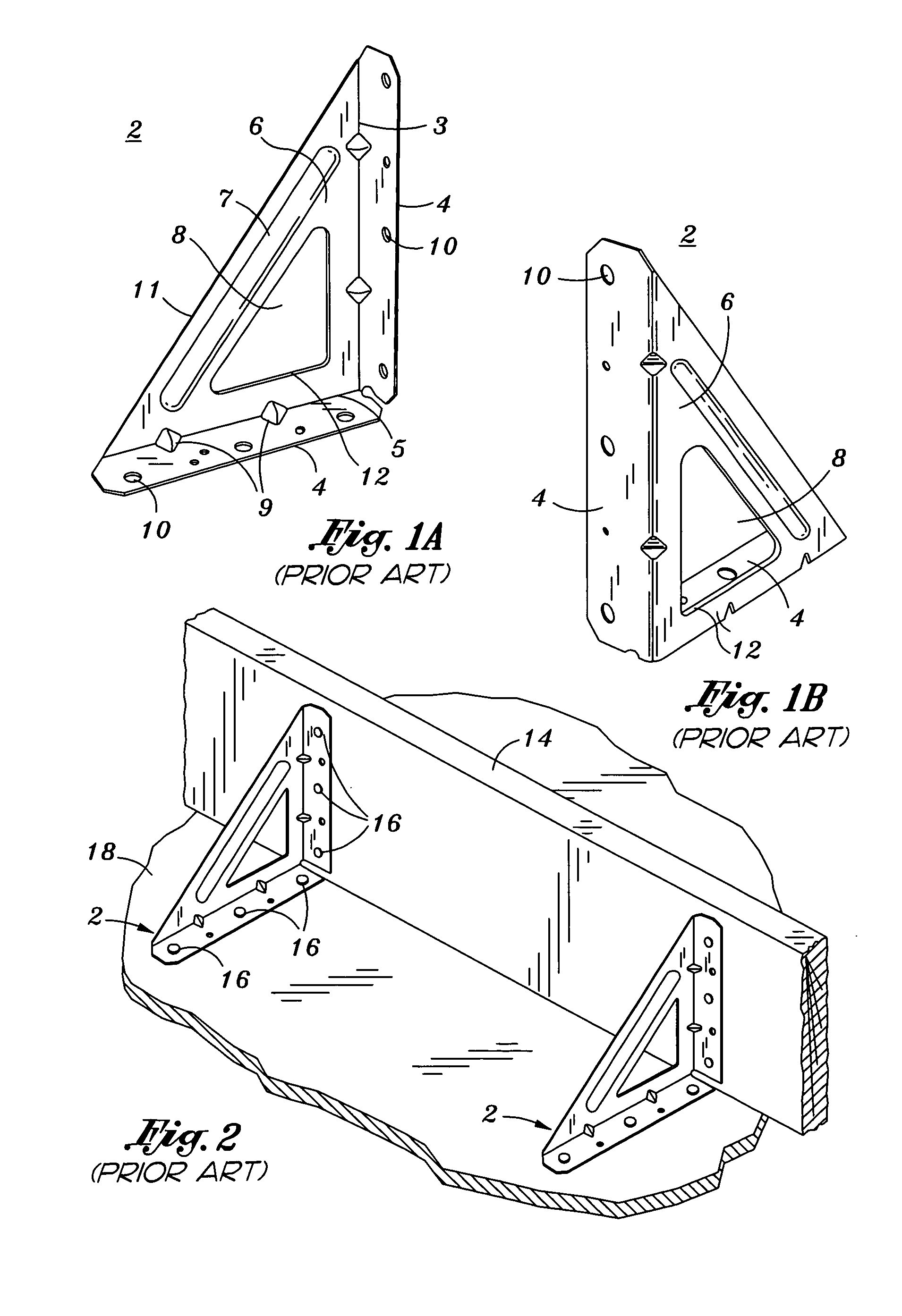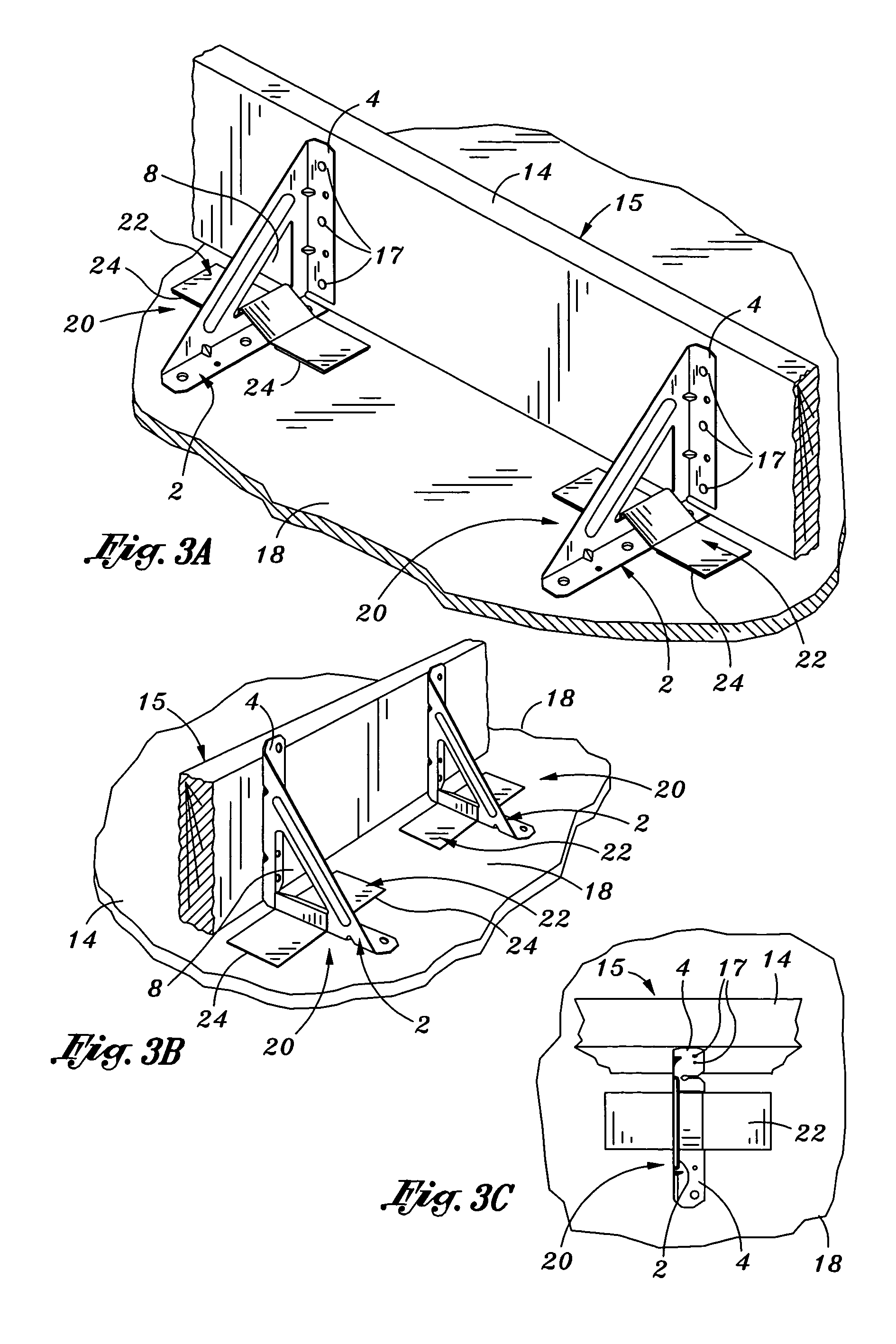Patents
Literature
120results about How to "Structural damage" patented technology
Efficacy Topic
Property
Owner
Technical Advancement
Application Domain
Technology Topic
Technology Field Word
Patent Country/Region
Patent Type
Patent Status
Application Year
Inventor
Surgical access system and related methods
ActiveUS7207949B2Increase the number ofStructural damageSpinal electrodesElectromyographyDistractionRadiology
A surgical access system including a tissue distraction assembly and a tissue retraction assembly, both of which may be equipped with one or more electrodes for use in detecting the existence of (and optionally the distance and / or direction to) neural structures before, during, and after the establishment of an operative corridor to a surgical target site.
Owner:NUVASIVE
Surgical access system and related methods
ActiveUS20050149035A1Increase the number ofStructural damageSurgeryJoint implantsDistractionNerve structure
A surgical access system including a tissue distraction assembly and a tissue retraction assembly, both of which may be equipped with one or more electrodes for use in detecting the existence of (and optionally the distance and / or direction to) neural structures before, during, and after the establishment of an operative corridor to a surgical target site. Some embodiments of the surgical access system may be particularly suited for establishing an operative corridor to a surgical target site in the spine. Such an operative corridor may be established through the retroperitoneal space and the psoas muscle during a direct lateral, retroperitoneal approach to the spine.
Owner:NUVASIVE
Surgical access system and related methods
ActiveUS7691057B2Increase the number ofStructural damageSurgeryDiagnostic recording/measuringDistractionRadiology
A surgical access system including a tissue distraction assembly and a tissue retraction assembly, both of which may be equipped with one or more electrodes for use in detecting the existence of (and optionally the distance and / or direction to) neural structures before, during, and after the establishment of an operative corridor to a surgical target site.
Owner:NUVASIVE
Surgical access system and related methods
ActiveUS20060069315A1Increase the number ofStructural damageSpinal electrodesElectromyographyDistractionRadiology
A surgical access system including a tissue distraction assembly and a tissue retraction assembly, both of which may be equipped with one or more electrodes for use in detecting the existence of (and optionally the distance and / or direction to) neural structures before, during, and after the establishment of an operative corridor to a surgical target site.
Owner:NUVASIVE
Surgical access system and related methods
ActiveUS20070100212A1Easy to rotate manuallyImprove structural stabilitySpinal electrodesElectromyographyDistractionSurgical site
A surgical access system including a tissue distraction assembly and a tissue retraction assembly, both of which may be equipped with one or more electrodes for use in detecting the existence of (and optionally the distance and / or direction to) neural structures before, during, and after the establishment of an operative corridor to a surgical target site. The tissue retraction assembly has a plurality of blades which may be introduced while in a closed configuration, after which point they may be opened to create an operation corridor to the surgical target site, including pivoting at least one blade to expand the operative corridor adjacent to the operative site.
Owner:NUVASIVE
Intervertebral disc replacement method
InactiveUS7104986B2Minimize damageMinimize necrosisCannulasEnemata/irrigatorsFiberIntervertebral disc arthroplasty
The present invention provides systems and methods for selectively applying electrical energy to a target location within a patient's body, particularly including tissue in the spine. The present invention applies high frequency (RF) electrical energy to one or more electrode terminals in the presence of electrically conductive fluid to contract collagen fibers within the tissue structures. In one aspect of the invention, a system and method is provided for removing a vertebral disc in preparation for implanting a prosthetic disc or removing a portion of the vertebral disc such as the nucleus pulposus in preparation for placing a prosthetic nucleus within the annulus of the disc. The present invention also teaches shrinking residual tissue in preparation for placing the implants.
Owner:ARTHROCARE
Surgical access system and related methods
ActiveUS20080097164A1Convenient introductionImprove structural stabilitySurgeryDiagnostic recording/measuringDistractionRadiology
A surgical access system including a tissue distraction assembly and a tissue retraction assembly, both of which may be equipped with one or more electrodes for use in detecting the existence of (and optionally the distance and / or direction to) neural structures before, during, and after the establishment of an operative corridor to a surgical target site.
Owner:NUVASIVE
Surgical access system and related methods
ActiveUS20090124860A1Improve structural stabilityRestore disc heightSurgerySensorsDistractionRadiology
A surgical access system including a tissue distraction assembly and a tissue retraction assembly, both of which may be equipped with one or more electrodes for use in detecting the existence of (and optionally the distance and / or direction to) neural structures before, during, and after the establishment of an operative corridor to a surgical target site.
Owner:NUVASIVE
Systems and methods for electrosurgical prevention of disc herniations
The present invention provides systems and methods for selectively applying electrical energy to a target location within a patient's body, particularly including tissue in the spine. The present invention applies high frequency (RF) electrical energy to one or more electrode terminals in the presence of electrically conductive fluid or saline-rich tissue to contract collagen fibers within the tissue structures. In one aspect of the invention, a system and method is provided for contracting a portion of the nucleus pulposus of a vertebral disc by applying a high frequency voltage between an active electrode and a return electrode within the portion of the nucleus pulposus, where contraction of the portion of nucleus pulposus inhibits migration of the portion nucleus pulposus through the fissure.
Owner:ARTHROCARE
Surgical access system and related methods
ActiveUS20100130827A1Increase the number ofStructural damageElectrotherapySurgeryDistractionSurgical operation
A surgical access system including a tissue distraction assembly and a tissue retraction assembly, both of which may be equipped with one or more electrodes for use in detecting the existence of (and optionally the distance and / or direction to) neural structures before, during, and after the establishment of an operative corridor to a surgical target site. Some embodiments of the surgical access system may be particularly suited for establishing an operative corridor to a surgical target site in the spine. Such an operative corridor may be established through the retroperitoneal space and the psoas muscle during a direct lateral, retroperitoneal approach to the spine.
Owner:NUVASIVE
Surgical access system and related methods
ActiveUS20070208227A1Easy to rotate manuallyImprove structural stabilityElectrotherapyElectromyographyDistractionSurgical site
A surgical access system including a tissue distraction assembly and a tissue retraction assembly, both of which may be equipped with one or more electrodes for use in detecting the existence of (and optionally the distance and / or direction to) neural structures before, during, and after the establishment of an operative corridor to a surgical target site. The tissue retraction assembly has a plurality of blades which may be introduced while in a closed configuration, after which point they may be opened to create an operation corridor to the surgical target site, including pivoting at least one blade to expand the operative corridor adjacent to the operative site.
Owner:NUVASIVE
Surgical access system and related methods
A surgical access system including a tissue distraction assembly and a tissue refraction assembly, both of which may be equipped with one or more electrodes for use in detecting the existence of (and optionally the distance and / or direction to) neural structures before, during, and after the establishment of an operative corridor to a surgical target site.
Owner:NUVASIVE
Surgical access system and related methods
ActiveUS20090018399A1Increase the number ofStructural damageSpinal electrodesElectromyographySurgical siteBiomedical engineering
A surgical access system including a tissue distraction assembly 40 and a tissue retraction assembly 10, both of which may be equipped with one or more electrodes 23 for use in detecting the existence of (and optionally the distance and / or direction to) neural structures before, during, and after the establishment of an operative corridor 15 to a surgical target site. The tissue retraction assembly 10 has a plurality of blades 12, 16, 18 which may be introduced while in a closed configuration, after which point they may be opened to create an operation corridor 15 to the surgical target site, including pivoting at least one blade 12, 16, 18 to expand the operative corridor 15 adjacent to the operative site.
Owner:NUVASIVE
Surgical access system and related methods
ActiveUS9044280B1Easy to rotate manuallyImprove structural stabilitySpinal electrodesInternal osteosythesisDistractionSurgical site
A surgical access system including a tissue distraction assembly and a tissue retraction assembly, both of which may be equipped with one or more electrodes for use in detecting the existence of (and optionally the distance and / or direction to) neural structures before, during, and after the establishment of an operative corridor to a surgical target site. The tissue retraction assembly has a plurality of blades which may be introduced while in a closed configuration, after which point they may be opened to create an operation corridor to the surgical target site, including pivoting at least one blade to expand the operative corridor adjacent to the operative site.
Owner:NUVASIVE
Sling delivery system and method of use
InactiveUS20060015001A1Reduce the amount requiredWithout increasing profileSuture equipmentsSurgical furnitureDiseaseSide effect
An apparatus and method of use are disclosed to treat urological disorders. The biocompatible device includes a handle, needle, dilator and sling assembly configured to be minimally invasive and provide sufficient support to the target site. In addition, the configuration of the sling assembly also allows the sling to be adjusted during and / or after implantation. The device and treatment procedure are highly effective and produce little to no side effects or complications. Further, operative risks, pain, infections and post operative stays are reduced, thereby improving patient quality of life.
Owner:STASKIN DAVID MD DR
Multi-Component System for Treating Enclosed Environments
ActiveUS20150128483A1Eradicate smoke and water damageStructural damageHot-air central heatingDrying solid materials with heatComputer moduleEngineering
Described herein is a heating system where air is drawn into a system where hot gas is injected into it. The air is then discharged at a regulated temperature into an environment through ductwork to heat environments to elevated temperatures and employing functional modules to further condition the air to humidify, dehumidify, decontaminate with airborne free-radicals, and filtrate in both stationary and portable applications. The system is useful to eradicate pests, disease germs, bacteria, viruses, and mold. The system is also useful in water remediation and comfort heating. The system can be configured to create a parallel path to both heat and dehumidify the airflow blended and discharged at the operator-chosen set-point temperatures.
Owner:SUPPLIER SUPPORT INT
Systems and methods for performing neurophysiologic monitoring during spine surgery
ActiveUS9655505B1Easy to rotate manuallyImprove structural stabilityDiagnostic recording/measuringSensorsNeurophysiologyBiomedical engineering
A surgical access system comprising a tissue retraction assembly equipped with two or more electrodes for use in monitoring the status of nearby neural structures, including the localized depth of neural structures relative to one or more components of the tissue retraction assembly. Additional neurological testing may be performed to monitor the health and status of the neural structures during the portions of the surgical procedure in which the tissue retraction assembly is used to maintain the operative corridor.
Owner:NUVASIVE
Surgical access system and related methods
A surgical access system including a tissue distraction assembly and a tissue retraction assembly, both of which may be equipped with one or more electrodes for use in detecting the existence of (and optionally the distance and / or direction to) neural structures before, during, and after the establishment of an operative corridor to a surgical target site. The tissue retraction assembly has a plurality of blades which may be introduced while in a closed configuration, after which point they may be opened to create an operation corridor to the surgical target site, including pivoting at least one blade to expand the operative corridor adjacent to the operative site. The surgical access system further includes pressure sensing technology to measure the pressure being exerted upon body tissues before, during, and / or after retraction and / or distraction.
Owner:NUVASIVE
Apparatus and method for drilling holes and optionally inserting fasteners
InactiveUS6905291B2Shorten the timeReduce expensesAircraft componentsDrilling/boring measurement devicesEngineeringSealant
The method and apparatus for drilling holes and optionally inserting fasteners of the present invention provide for efficiently drilling holes through a multiple-layer structure because the layers are securely held together during the drilling by an electromagnet and a clamp, each on opposite sides of the structure. The electromagnet and clamp hold the layers together so tightly that burrs do not form within the holes and debris does not accumulate between the layers and, therefore the layers do not have to be disassembled after drilling. In addition, the apparatus and method of the present invention provide for initially drilling the hole with a countersink and for inserting a fastener into the hole, through the electromagnet, immediately after drilling the hole, such that the hole does not have to be revisited after reassembly and drying of the sealant in order to drill a countersink and / or insert a fastener.
Owner:THE BOEING CO
Surgical access system and related methods
A surgical access system including a tissue distraction assembly and a tissue retraction assembly, both of which may be equipped with one or more electrodes for use in detecting the existence of (and optionally the distance and / or direction to) neural structures before, during, and after the establishment of an operative corridor to a surgical target site. The tissue retraction assembly has a plurality of blades which may be introduced while in a closed configuration, after which point they may be opened to create an operation corridor to the surgical target site, including pivoting at least one blade to expand the operative corridor adjacent to the operative site. The surgical access system further includes pressure sensing technology to measure the pressure being exerted upon body tissues before, during, and / or after retraction and / or distraction.
Owner:NUVASIVE
Window support and method for room air conditioner installation
ActiveUS9163854B2Easy to installPreserving the building integrityShow cabinetsLighting and heating apparatusAir conditioning
A bracket for mounting an air conditioning unit in a window has a base plate having a front edge and a rear edge and a pair of support legs connected to the base plate and extending from the rear edge, each support leg having an end face that faces in a same direction as the front edge and a support trough connected to the front edge. There are adjustable arms connected to the support trough. These arms are slidable in opposite directions to increase the width of the bracket and fit it exactly to the width of the window frame. When the bracket is positioned in a window frame of a structure, the support trough fits within the window frame and the end faces of the each support leg rest against an exterior of the structure.
Owner:TOPSHELF A C
Window support and method for room air conditioner installation
ActiveUS20150097096A1Reduce pressureAdd supportDomestic cooling apparatusLighting and heating apparatusEngineeringAir conditioning
A bracket for mounting an air conditioning unit in a window has a base plate having a front edge and a rear edge and a pair of support legs connected to the base plate and extending from the rear edge, each support leg having an end face that faces in a same direction as the front edge and a support trough connected to the front edge. There are adjustable arms connected to the support trough. These arms are slidable in opposite directions to increase the width of the bracket and fit it exactly to the width of the window frame. When the bracket is positioned in a window frame of a structure, the support trough fits within the window frame and the end faces of the each support leg rest against an exterior of the structure.
Owner:TOPSHELF A C
Aircraft Fuselage Heating
InactiveUS20080302910A1Prevent freezingIncrease temperatureAir-treatment apparatus arrangementsEnergy efficient board measuresInterior spaceThermal energy
A method of heating an aircraft fuselage comprises the step of supplying heat energy to air occupying an interior space enclosed by an aircraft fuselage shell structure so as to drive moisture from air in a region disposed immediately adjacent the structure to air in a region disposed from the structure within the enclosed space (20), thereby substantially preventing ice formation on the interior of the structure when the exterior of the structure is exposed to temperatures in the region of −35° C. to −85° C. The heat energy may be supplied by either a heater mat or a heat pipe assembly (16) in an aircraft fuselage.
Owner:CALAMVOKIS HAL ERRIKOS
System, method, and apparatus for structural lug formed from a combination of metal and composite laminate materials
ActiveUS7690164B2Stress minimizationEliminate needPortable framesStands/trestlesFiberComposite laminates
A structural lug comprising a metallic base, composite middle layers, and outer layers of metallic material is disclosed. The metallic base of the structure is machined to accommodate the composite plies, which are located on each lateral side of the base and bonded to the base with adhesive. The composite material may comprise an adhesive-based resin with embedded fibers. The metallic base may be formed to minimize peel stresses in the composite layers. The top metallic layers are fitted over and bonded to the composite plies and act as the outermost layers of the lug. The lateral ends of the lug where the top layers come into contact with the machined base may be joined together with friction stir welding or mechanical fasteners to form the completed structure.
Owner:LOCKHEED MARTIN CORP
Electrical card connector including a locking mechanism
InactiveUS7270559B1Reliable lockingGood groundingEngagement/disengagement of coupling partsConveying record carriersEngineeringElectrical connector
An electrical connector includes an insulating body, and a shell body. The insulating body includes a body, pivoting concave ditches located at two sides of end of the body and formed along horizontal directions, and circular rotating angles located at the top rim of the two sides of the end of the body. The body receives a plurality of conducting pins. The shell body includes a top wall, side walls, pivoting convex columns, and a blocking element. The pivoting convex column is located in the pivoting concave ditch. By moving the pivoting convex column in the pivoting concave ditch, the shell body moves. By contacting the blocking element with the arc of the circular rotating angle, when the shell body rotates to a specified angle with the insulting body, the shell body moves along the side wall of the shell body.
Owner:JESS-LINK PRODUCTS
Thermal cracking gasification oven for city domestic garbage
InactiveCN1687646AIncreasing the thicknessReduce permeabilityIncinerator apparatusCombustible gas productionCombustion chamberBurn treatment
The invention relates to the hot cracking gasifying treatment of the urban rubbish and the equipment. The method can adopts the non-selected rubbish to burn and gasify directly, uses the heat energy produced by the organics of the rubbish to crack the organics, the residual heat of the cracking gas to remove the water in the rubbish and the physical form characteristic of the rubbish to purify the furnace gas. The rectangle gasifying furnace (1) comprises eight main structural parts: the burner gas lead-out assembly (2), the feed cabin (3), the rectangle suction cabin (4), the rectangle drying chamber (6), the rectangle gasifying chamber (8), the fuel return heating combustion chamber (10), the melting combustion chamber (12), the slurry cabin (14). The invention can effectively prevent the producing of dioxin and does not have the high-cost and complex exhaust treatment processes of the usual rubbish burning treatment.
Owner:郭炜明
Method for drilling holes and optionally inserting fasteners
InactiveUS7162789B2Shorten the timeReduce expensesAircraft componentsDrilling/boring measurement devicesEngineeringSealant
The method and apparatus for drilling holes and optionally inserting fasteners of the present invention provide for efficiently drilling holes through a multiple-layer structure because the layers are securely held together during the drilling by an electromagnet and a clamp, each on opposite sides of the structure. The electromagnet and clamp hold the layers together so tightly that burrs do not form within the holes and debris does not accumulate between the layers and, therefore the layers do not have to be disassembled after drilling. In addition, the apparatus and method of the present invention provide for initially drilling the hole with a countersink and for inserting a fastener into the hole, through the electromagnet, immediately after drilling the hole, such that the hole does not have to be revisited after reassembly and drying of the sealant in order to drill a countersink and / or insert a fastener.
Owner:THE BOEING CO
Surgical access system and related methods
ActiveUS9351718B1Increase the number ofStructural damageSpinal electrodesInternal osteosythesisDistractionSurgical site
A surgical access system including a tissue distraction assembly and a tissue retraction assembly, both of which may be equipped with one or more electrodes for use in detecting the existence of (and optionally the distance and / or direction to) neural structures before, during, and after the establishment of an operative corridor to a surgical target site. The tissue retraction assembly has a plurality of blades which may be introduced while in a closed configuration, after which point they may be opened to create an operation corridor to the surgical target site, including pivoting at least one blade to expand the operative corridor adjacent to the operative site.
Owner:NUVASIVE
Rothia species gluten-degrading enzymes and uses thereof
ActiveUS20130171109A1Relieve symptomsSlow and reverse progression and anticipatedBiocideDough treatmentBacteroidesBacilli
There are gluten-degrading enzymes found in Rothia species bacteria that are capable of breaking peptide bonds in -XPQ-, -QQP-, -PPF-, -LYP- and / or -PFP-containing peptides. These enzymes are acidic enzymes; they retain protease activity at acidic pH, eg., at 3.0, and have isoelectric points in a pH range of 2.0-7.0. Embodiments herein provide isolated enzyme compositions and probiotic compositions comprising at least one acidic gluten-degrading enzyme or a Rothia species bacteria. Also provided herein are methods of treatment of celiac disease or a related disorder, treatment of gluten-containing foodstuff, degrading and / or detoxifying gluten comprising the acidic gluten-degrading enzyme and / or compositions.
Owner:TRUSTEES OF BOSTON UNIV
Non-destructive form brackets and methods of using the same
ActiveUS7097147B2Structural damageLow costStands/trestlesForms/shuttering/falseworksNon destructiveAdhesive
A non-destructive form bracket assembly and method of using the same is provided including a bracket having a vertical supporting side and horizontal supporting side for maintaining a form vertically upright; an attachment device having a first and second foundation attachment portion. The attachment device is adapted for engaging a portion of said bracket for non-destructively affixing the bracket to a foundation. Adhesive is affixed to bottom surfaces of the first and second foundation attachment portions for adhering the attachment to the foundation. Additionally, a non-destructive form assembly utilized in tilt-up construction for a double-side pour process is provided comprising a form and a plurality of U-shaped single rail brackets installed on a bottom edge of the form in spaced intervals with pre-applied adhesive on the bottom of the brackets.
Owner:SHAW LEE A +1
Features
- R&D
- Intellectual Property
- Life Sciences
- Materials
- Tech Scout
Why Patsnap Eureka
- Unparalleled Data Quality
- Higher Quality Content
- 60% Fewer Hallucinations
Social media
Patsnap Eureka Blog
Learn More Browse by: Latest US Patents, China's latest patents, Technical Efficacy Thesaurus, Application Domain, Technology Topic, Popular Technical Reports.
© 2025 PatSnap. All rights reserved.Legal|Privacy policy|Modern Slavery Act Transparency Statement|Sitemap|About US| Contact US: help@patsnap.com
